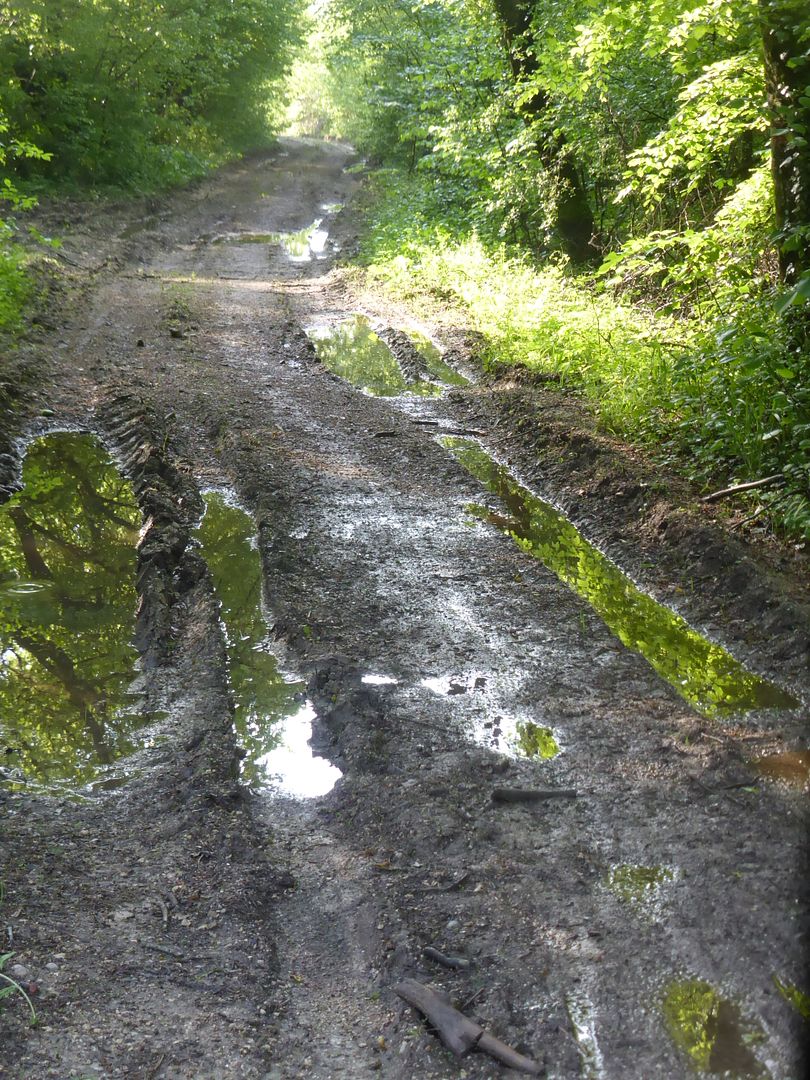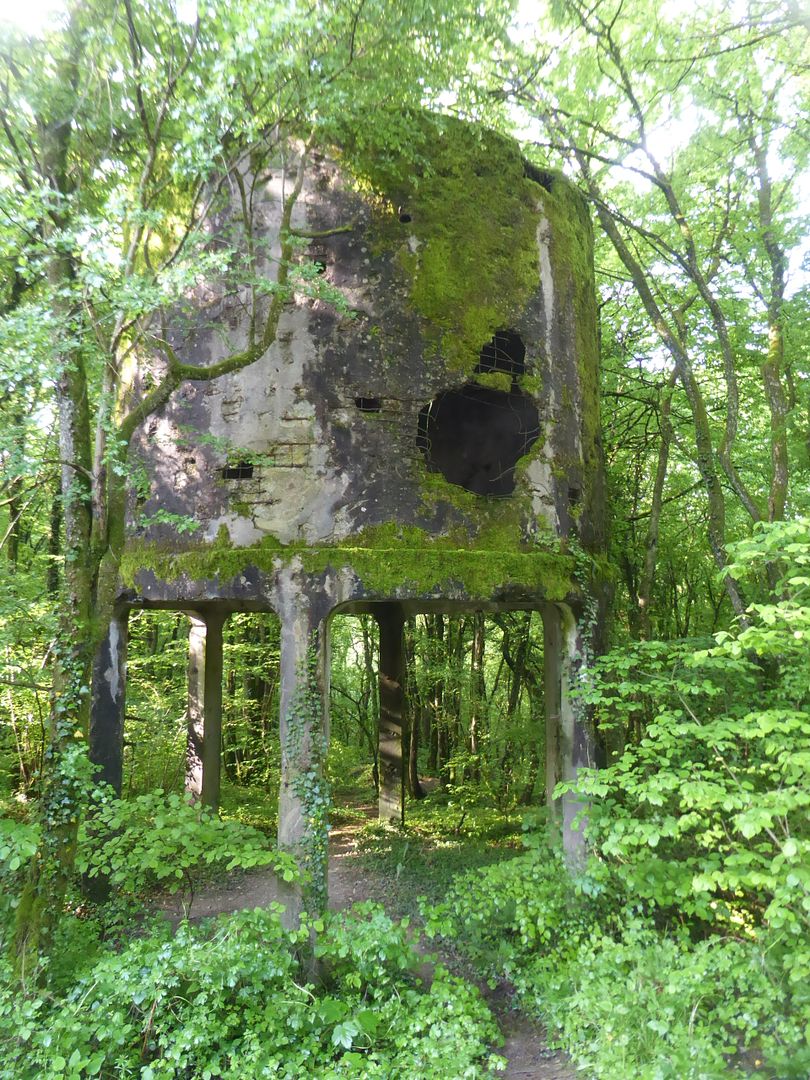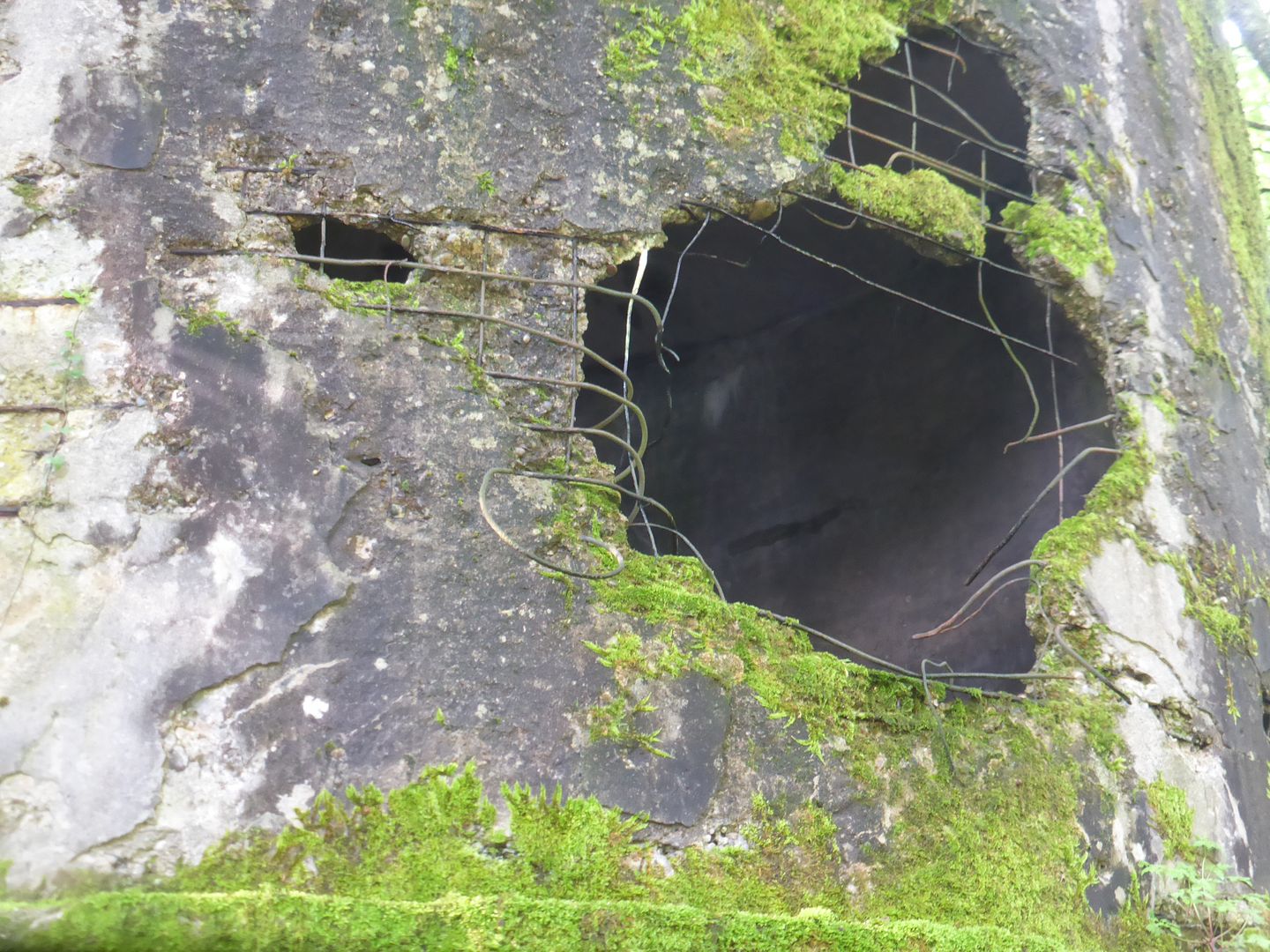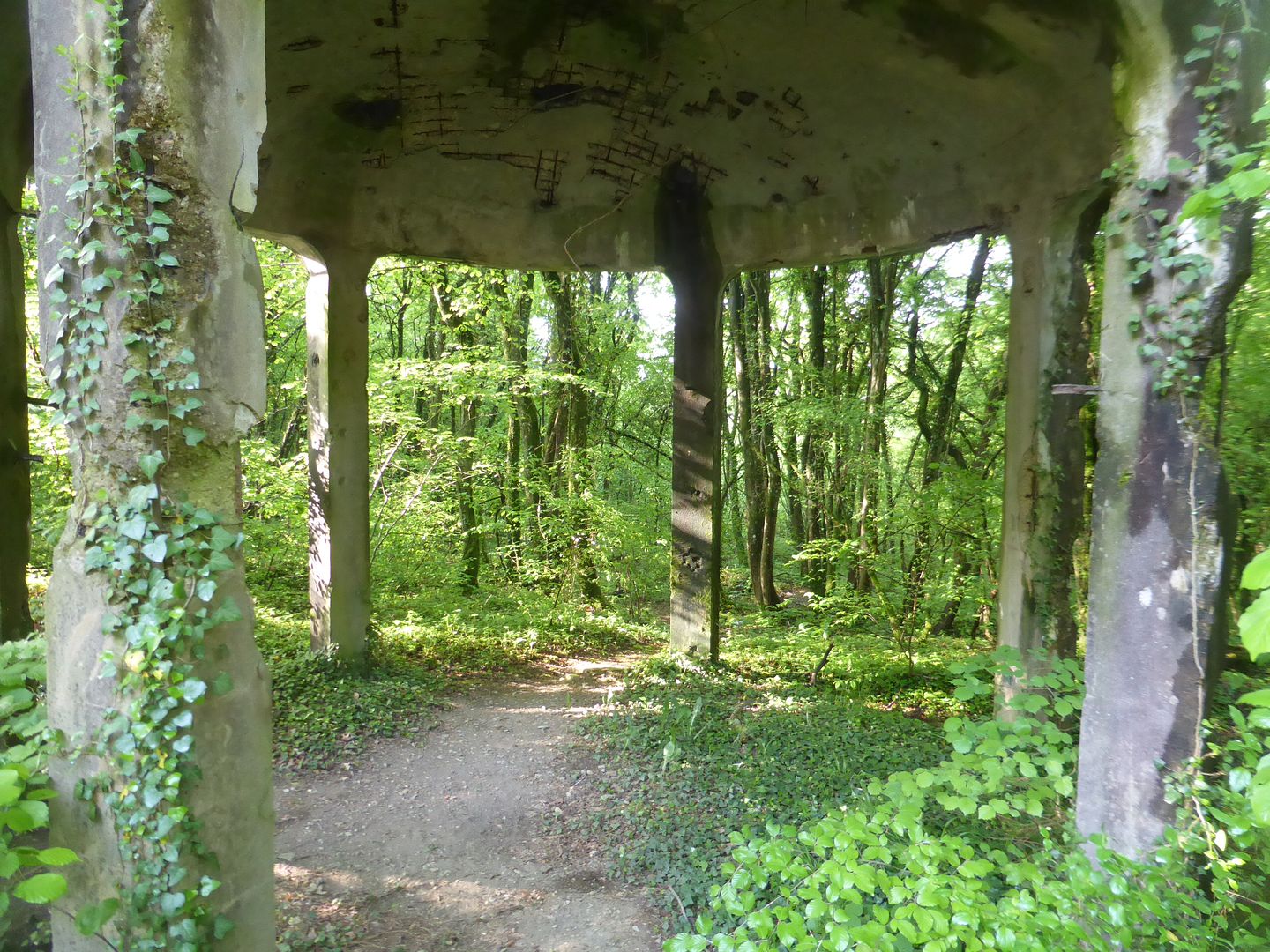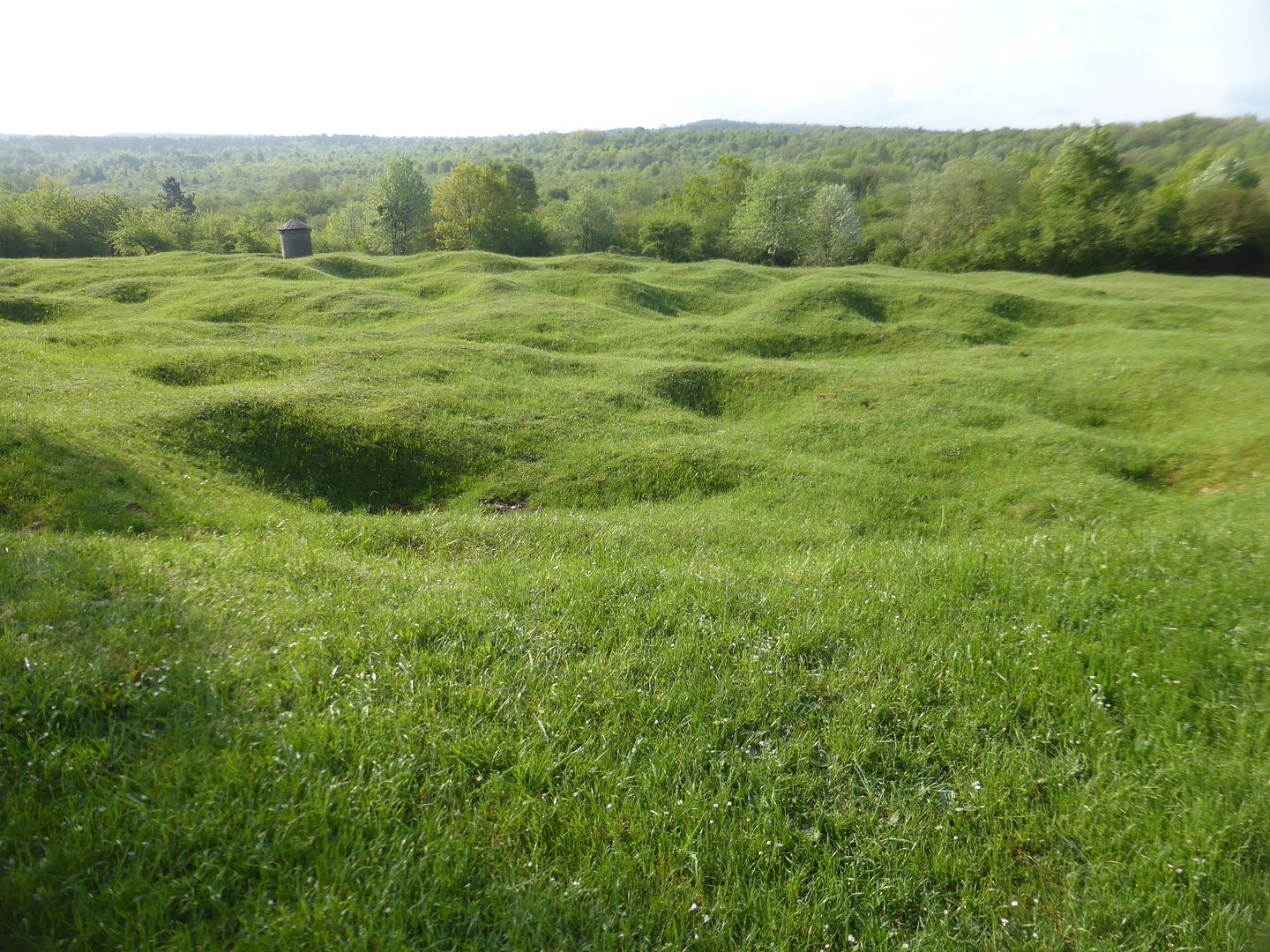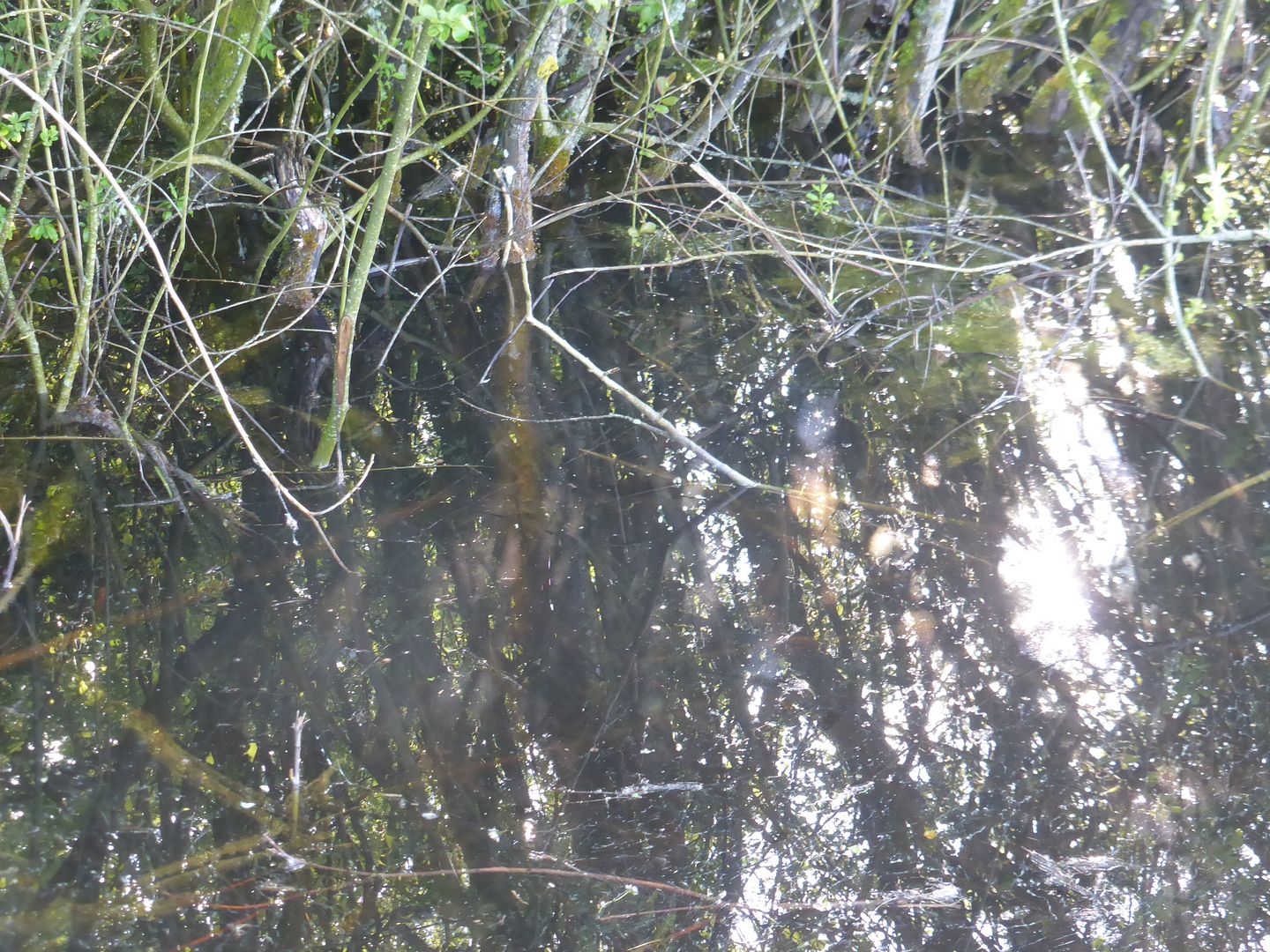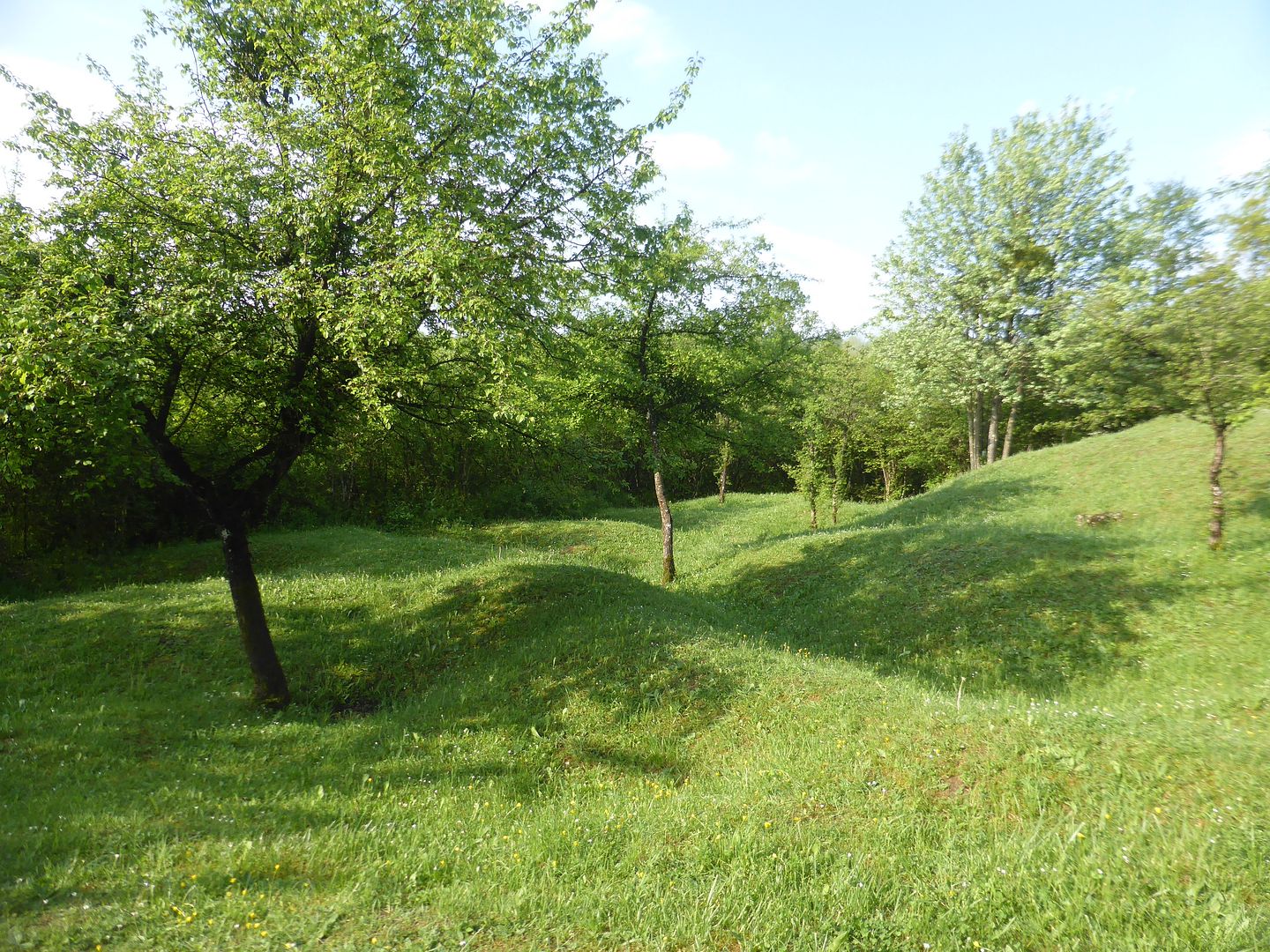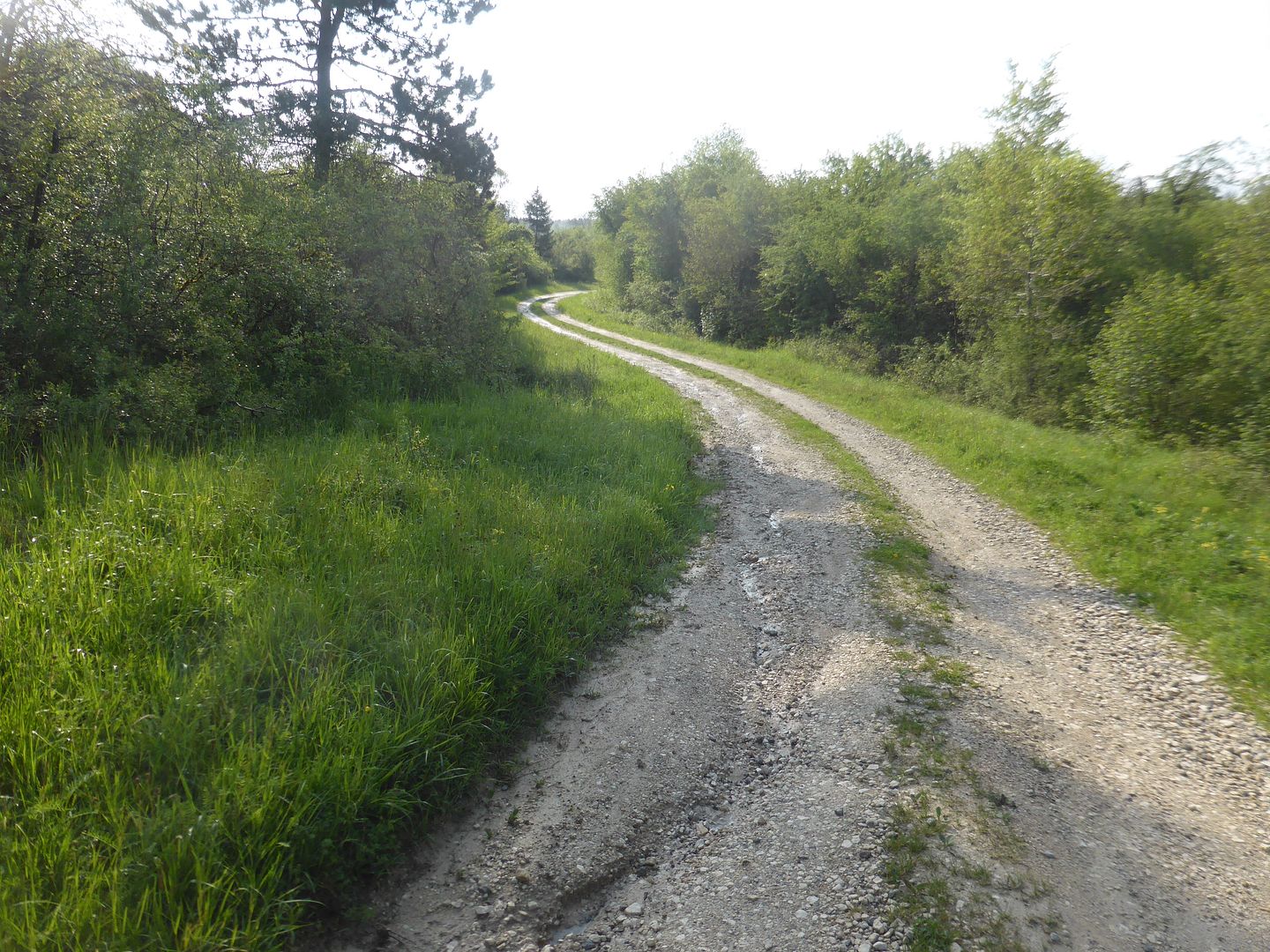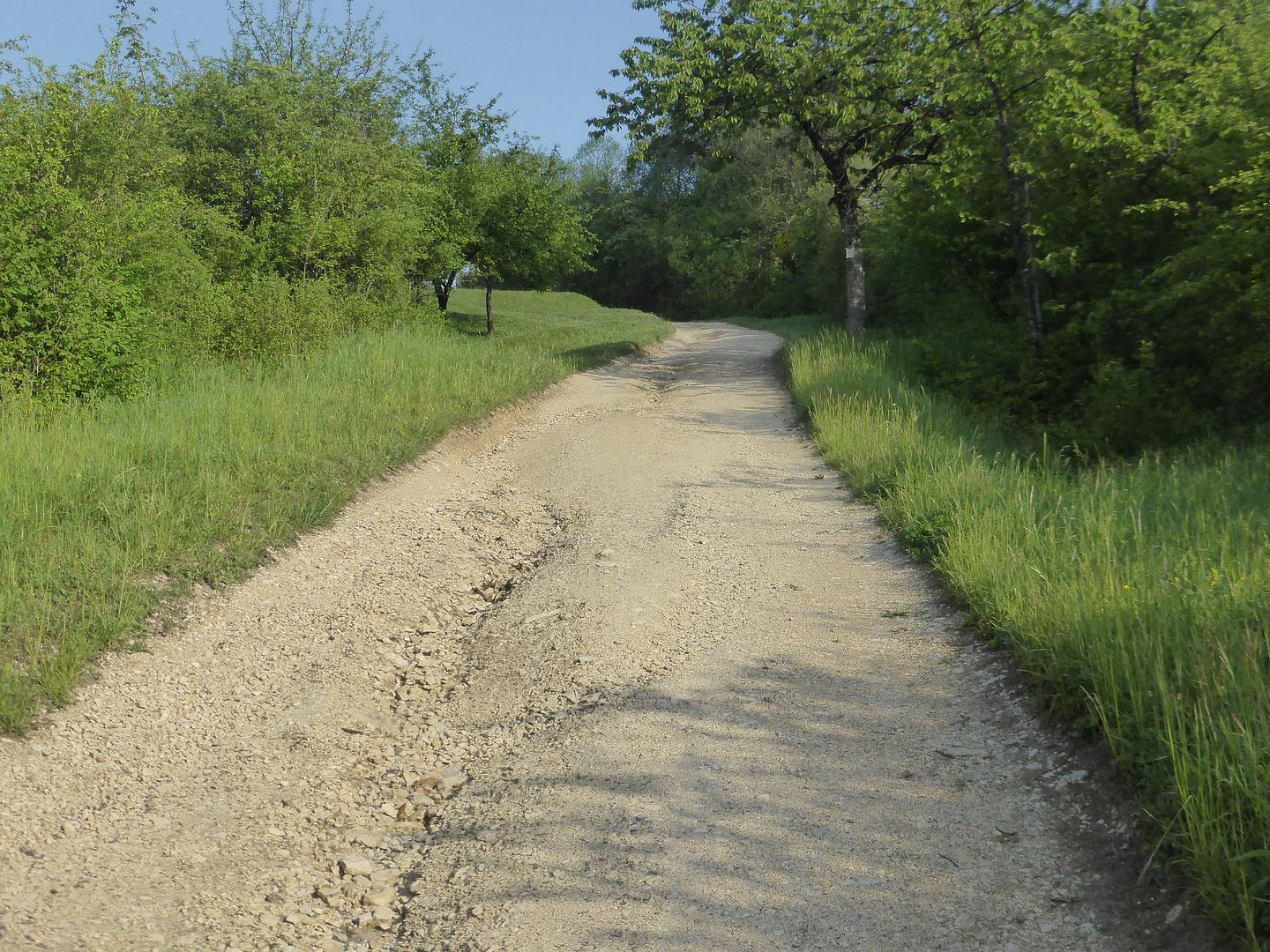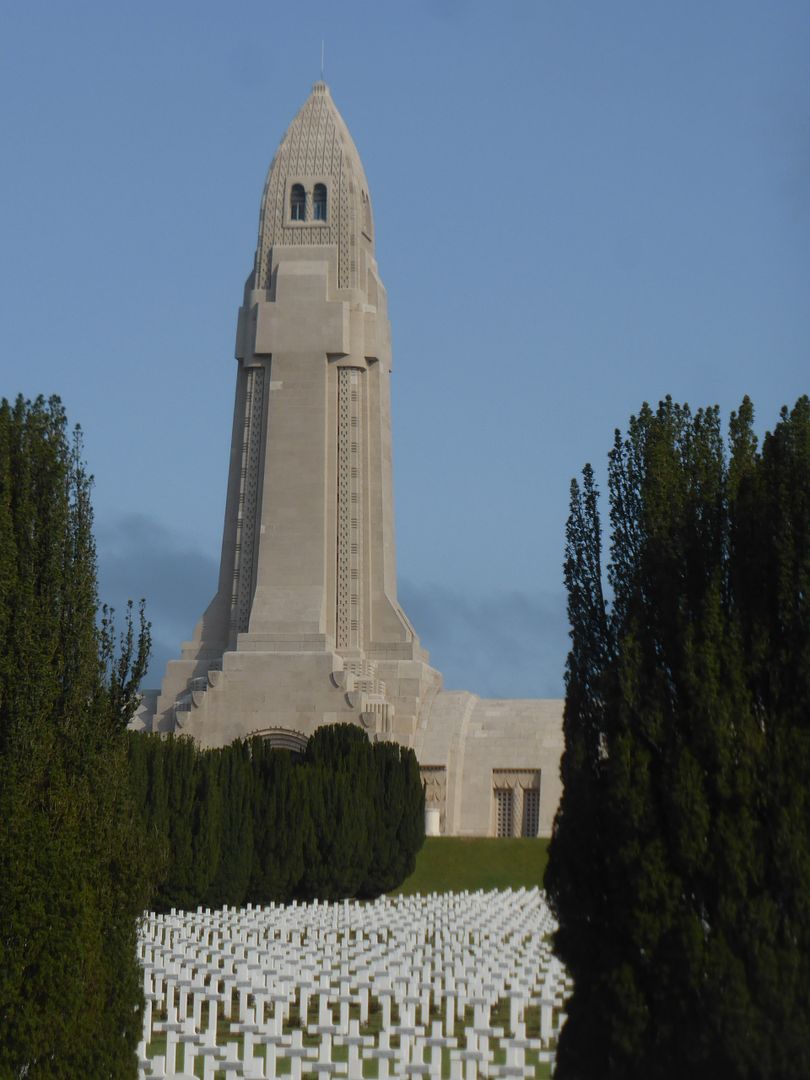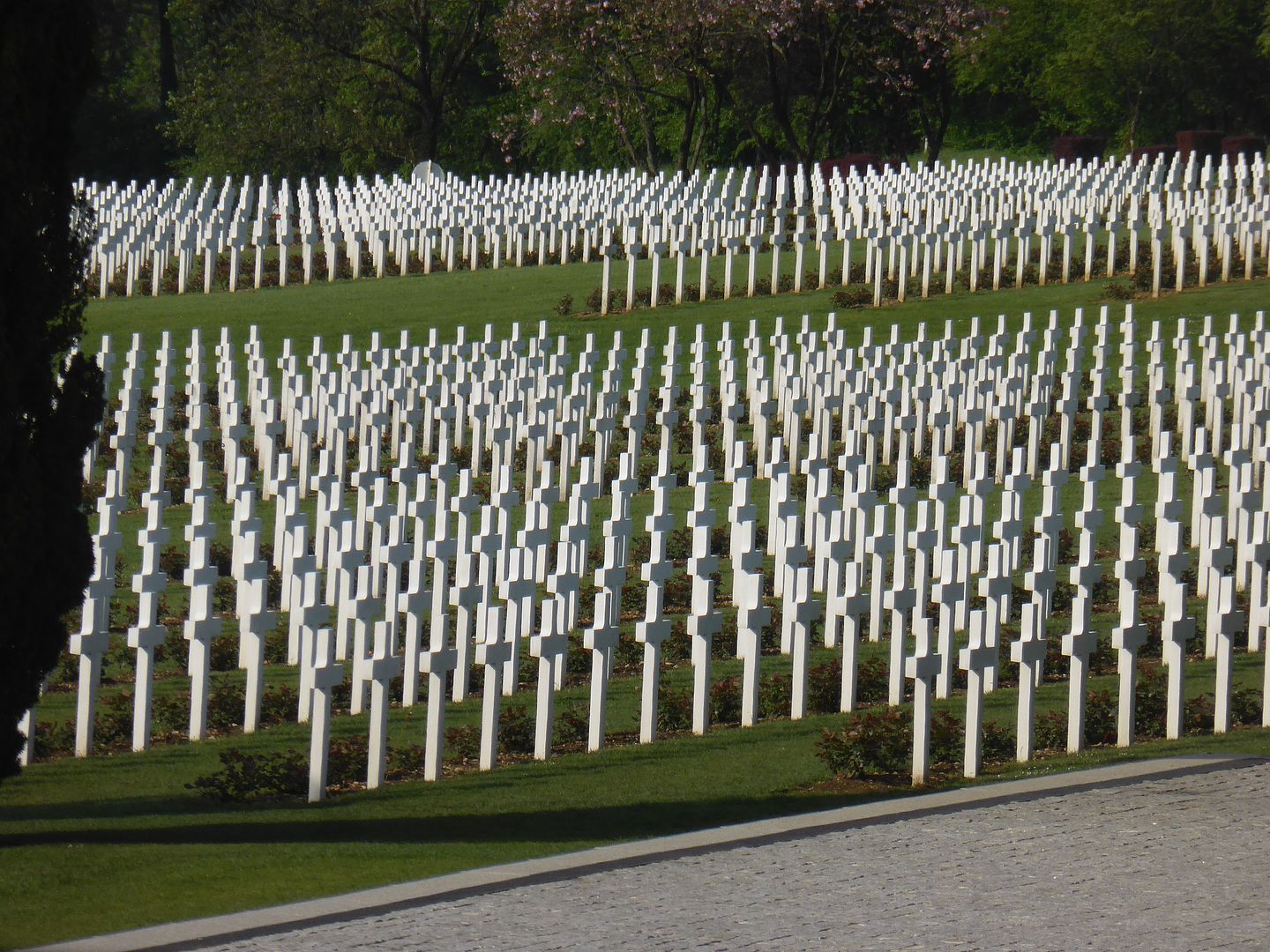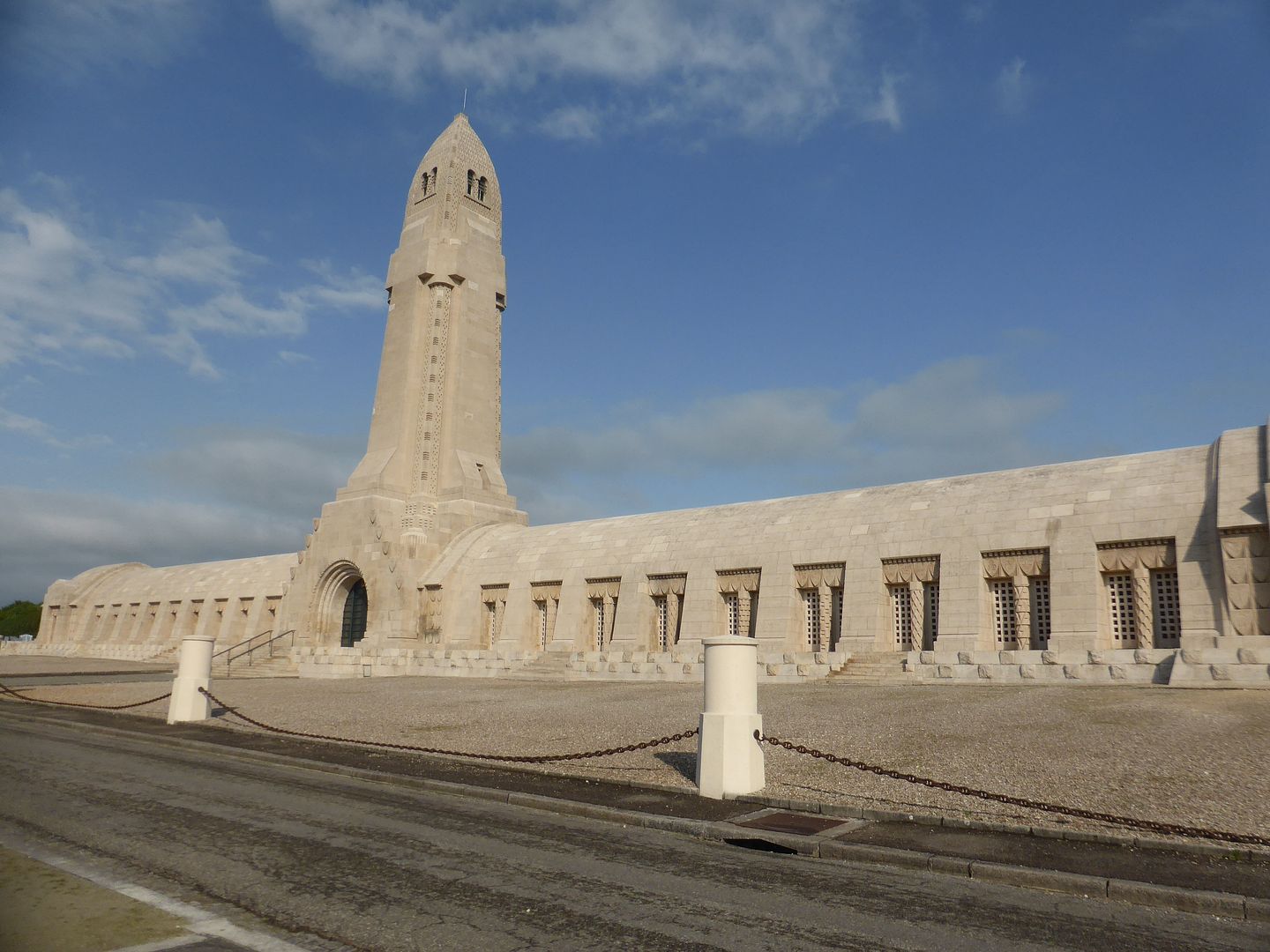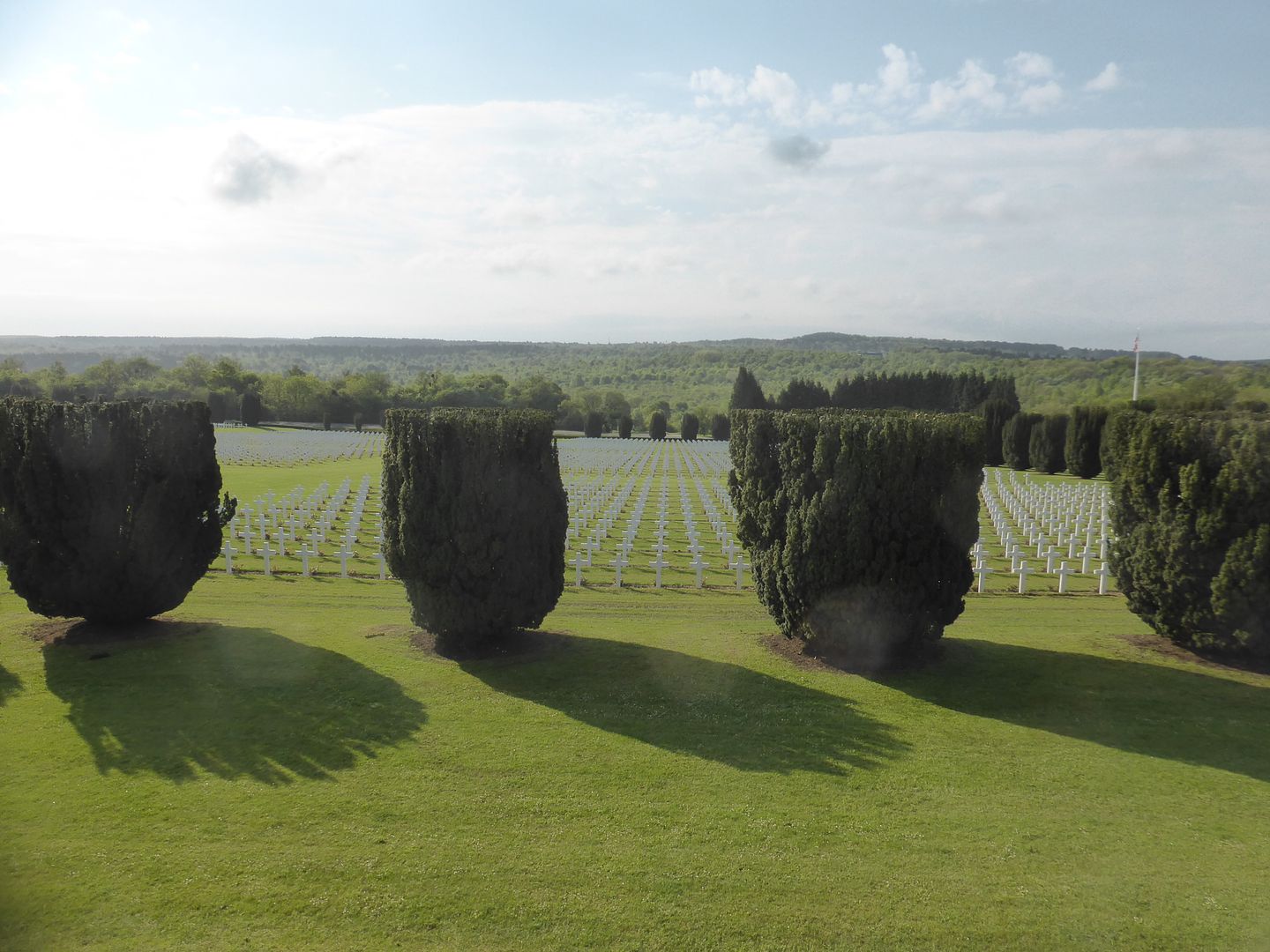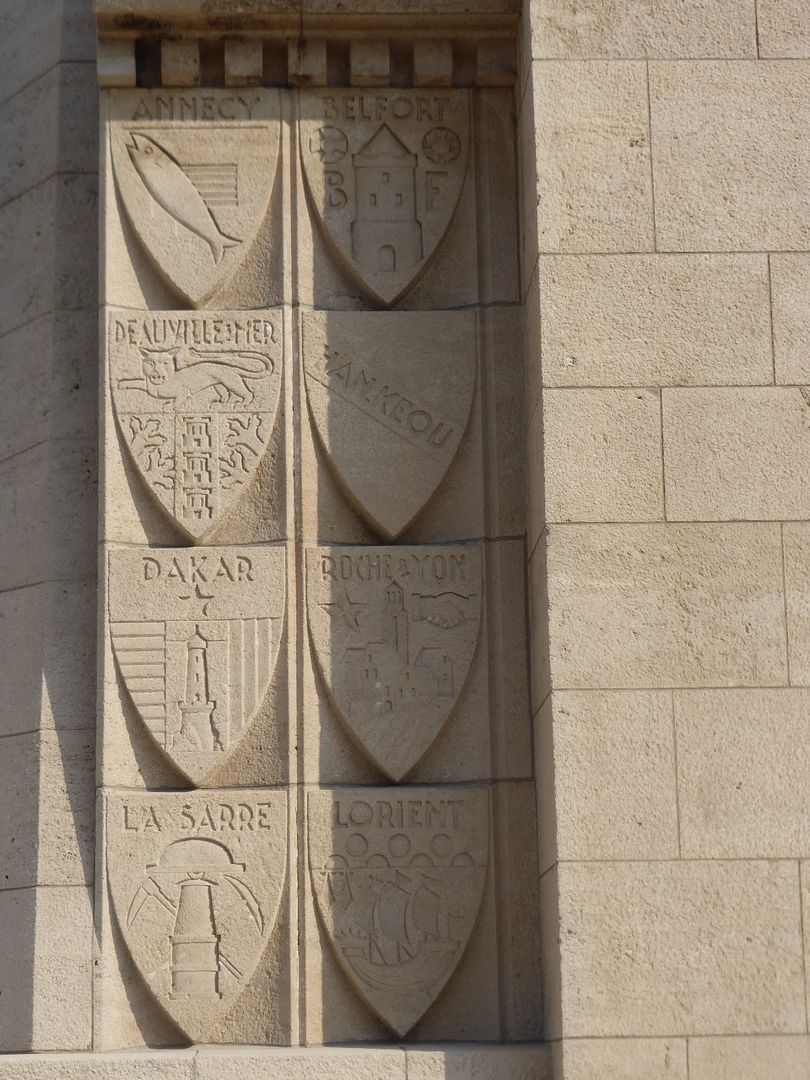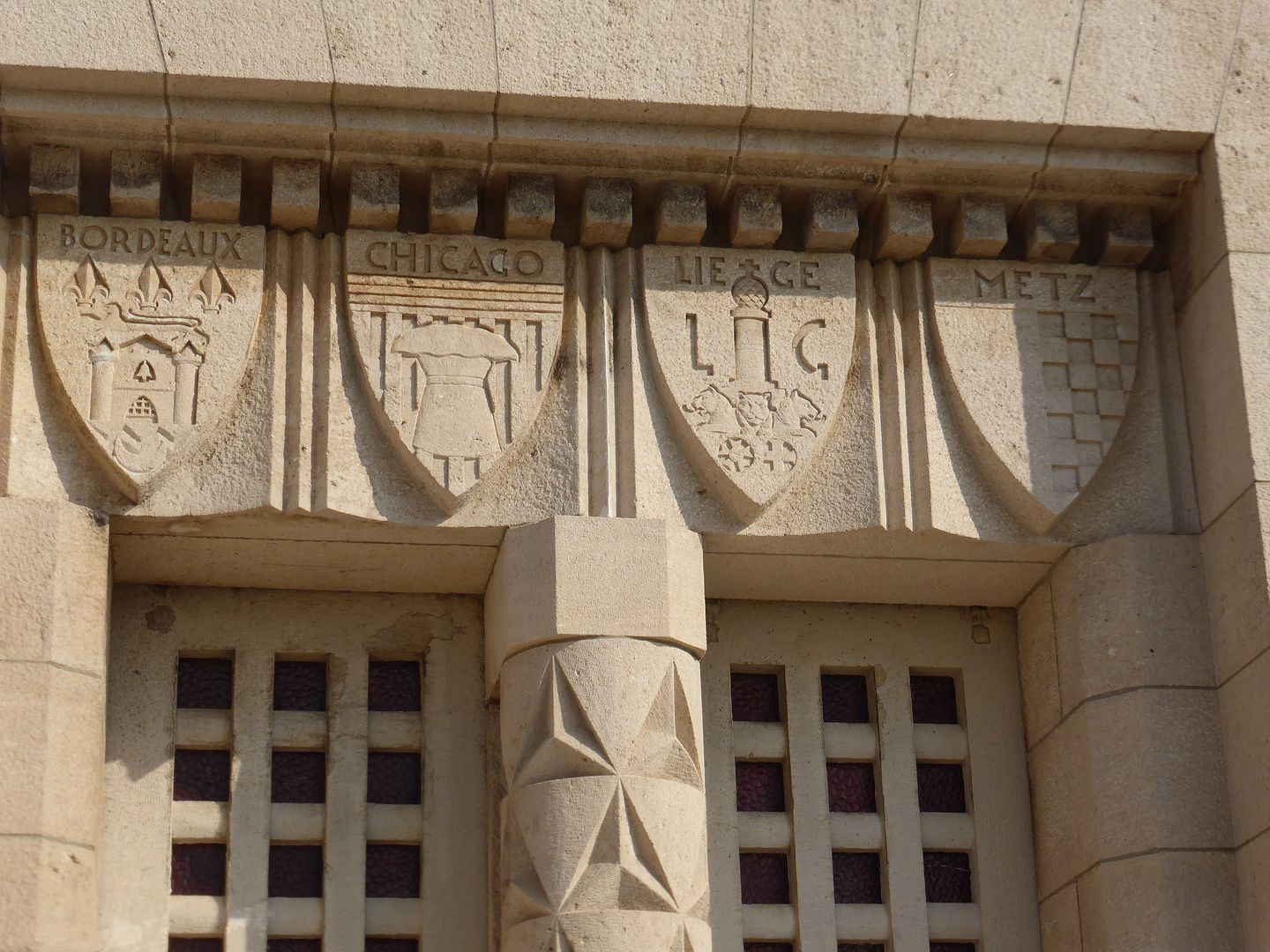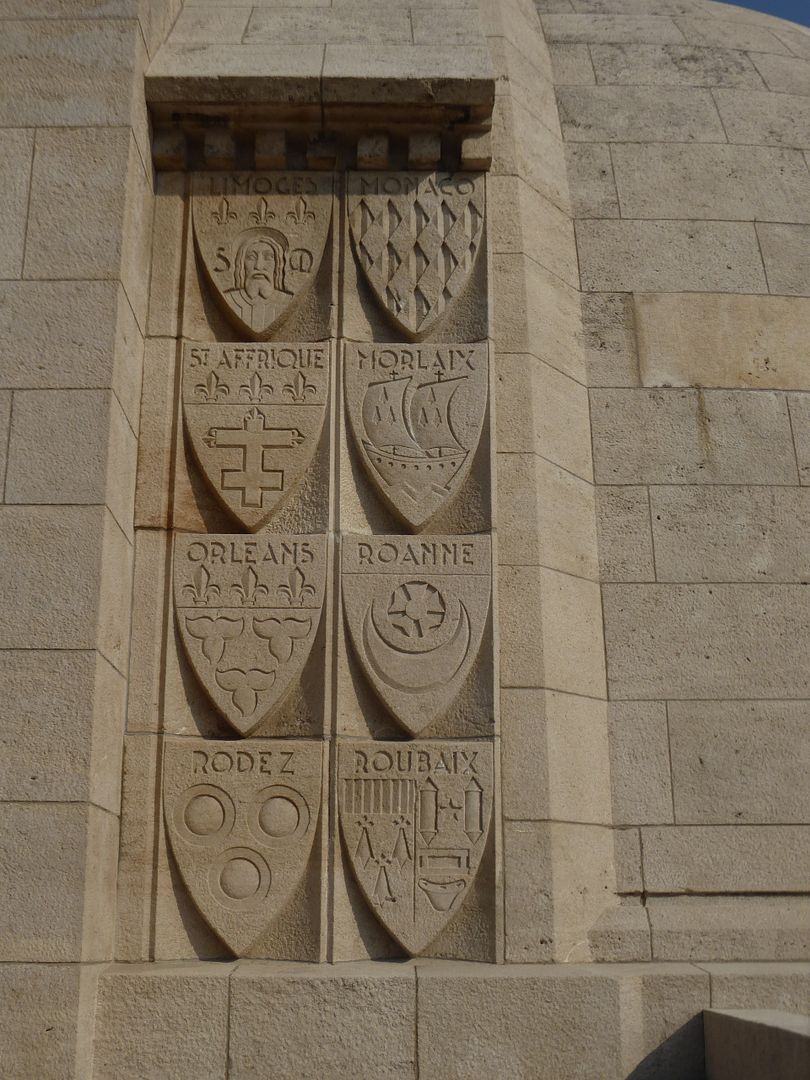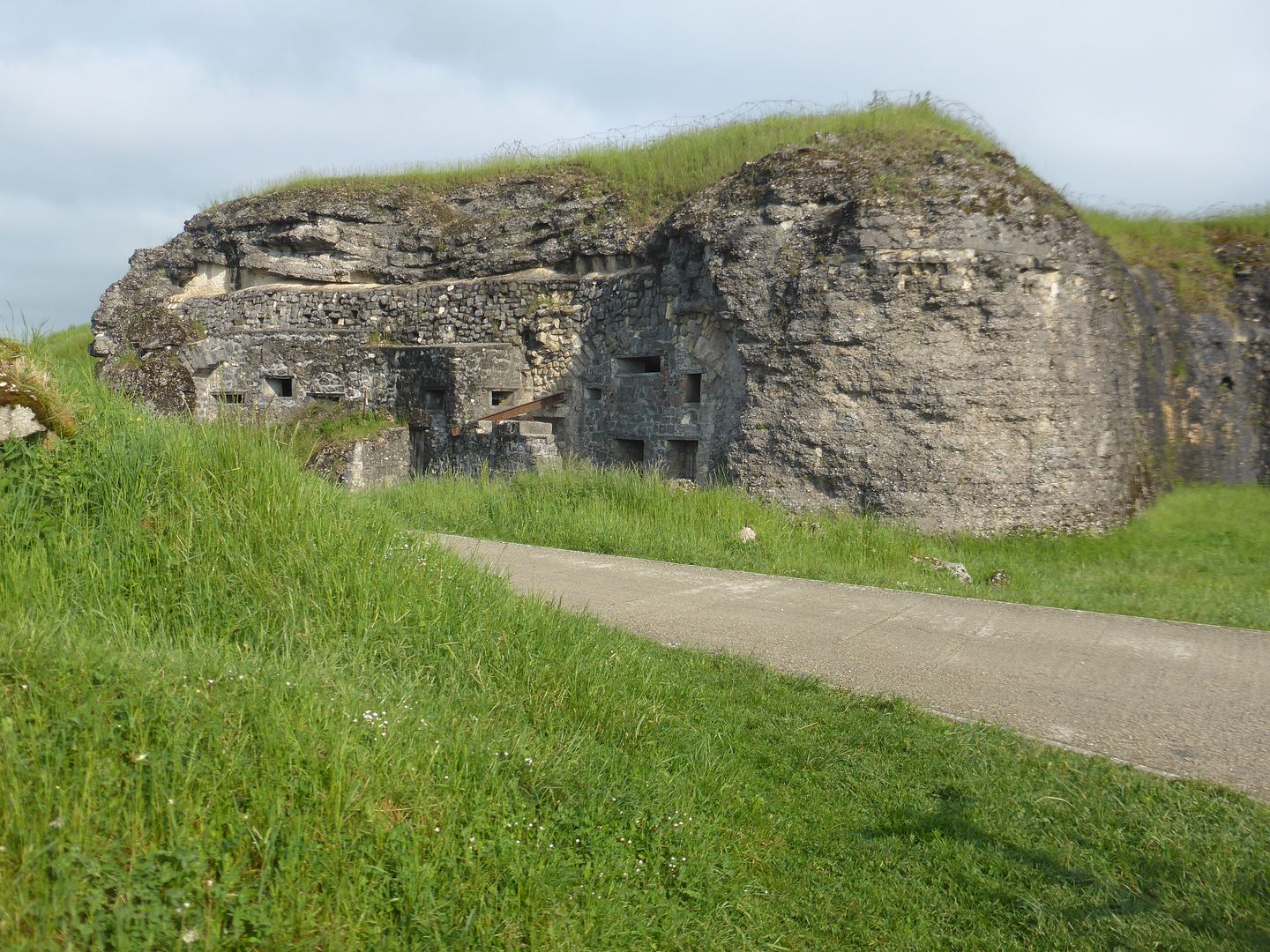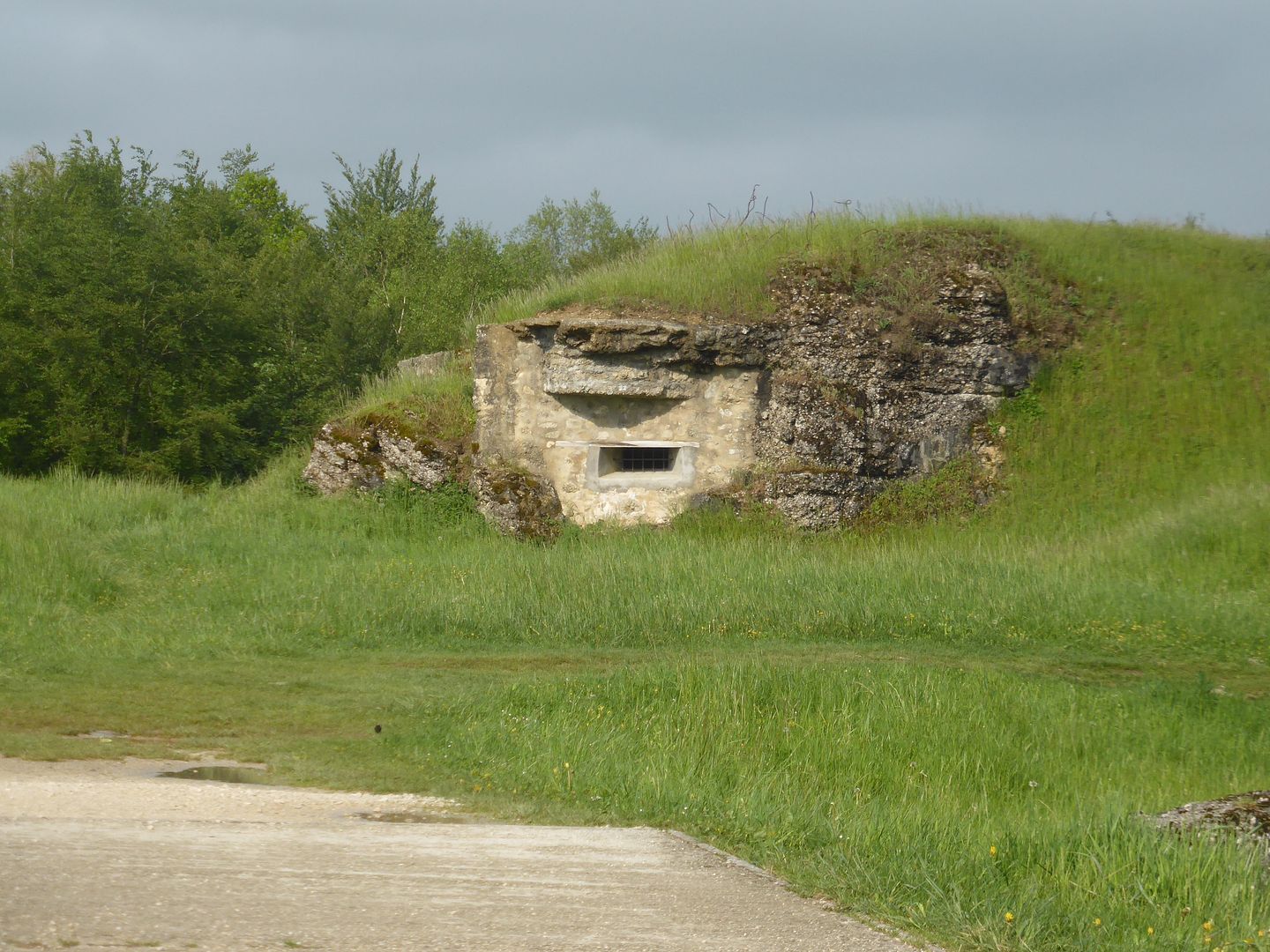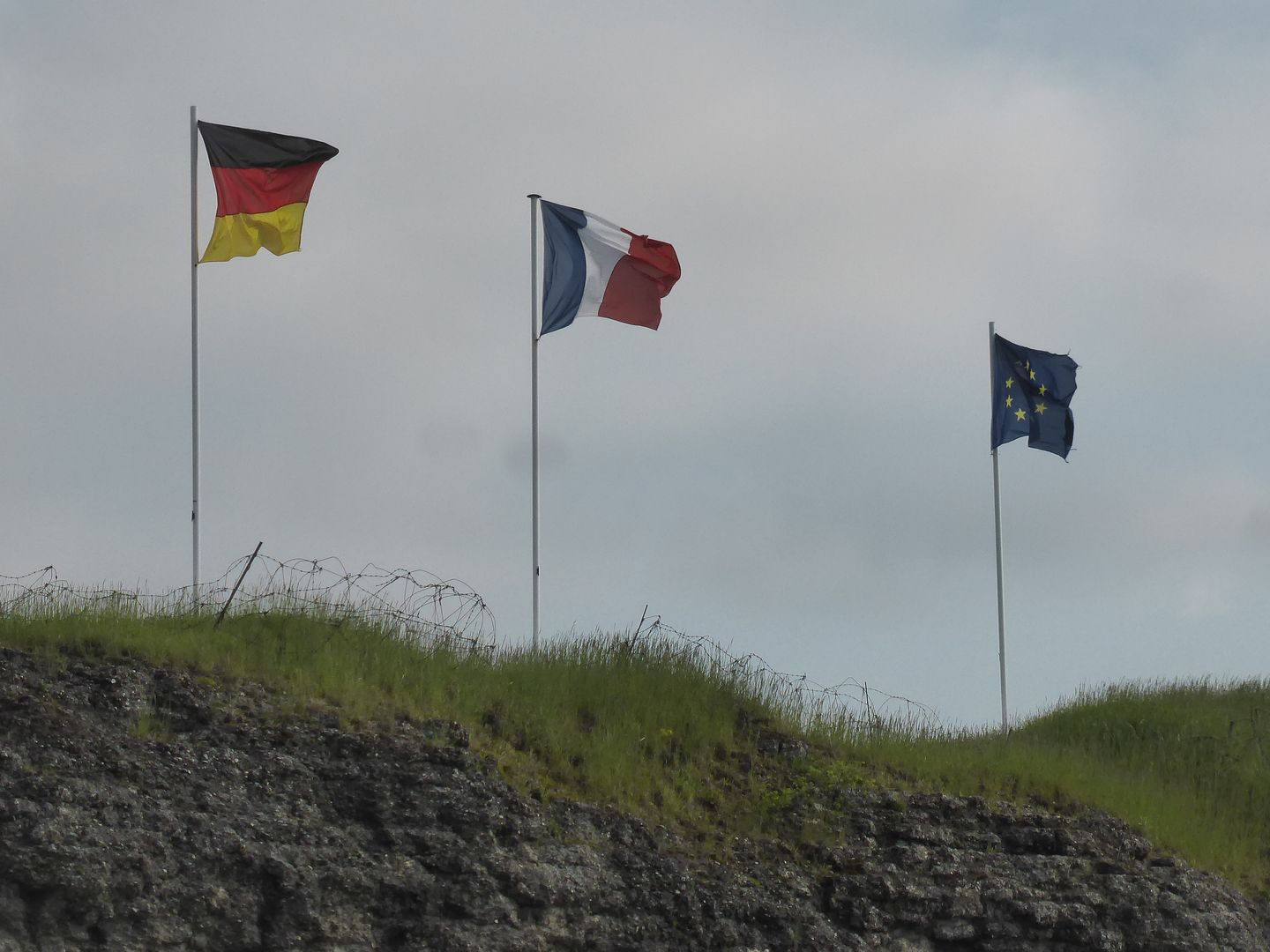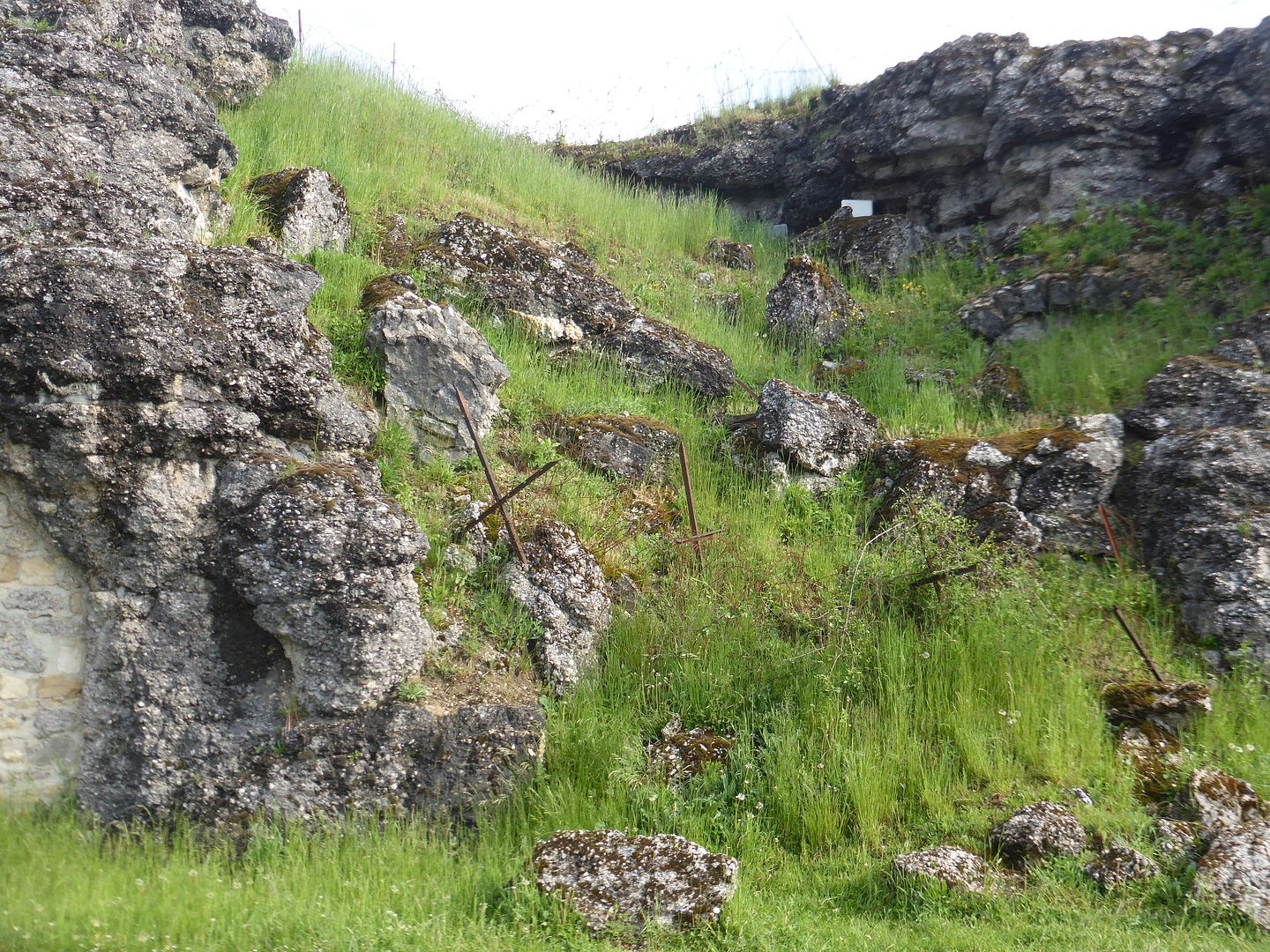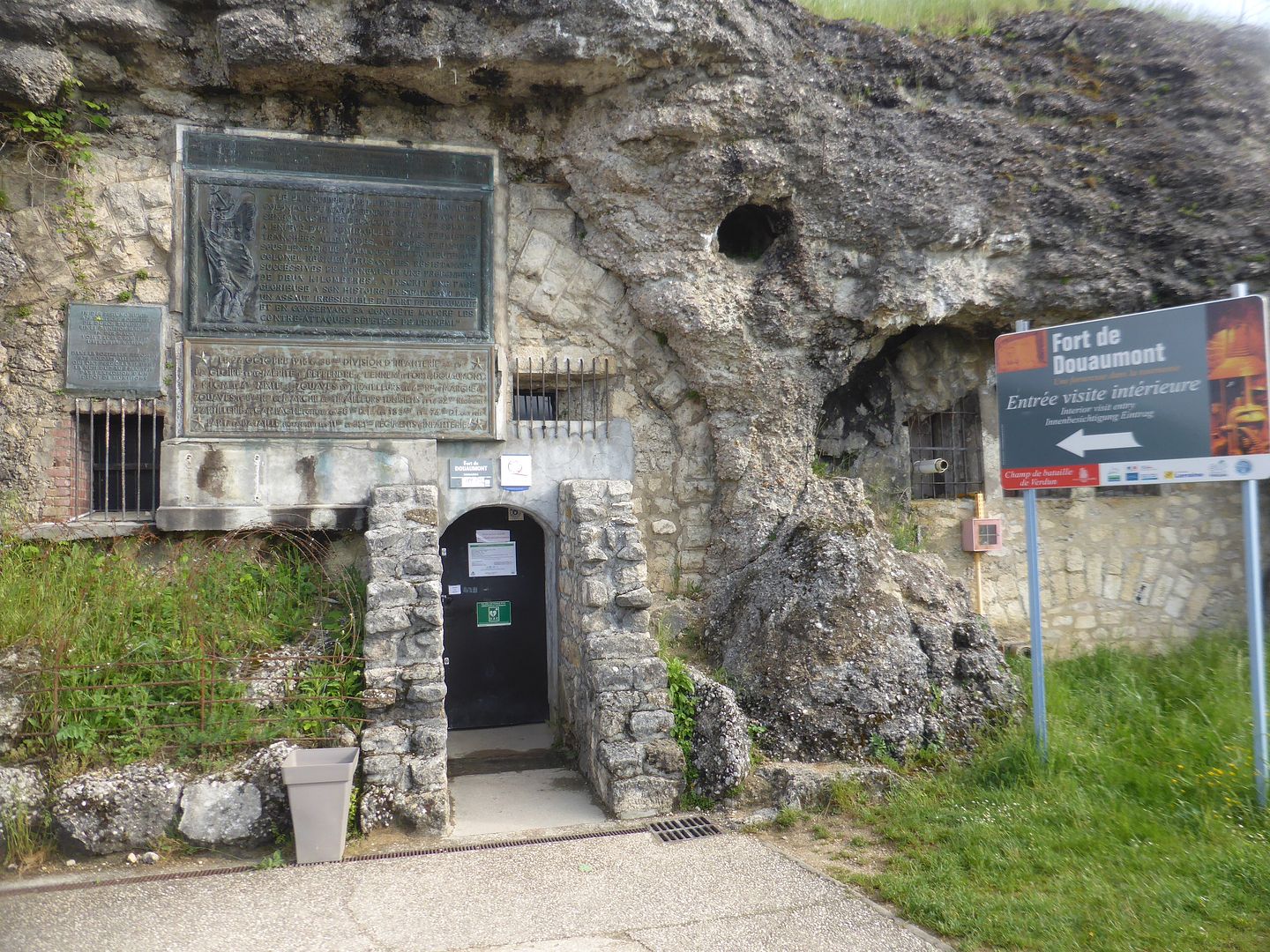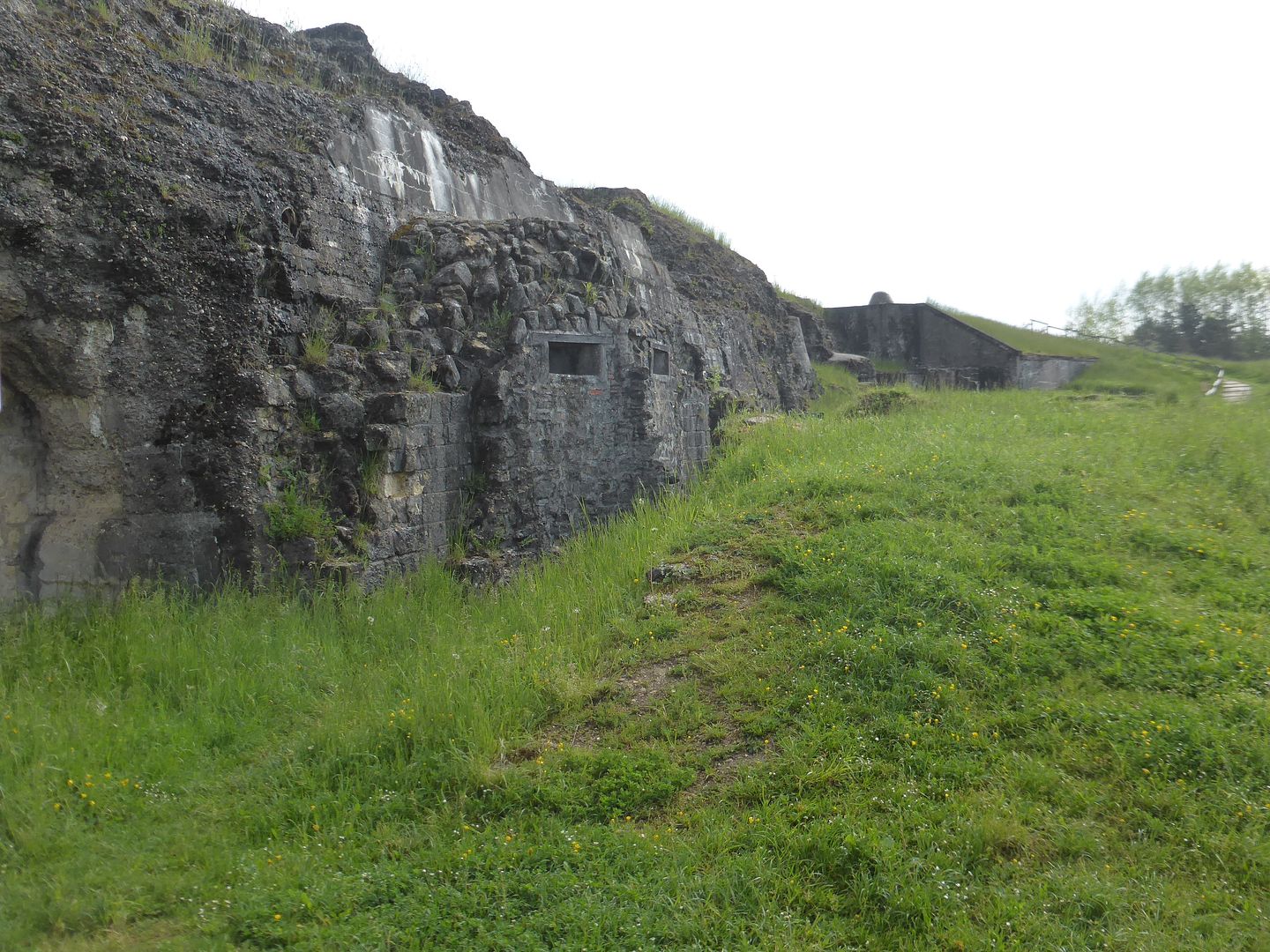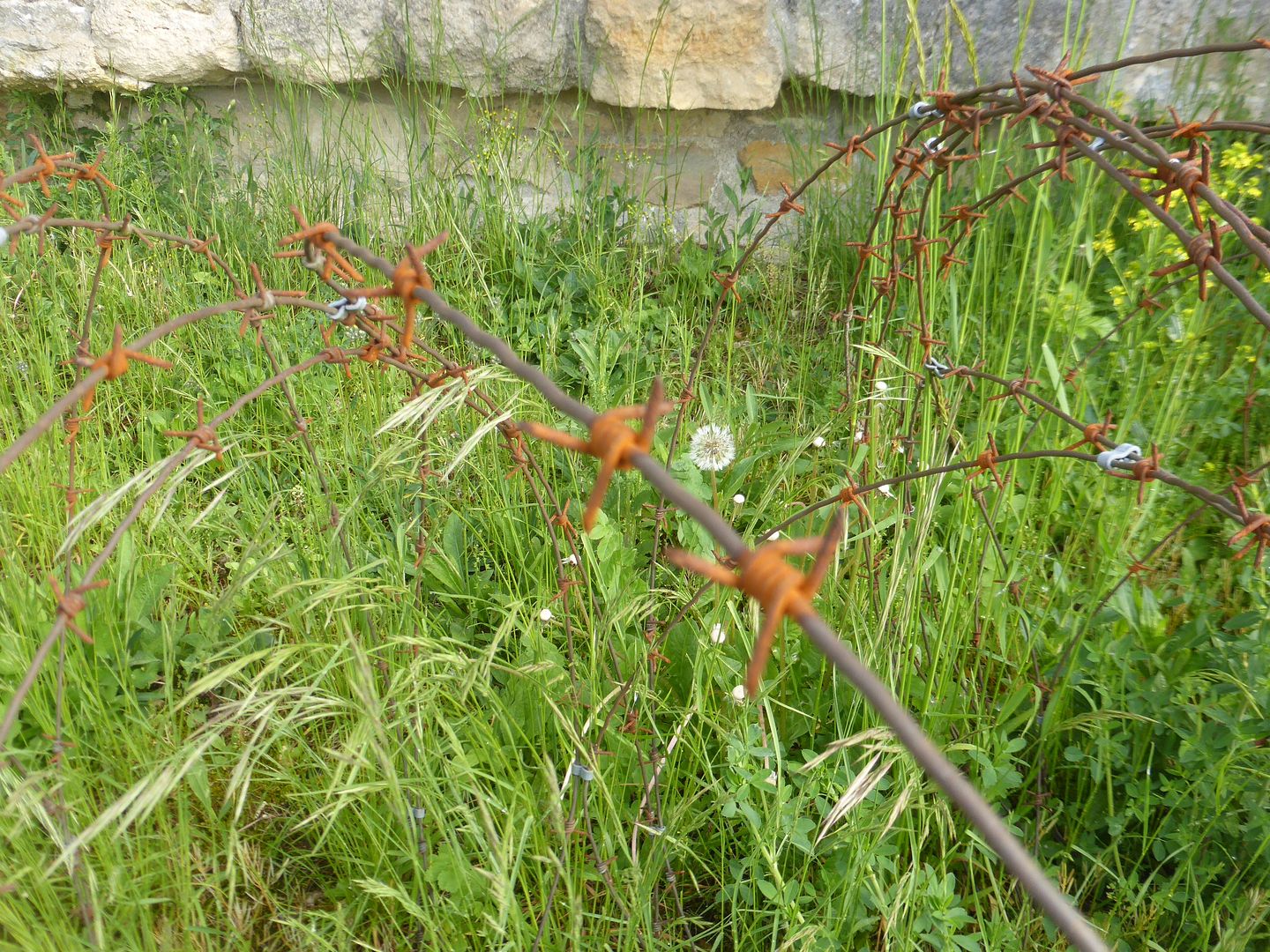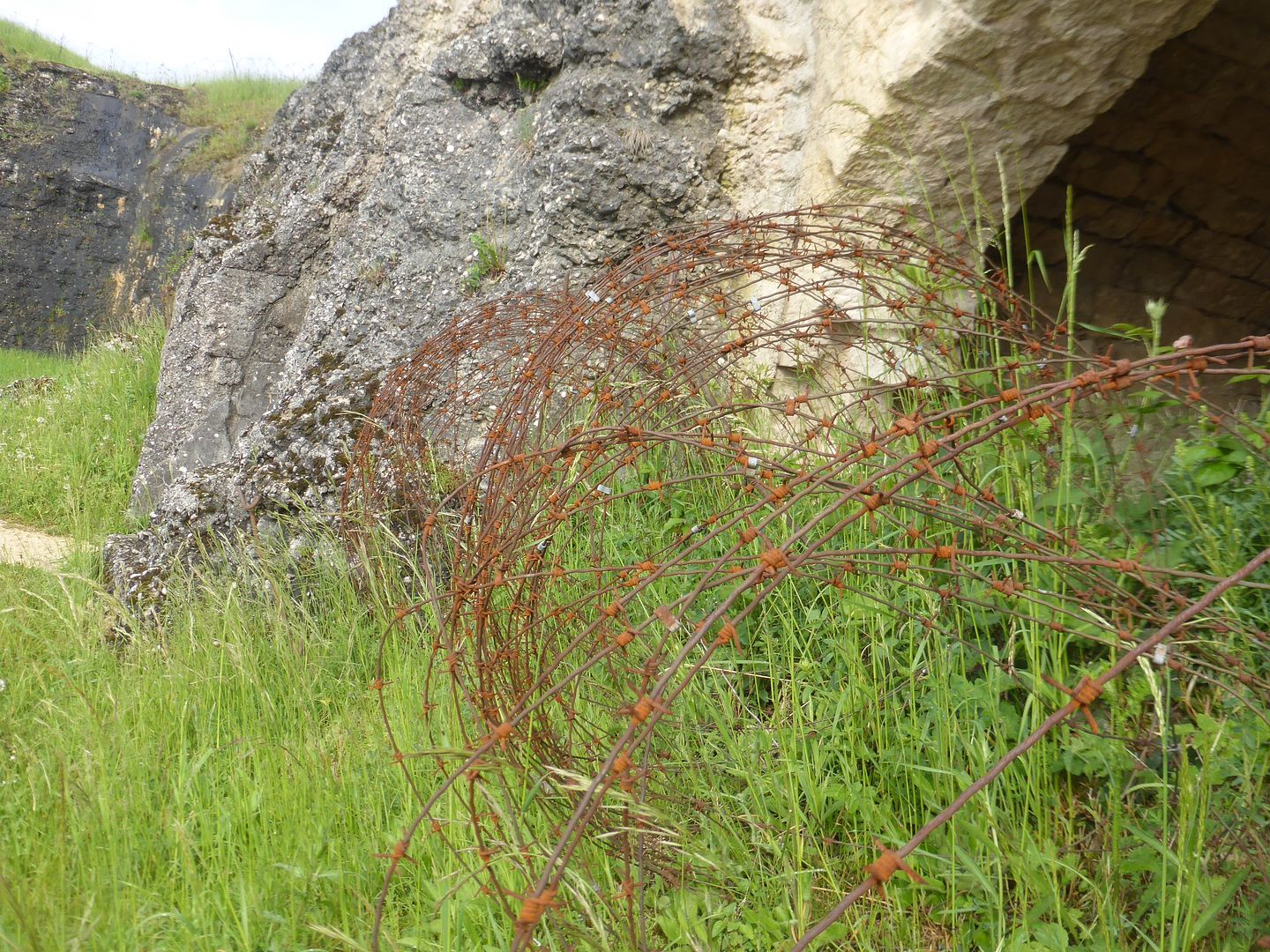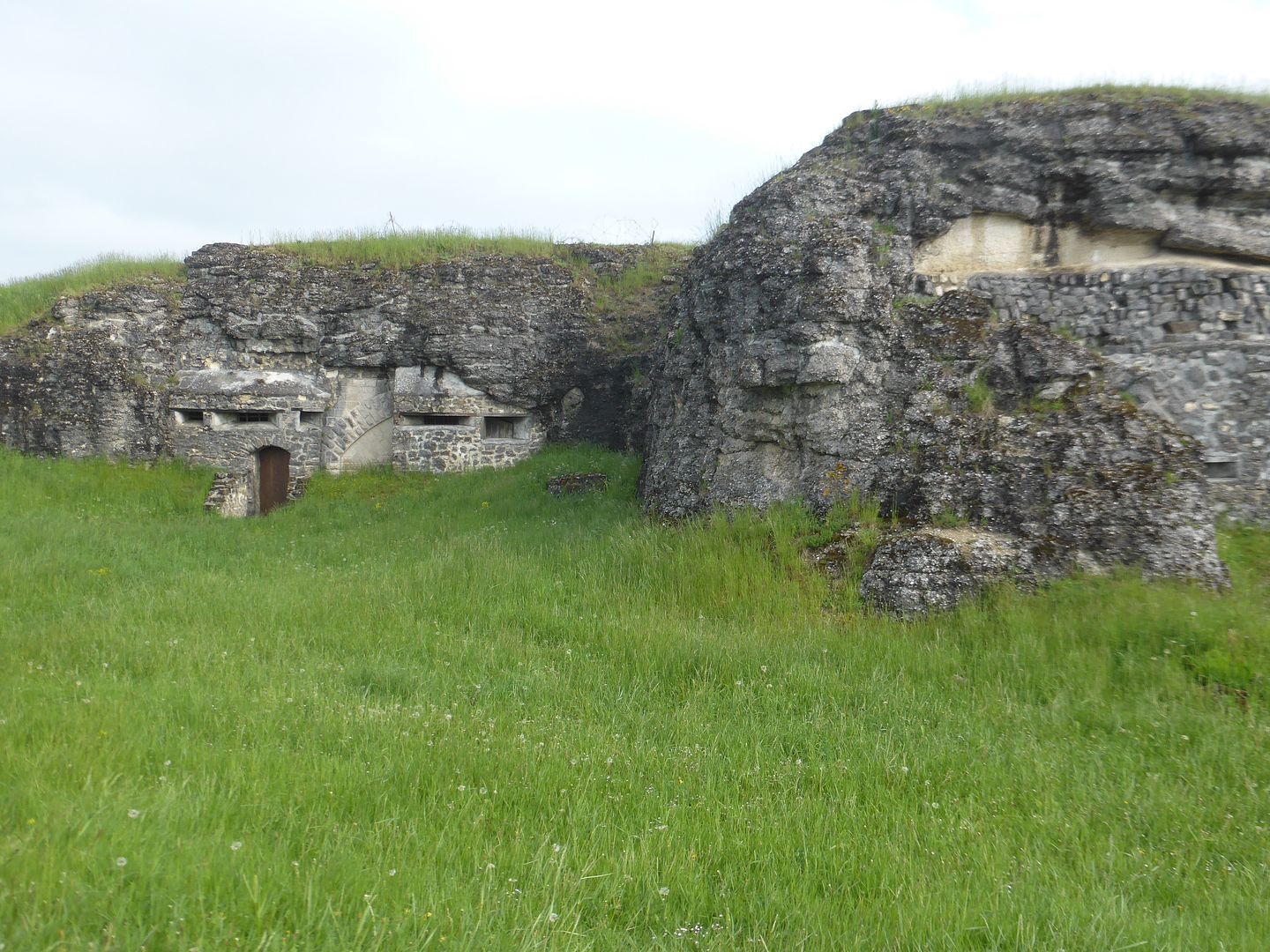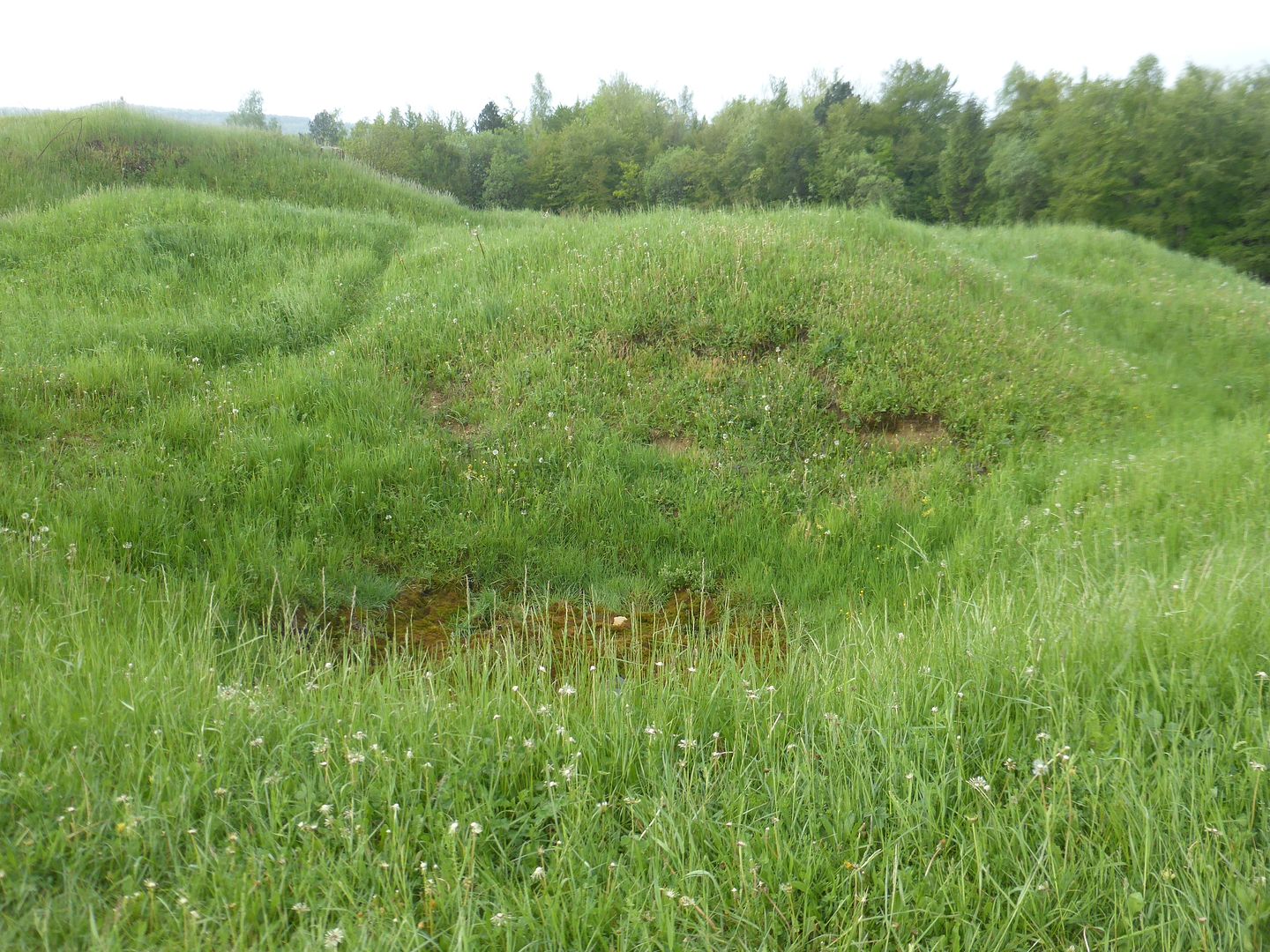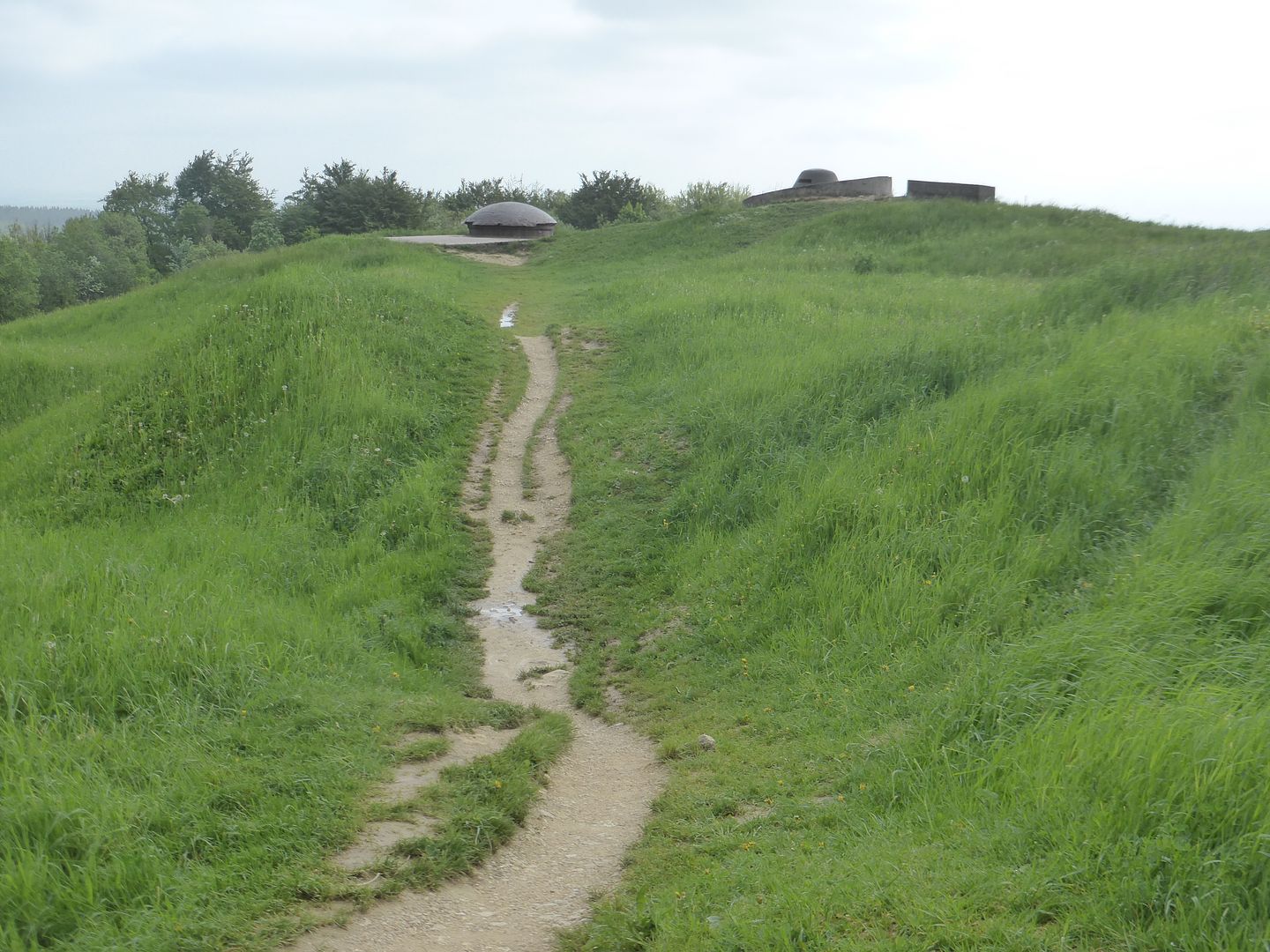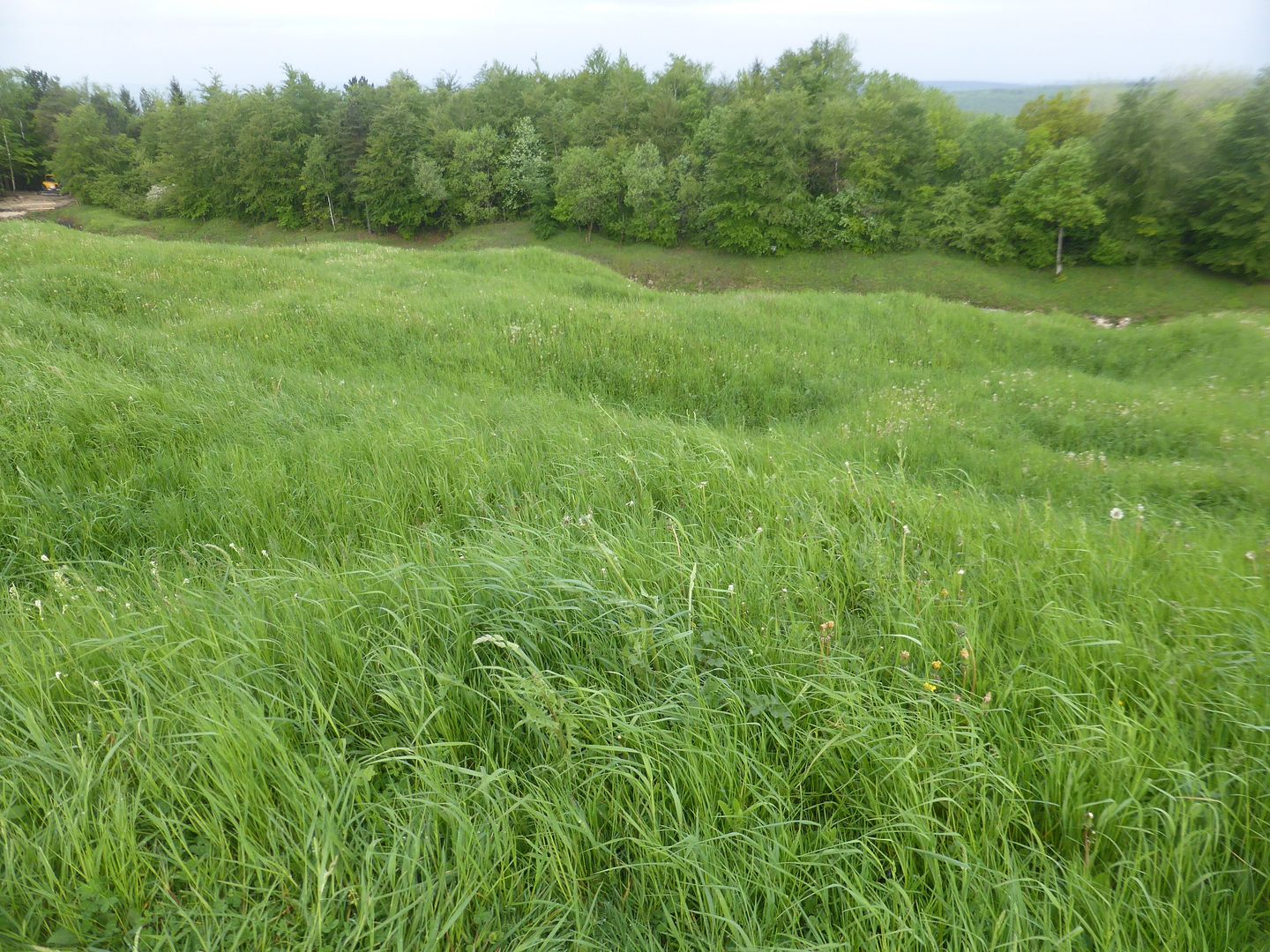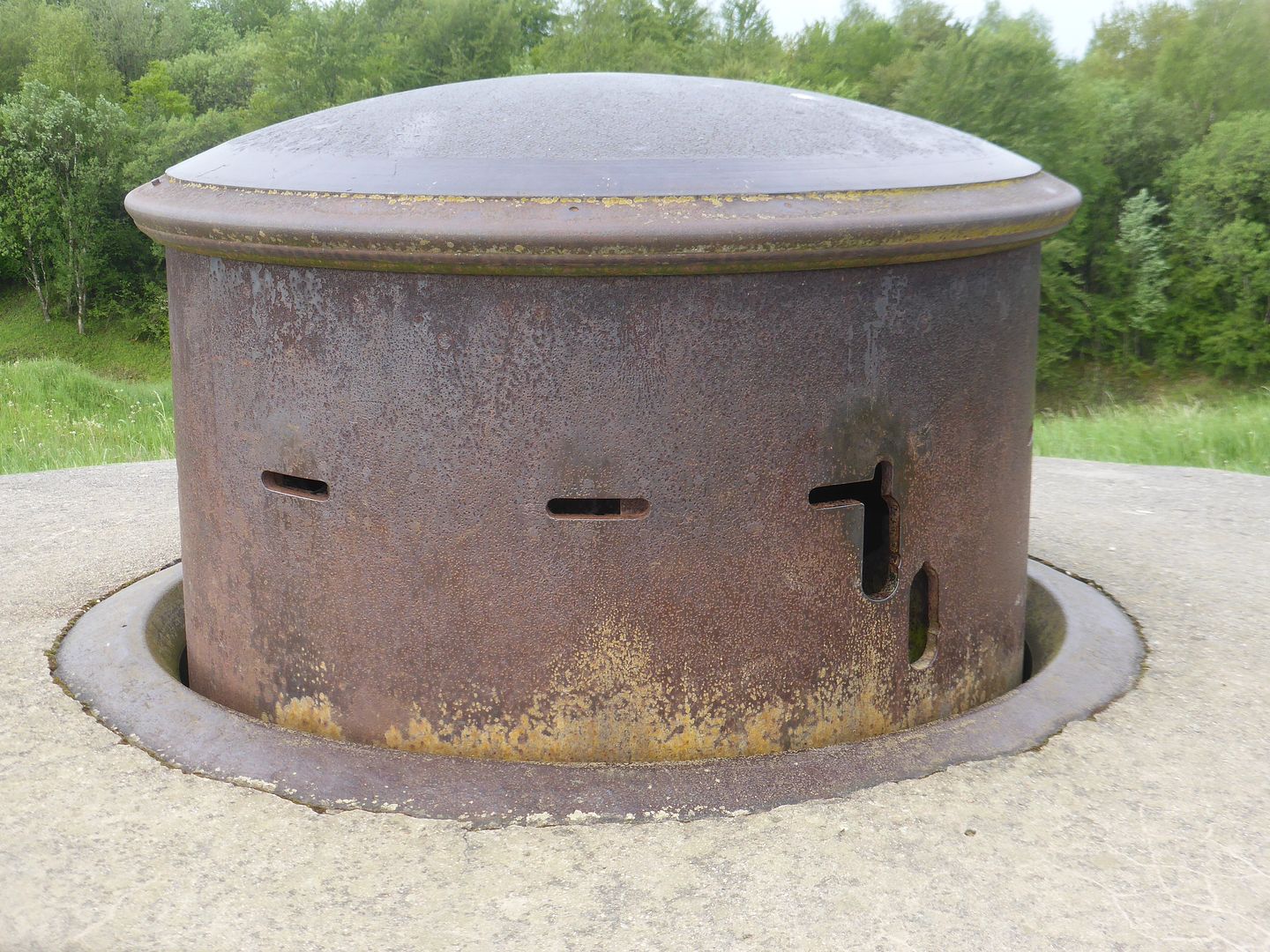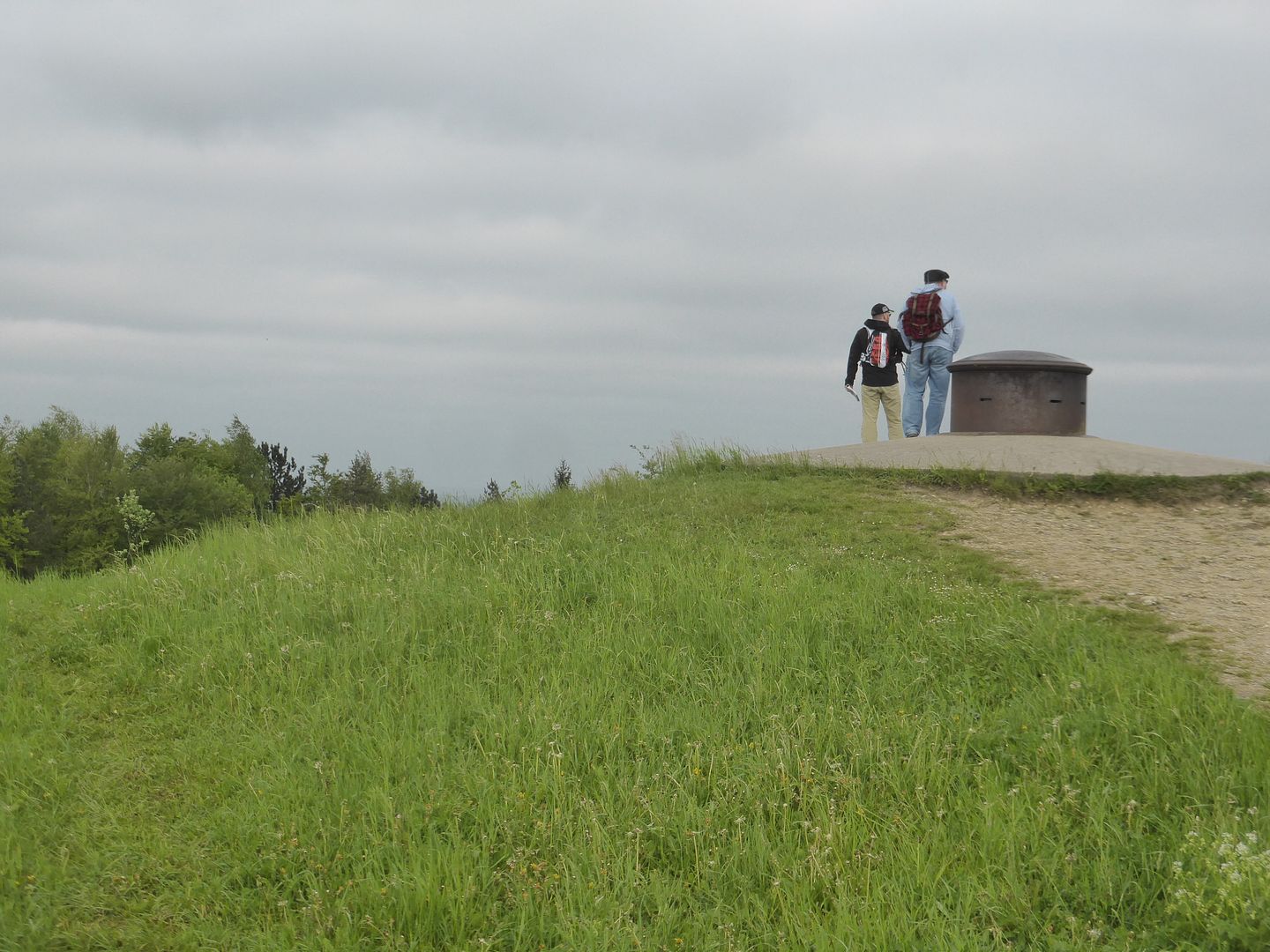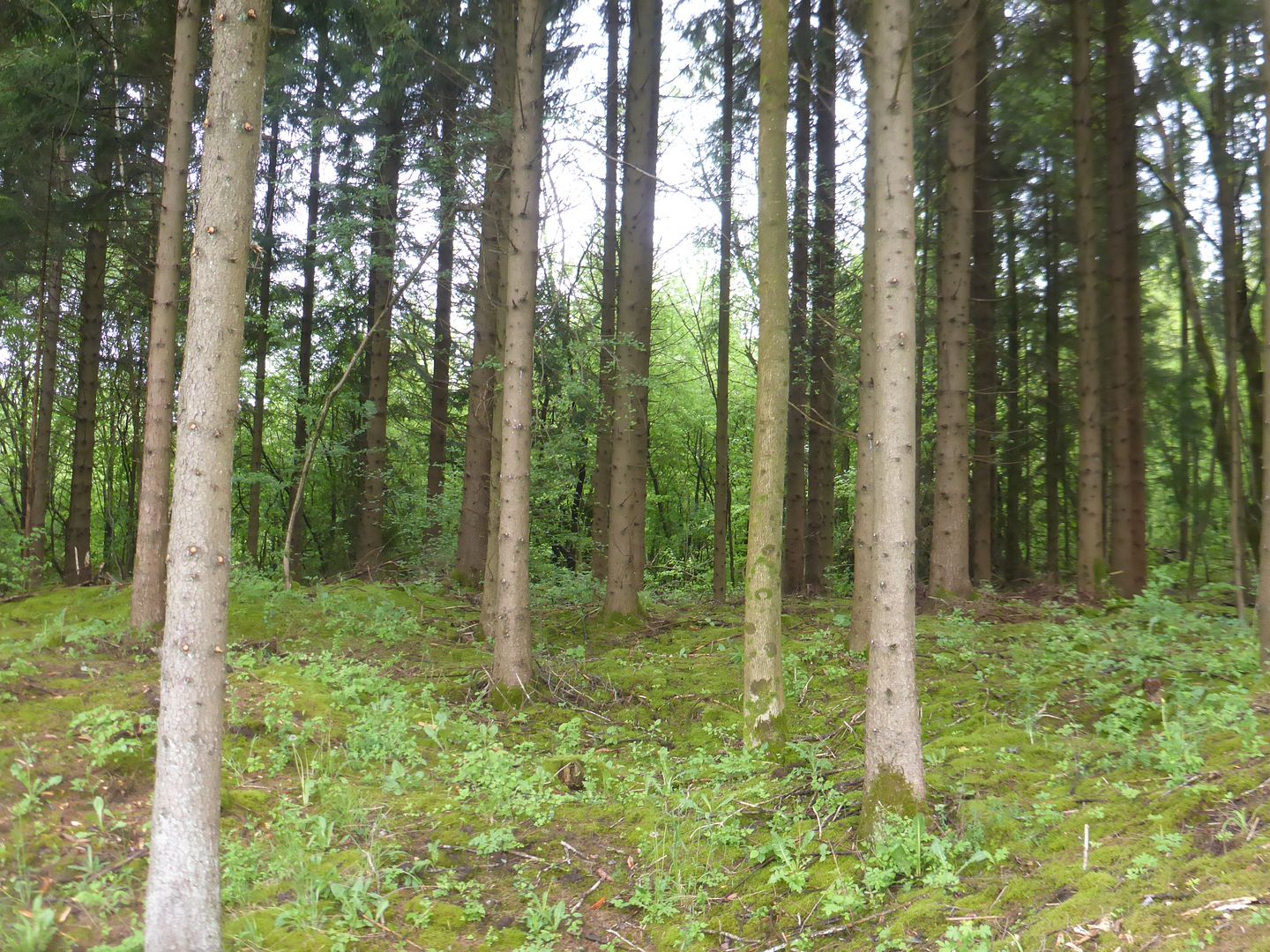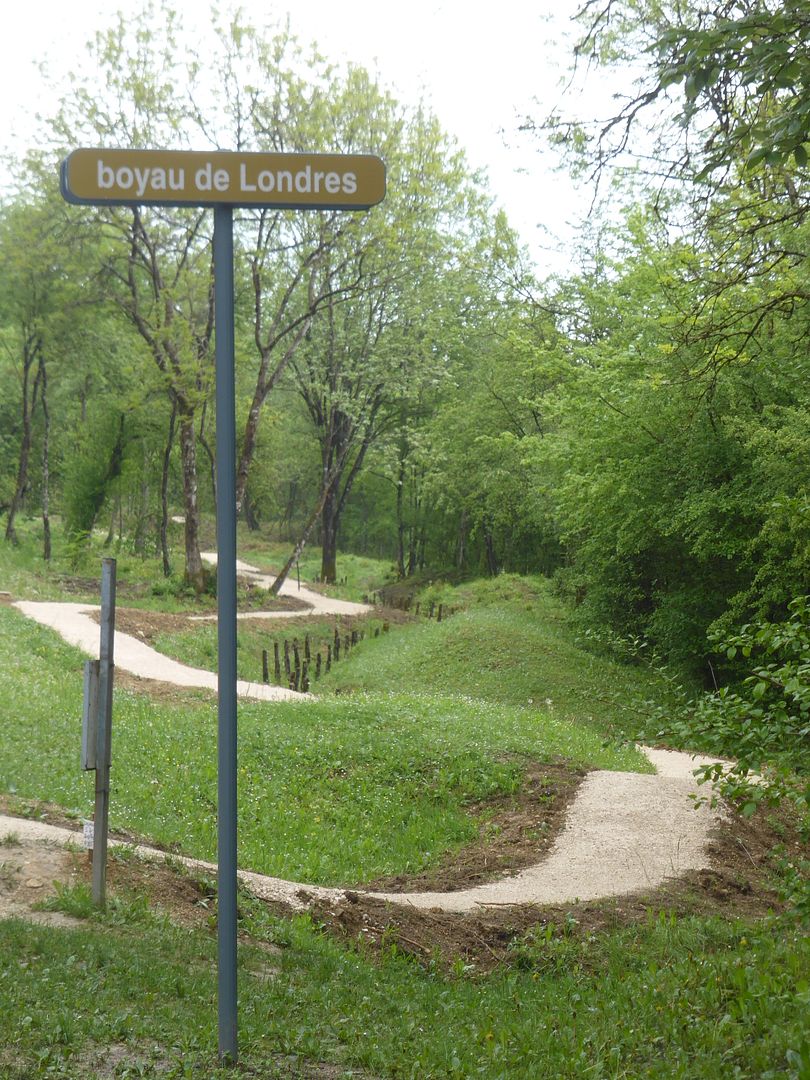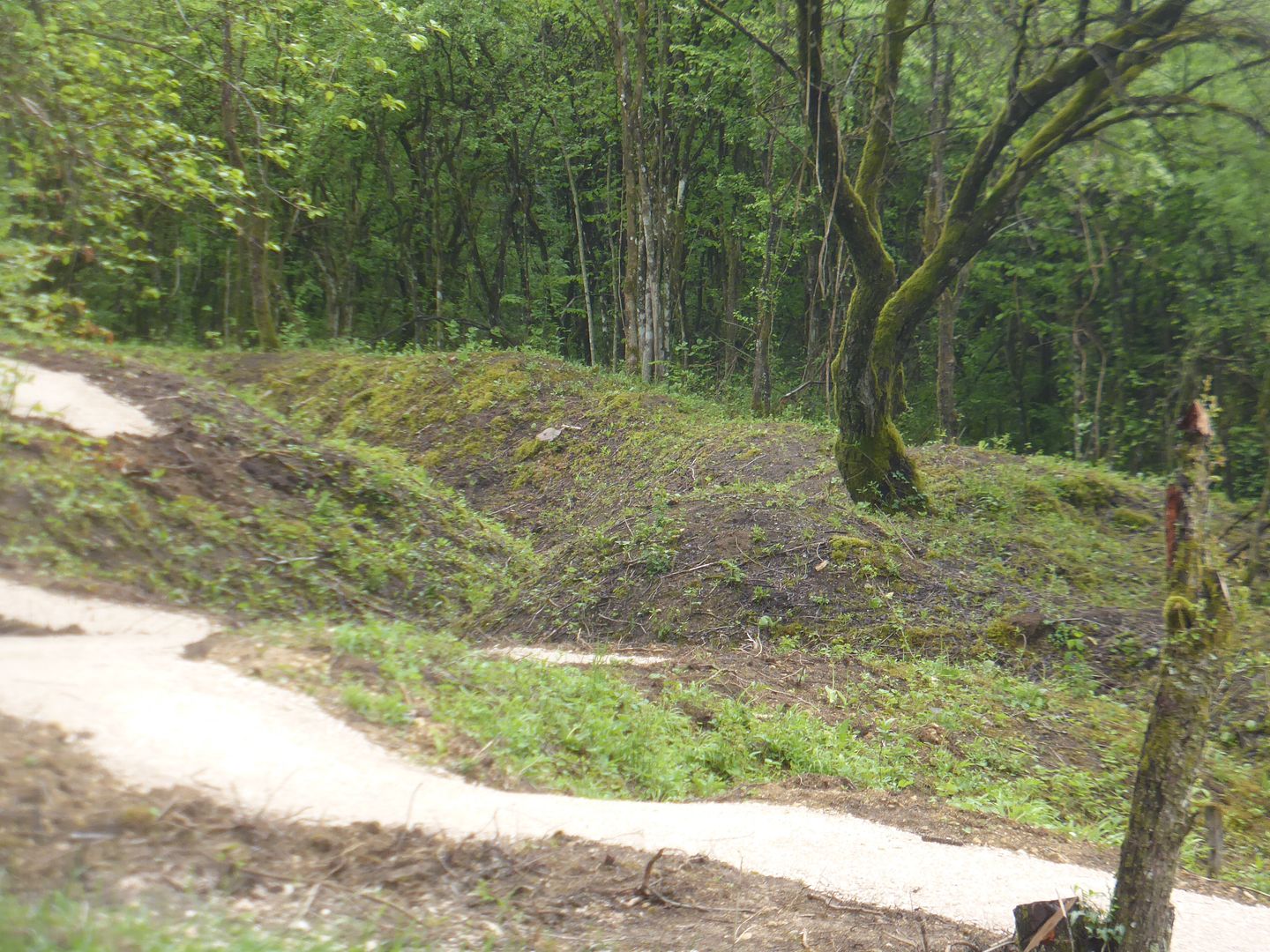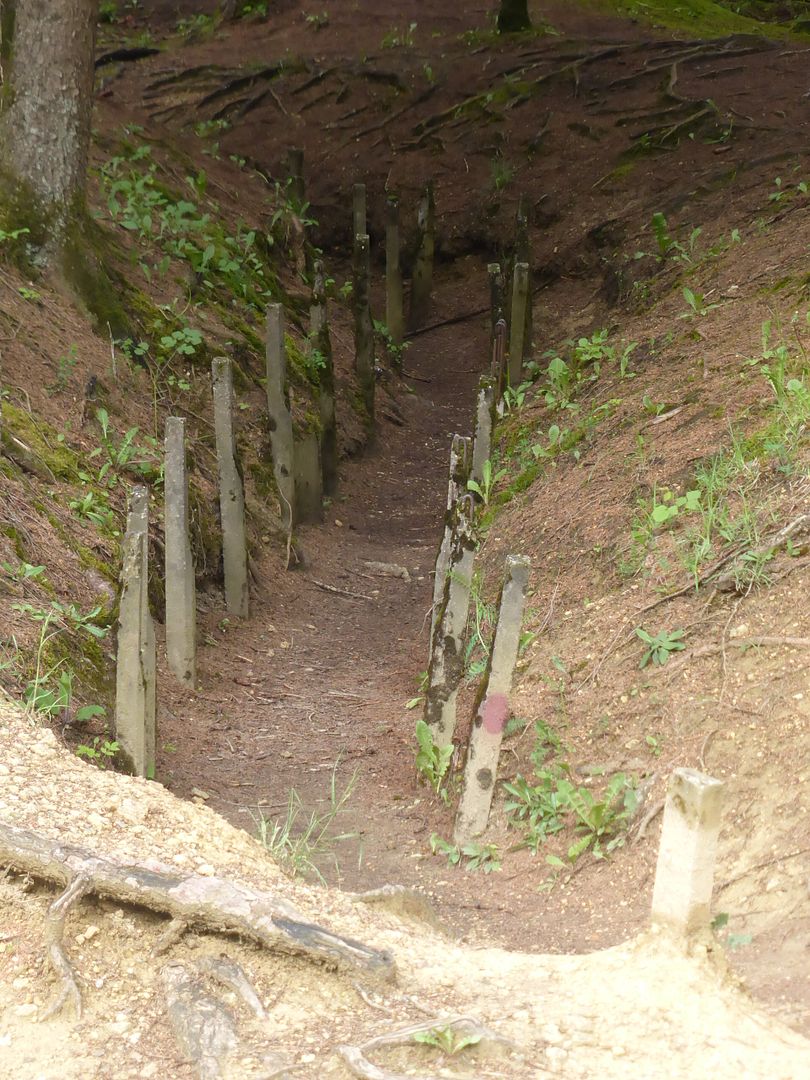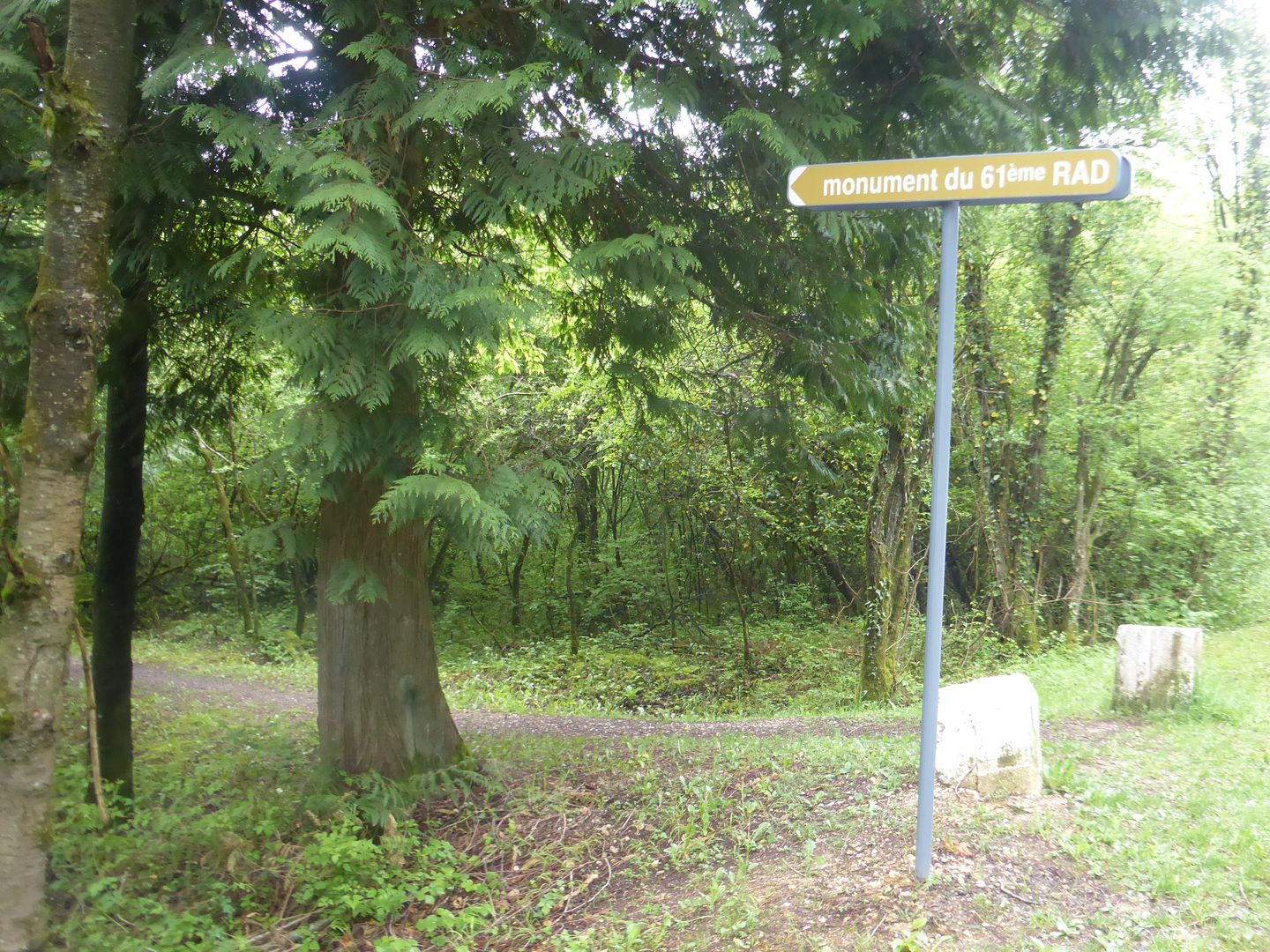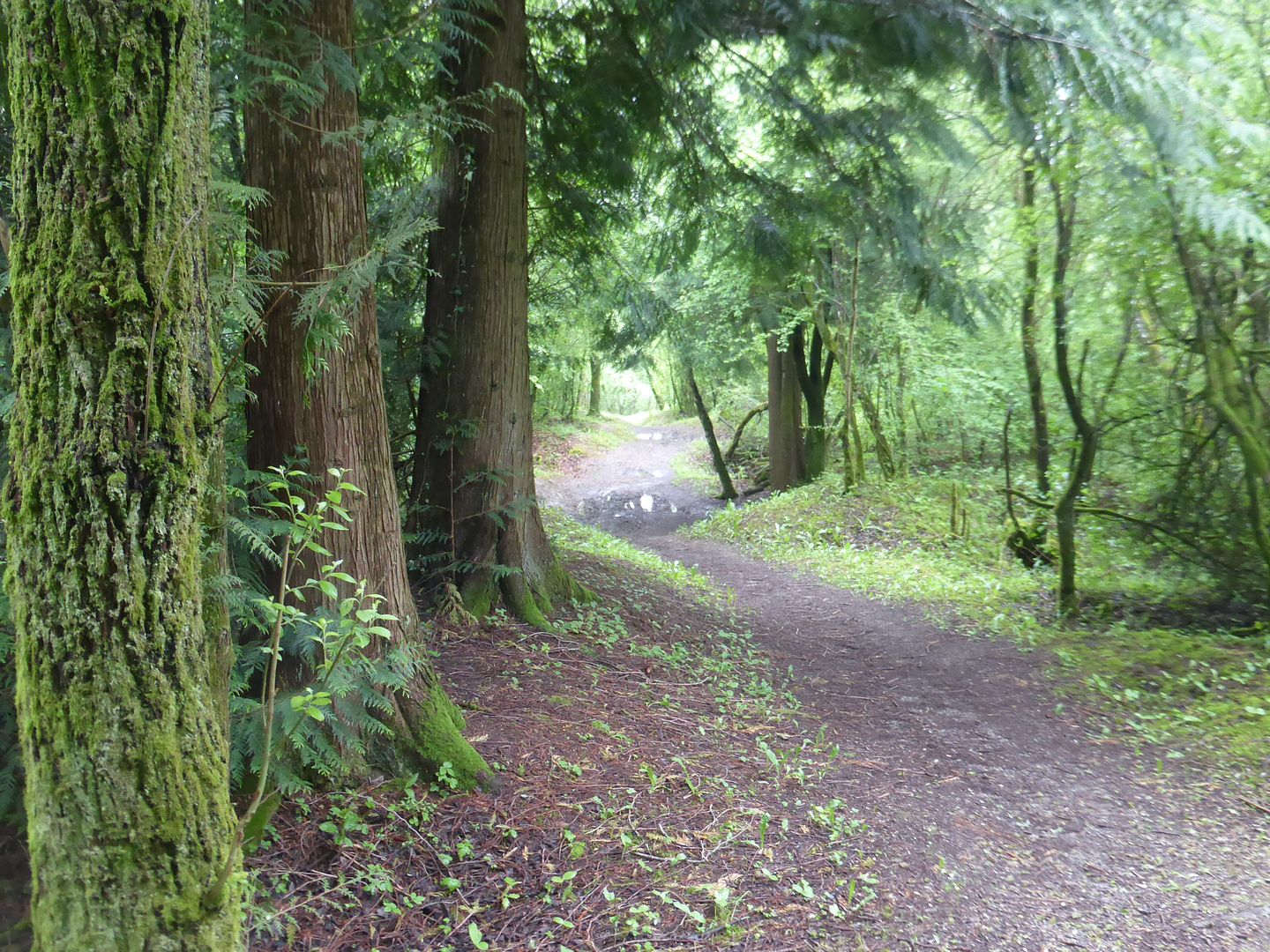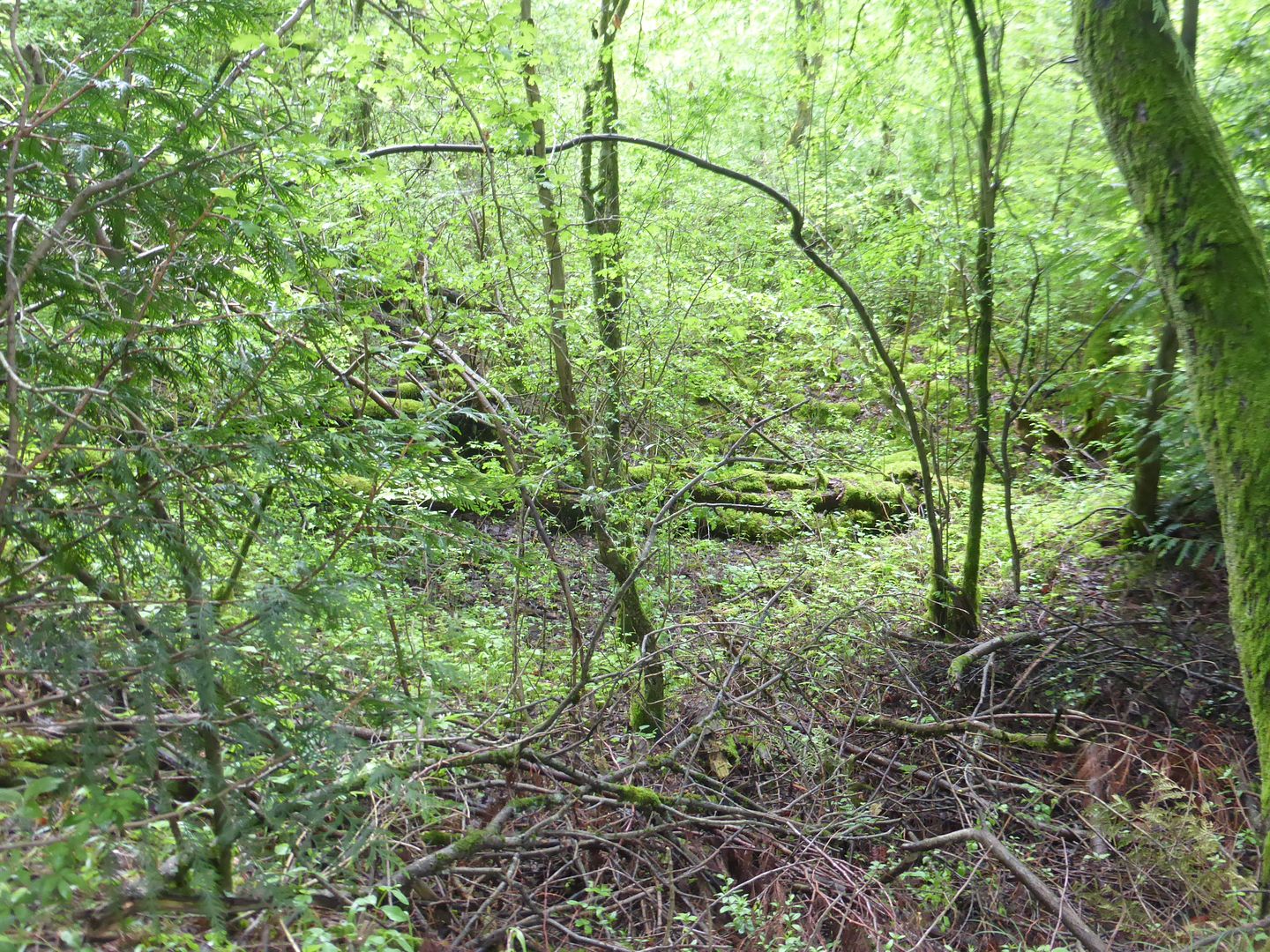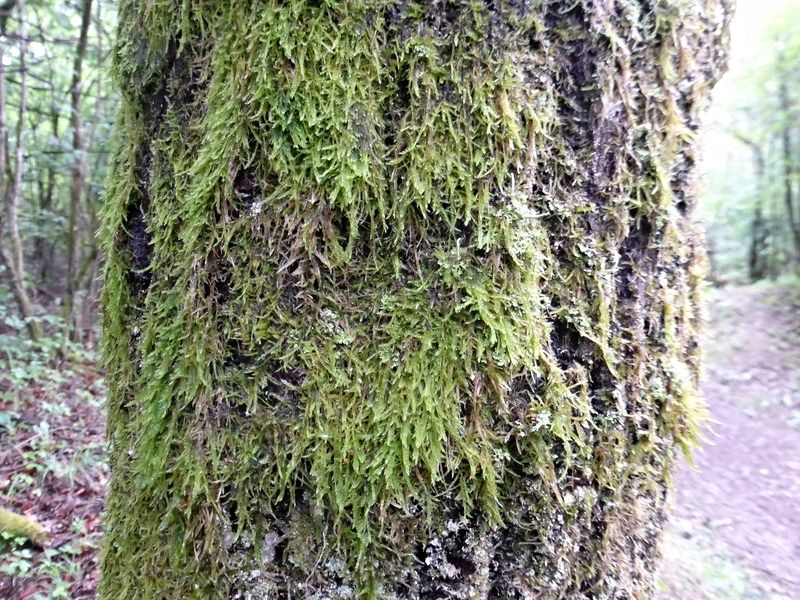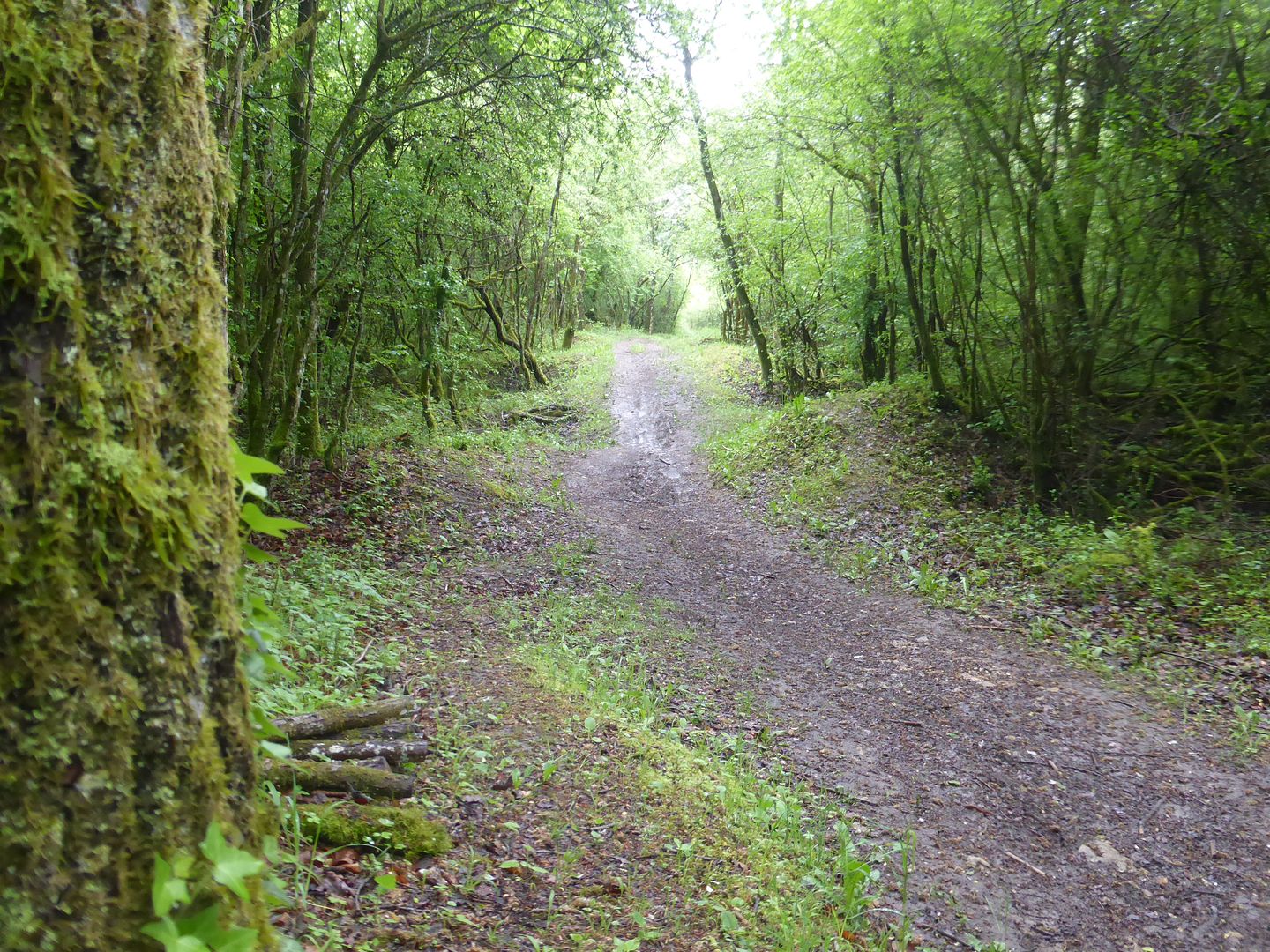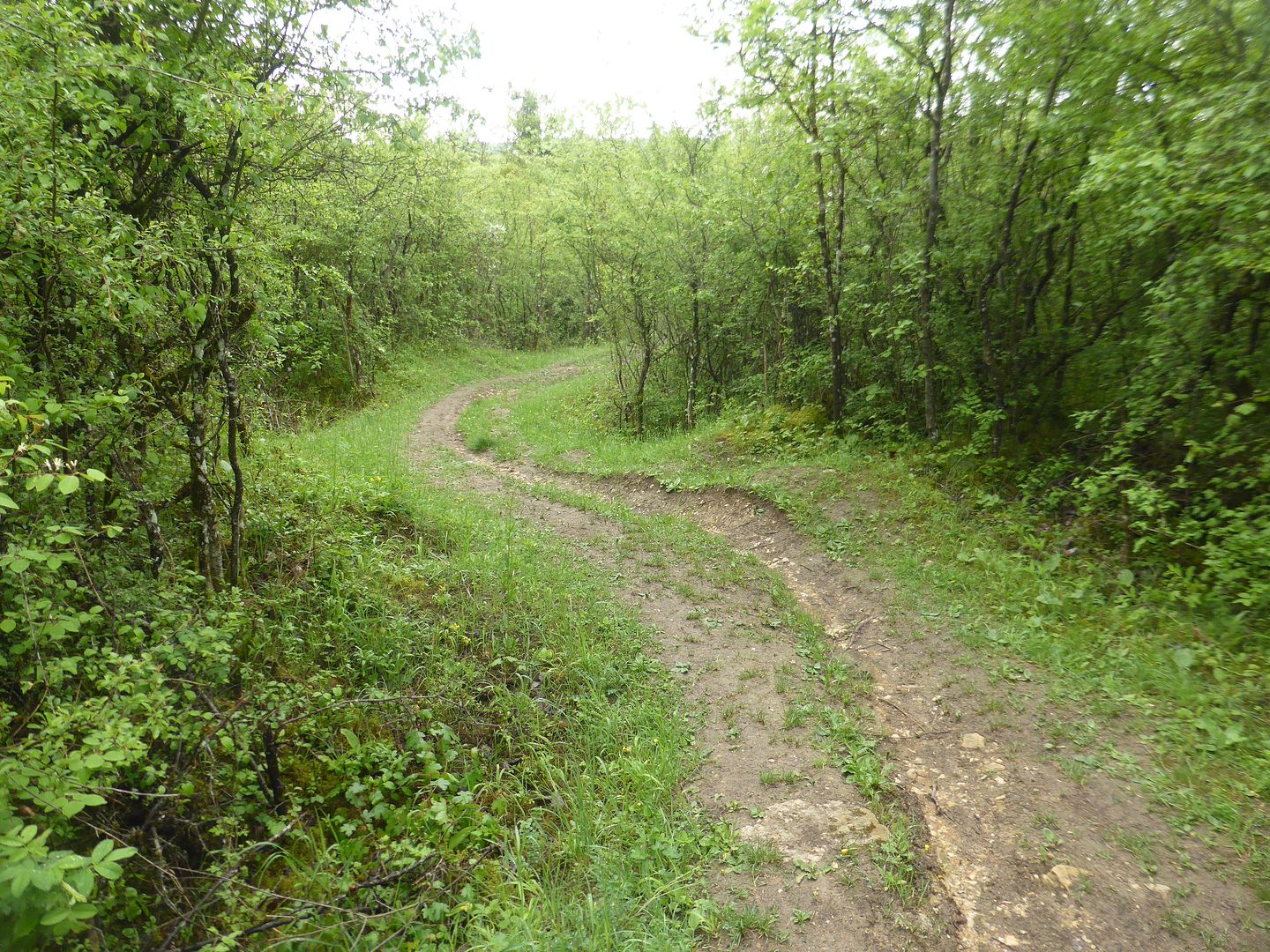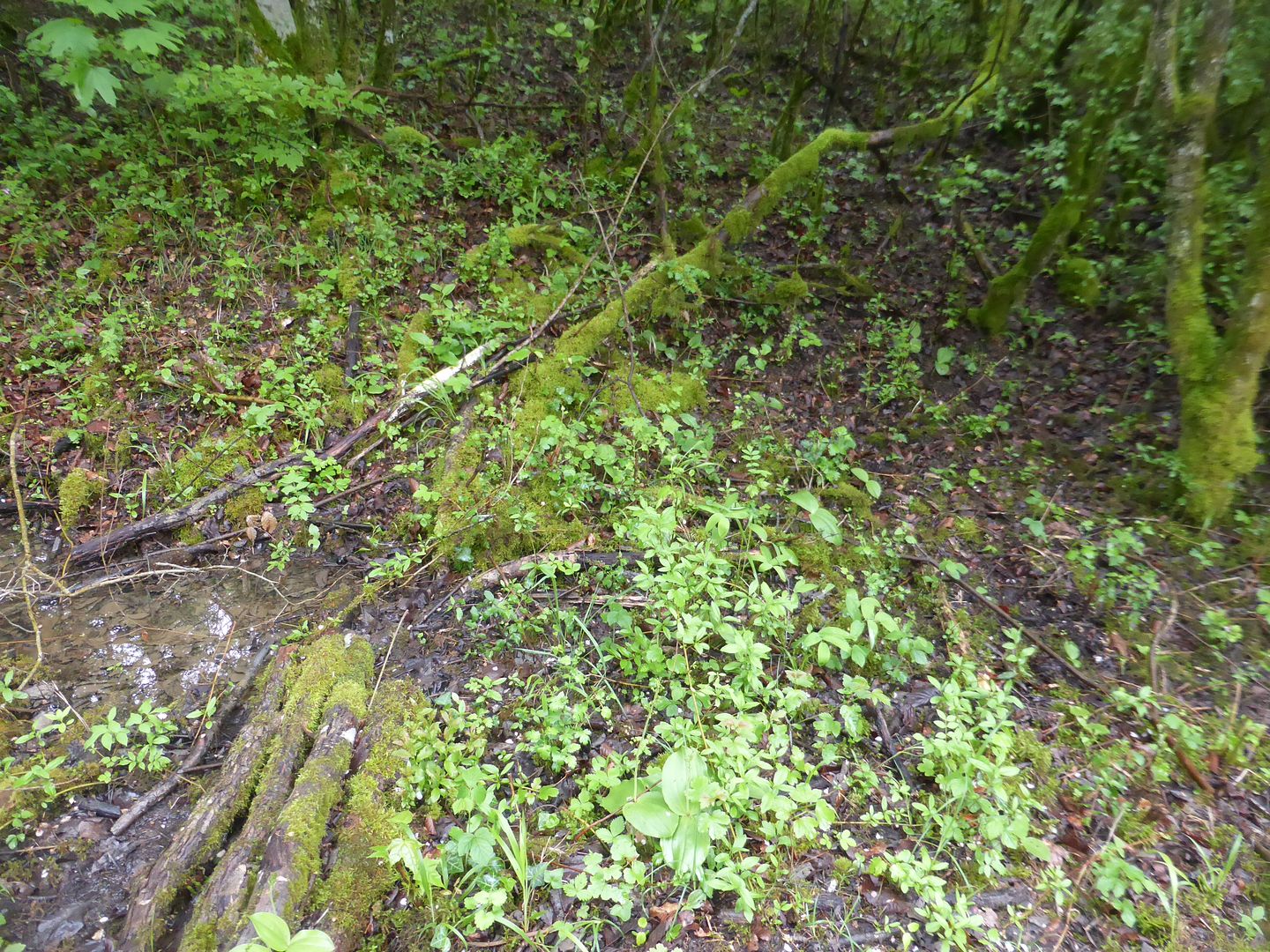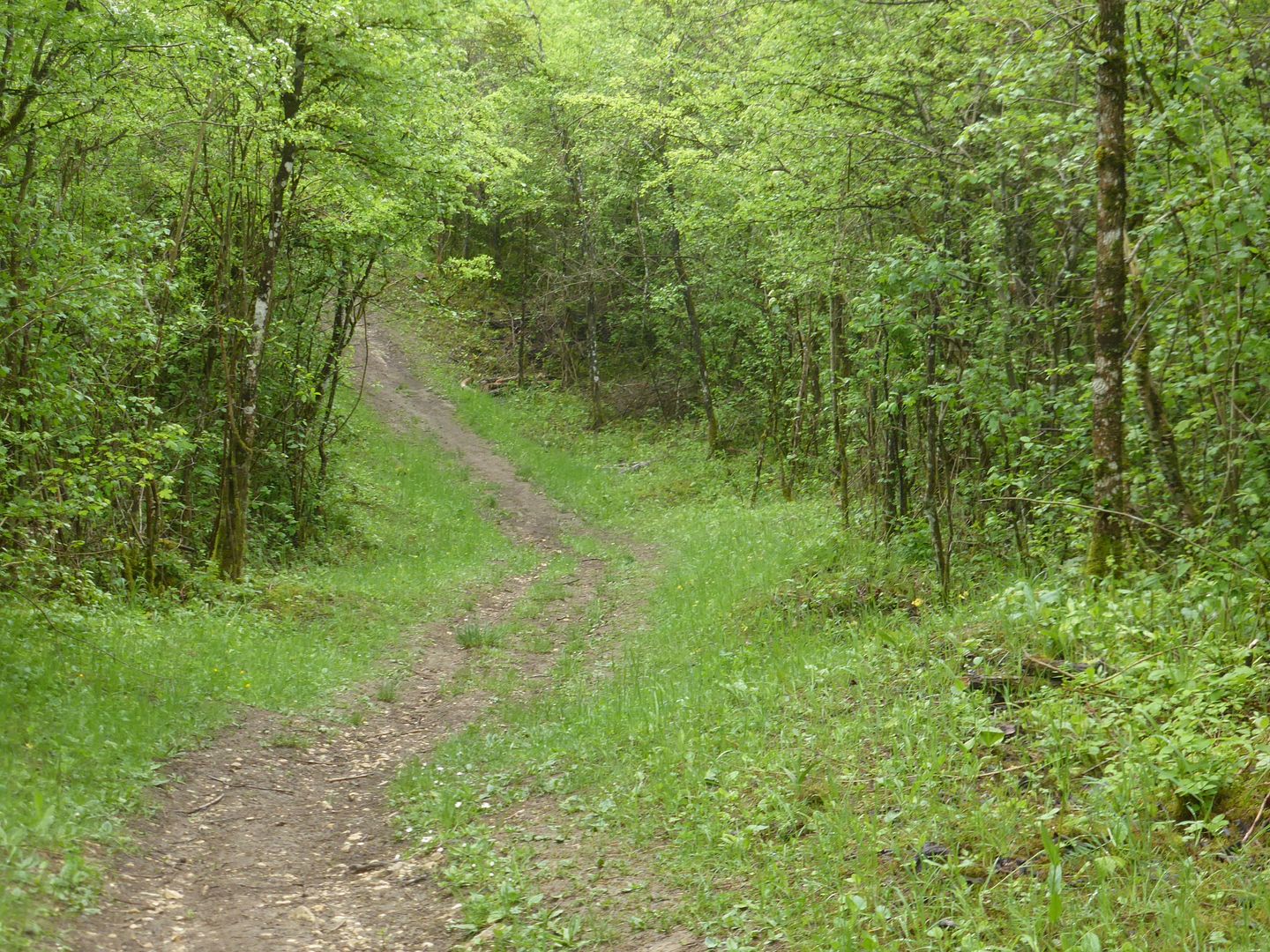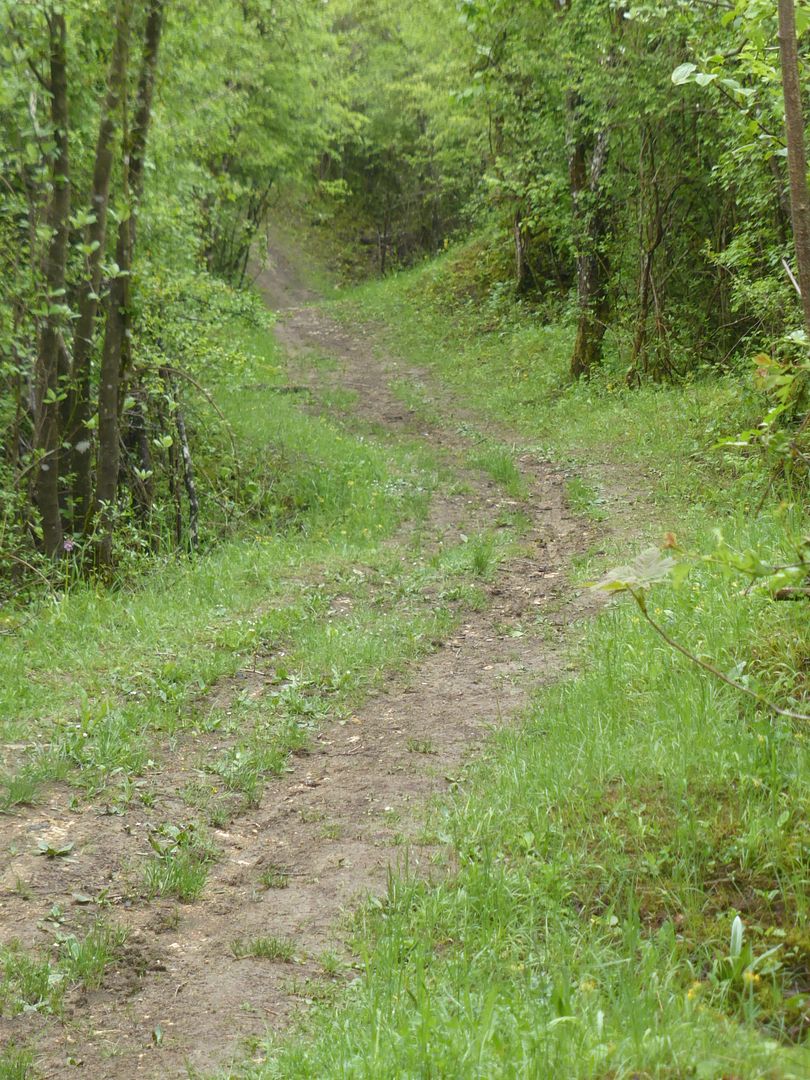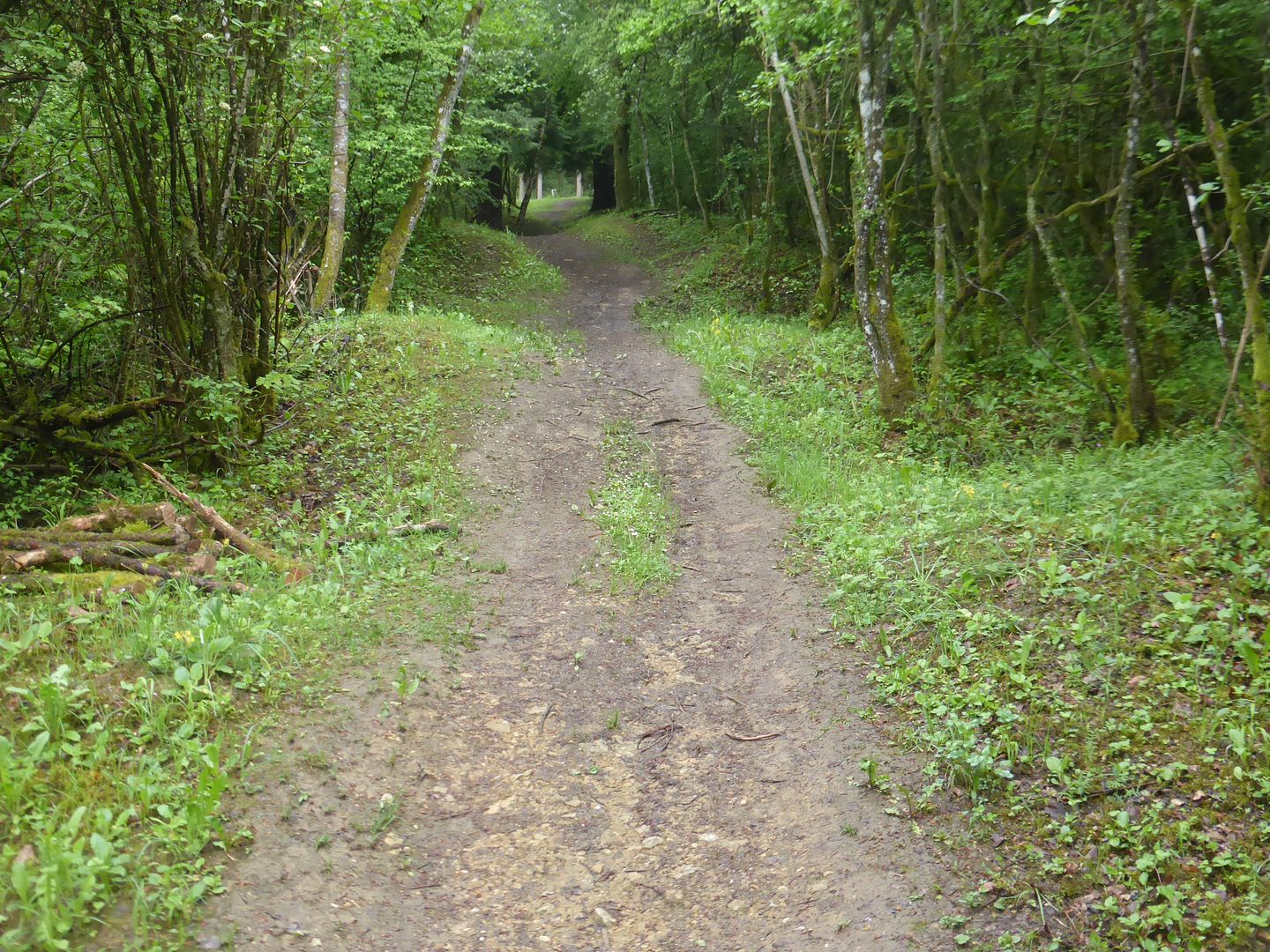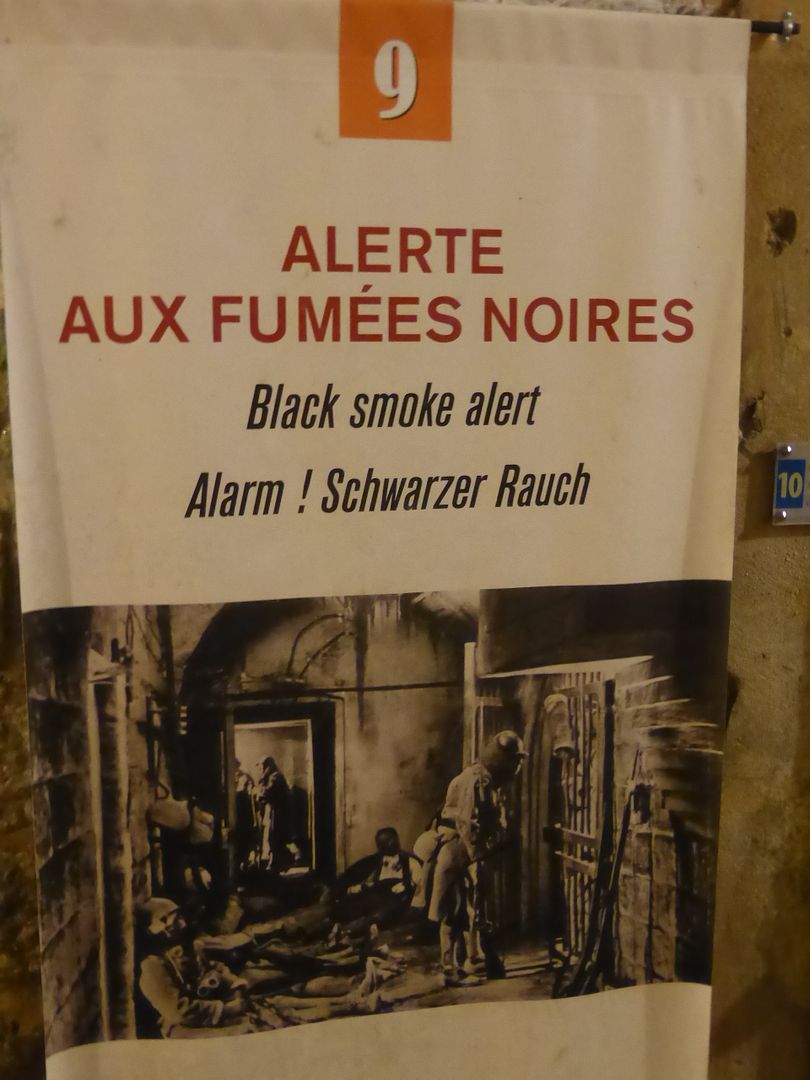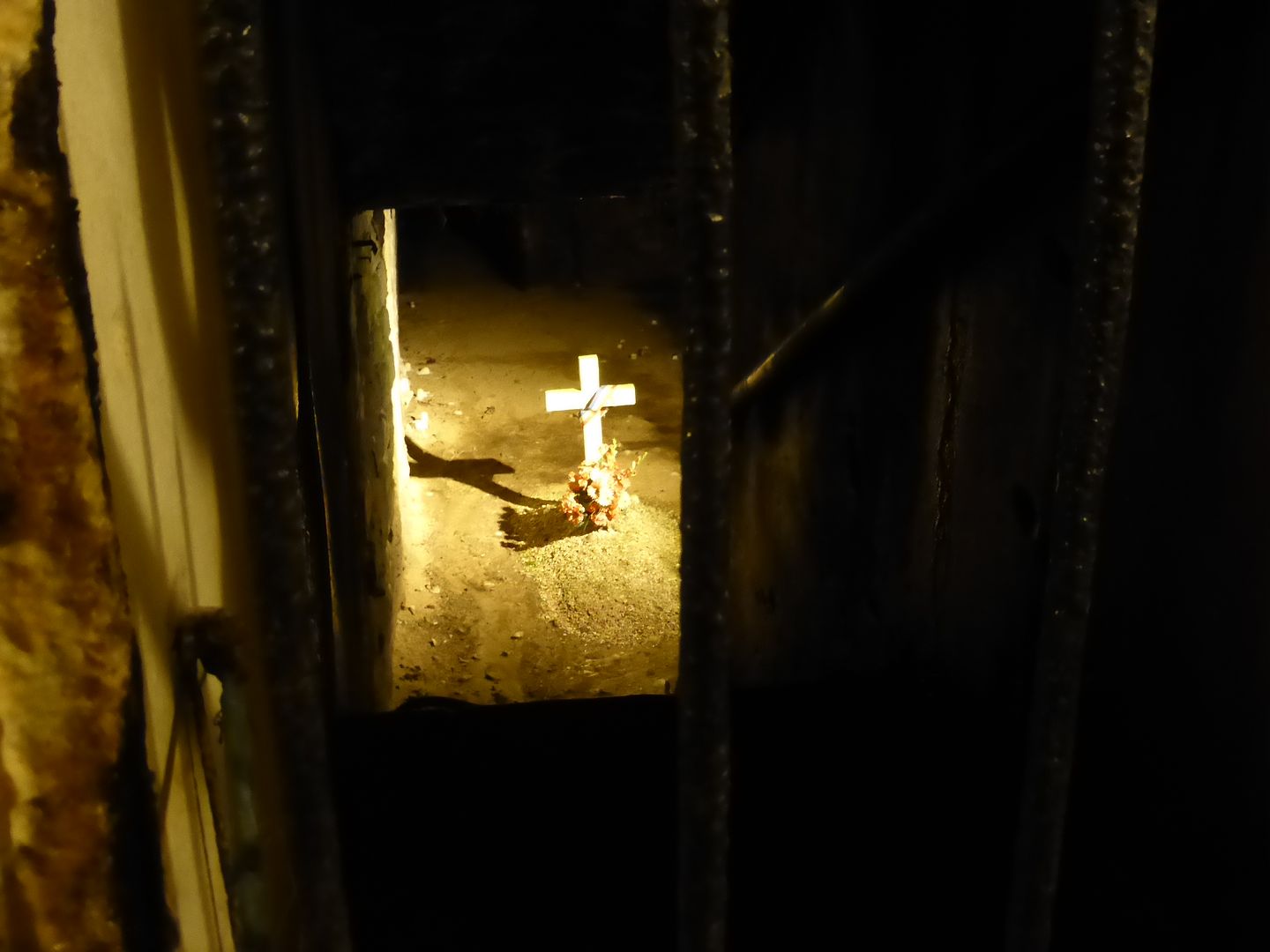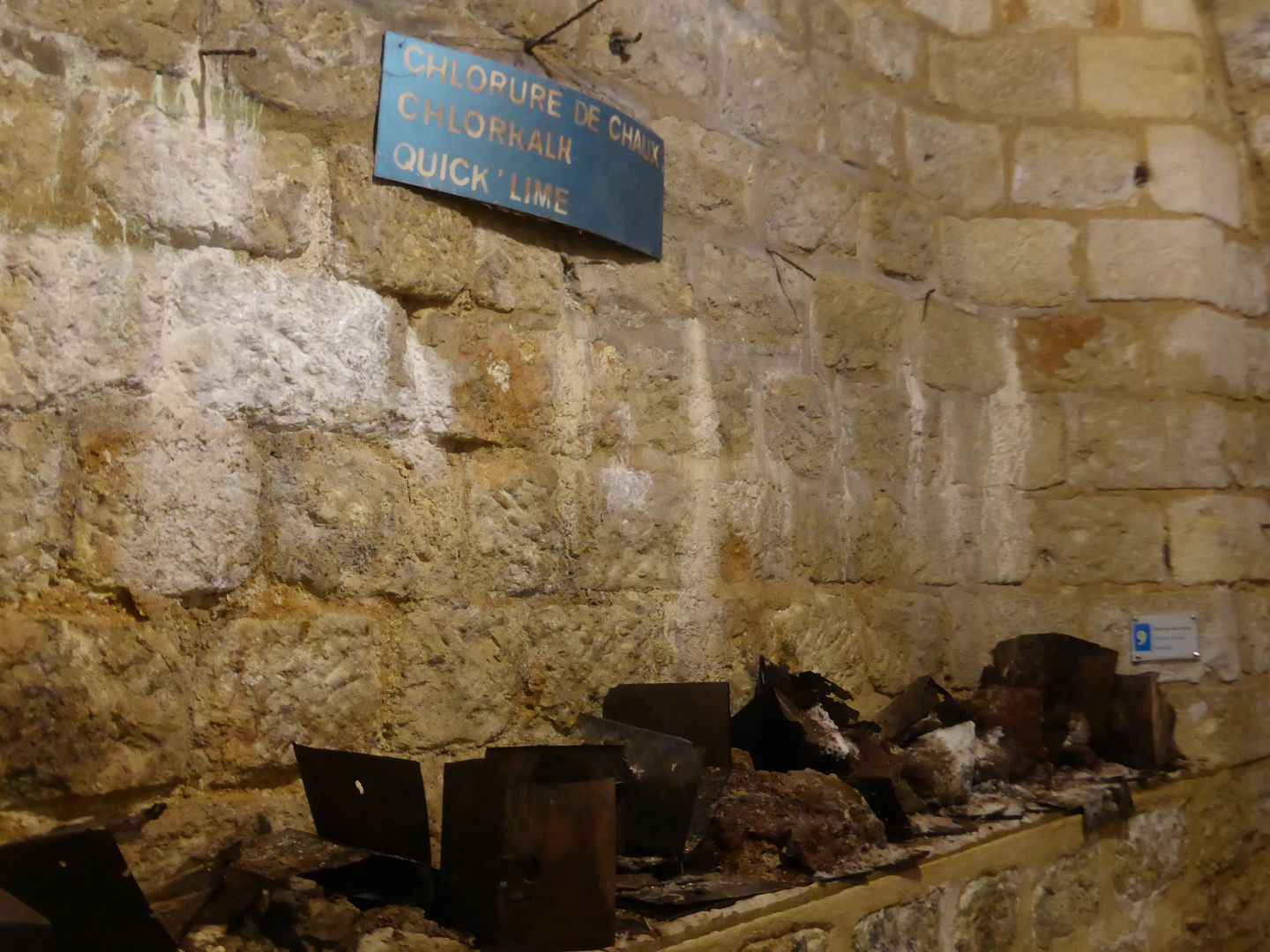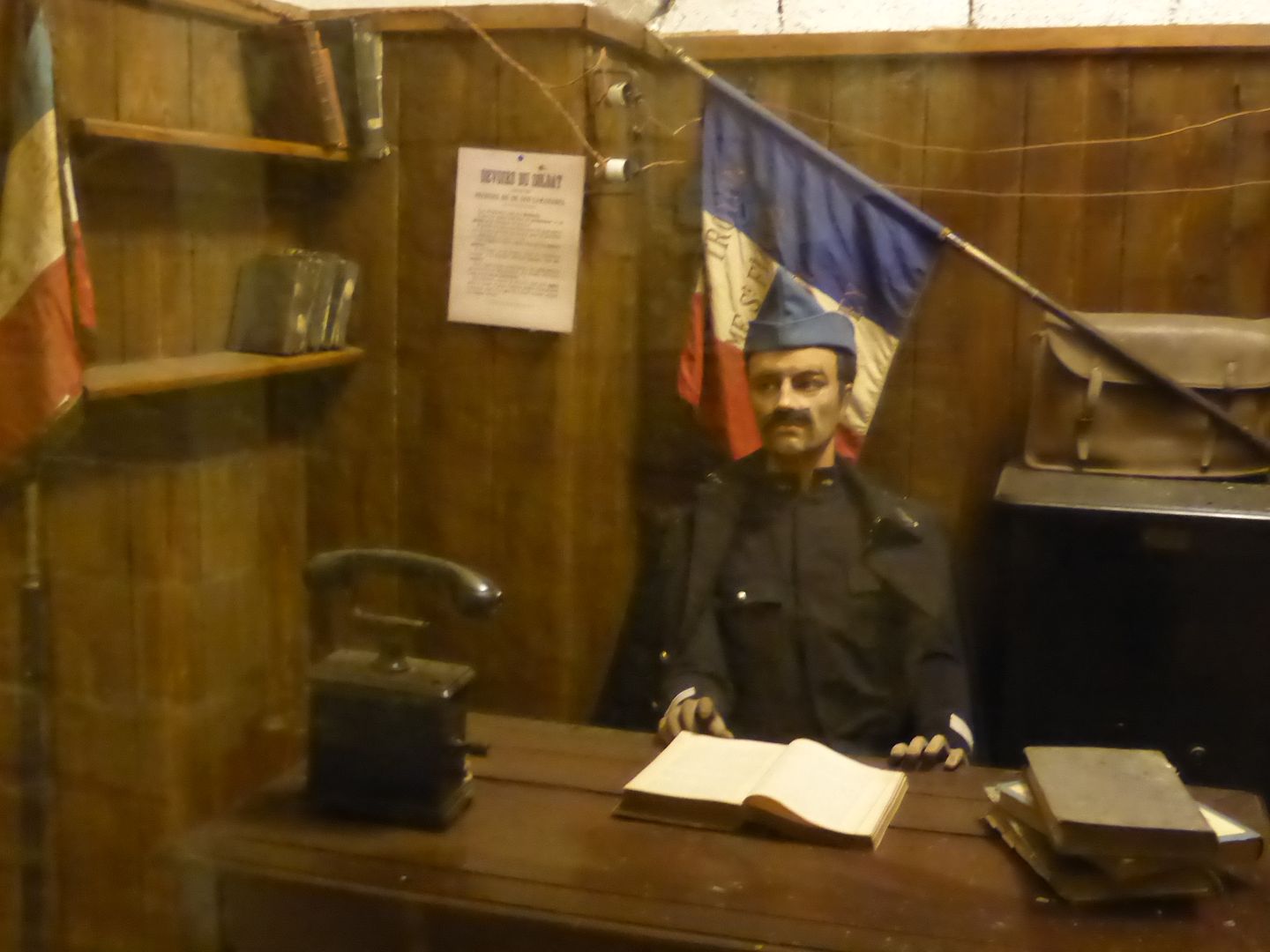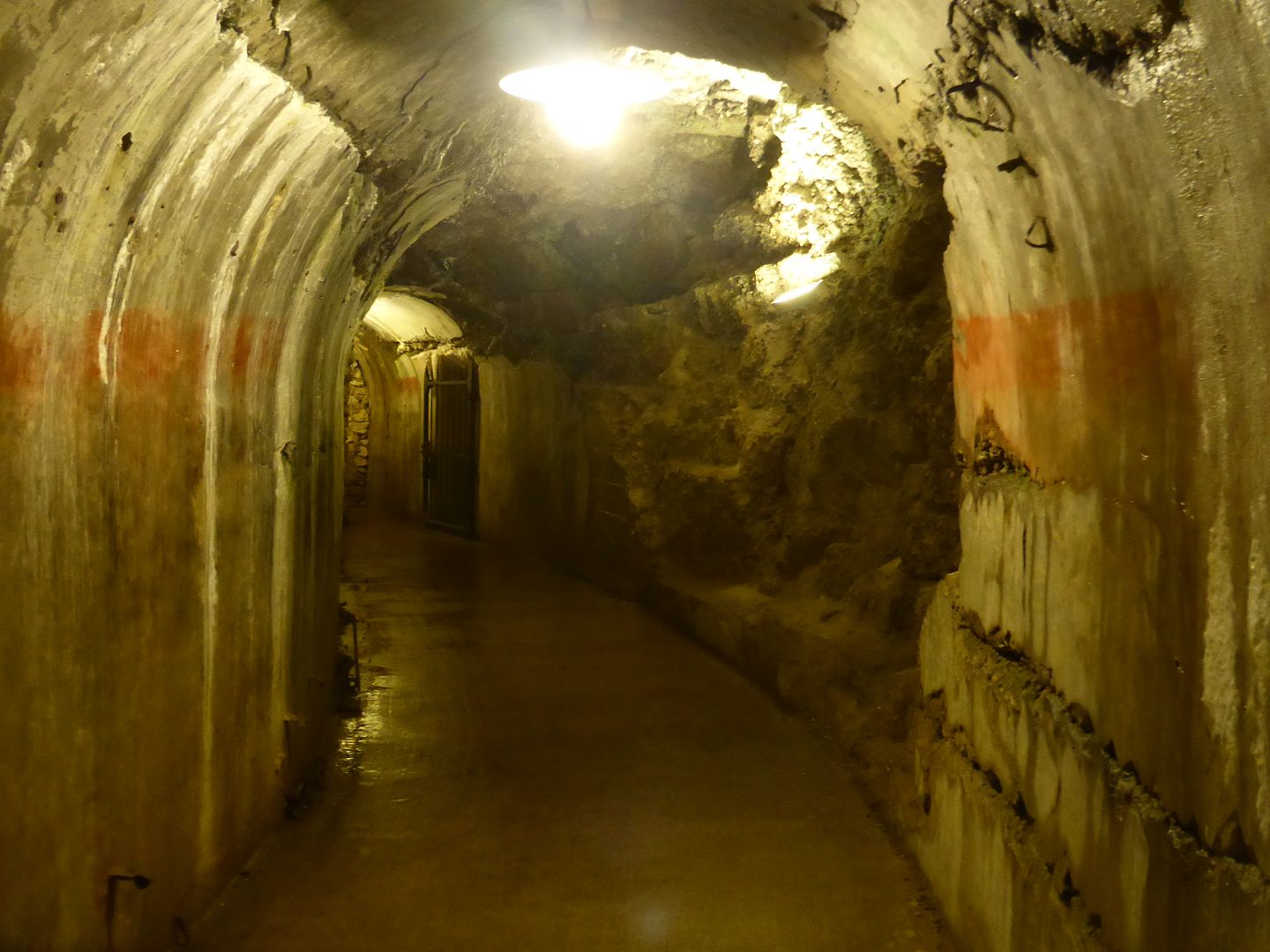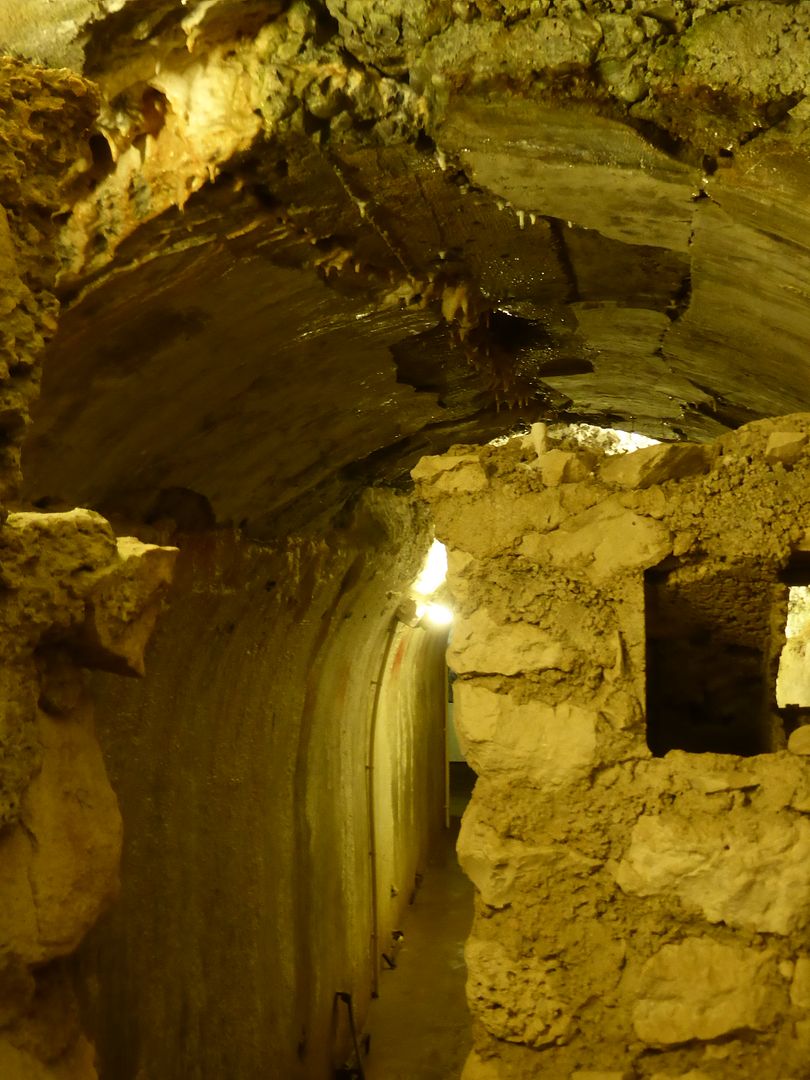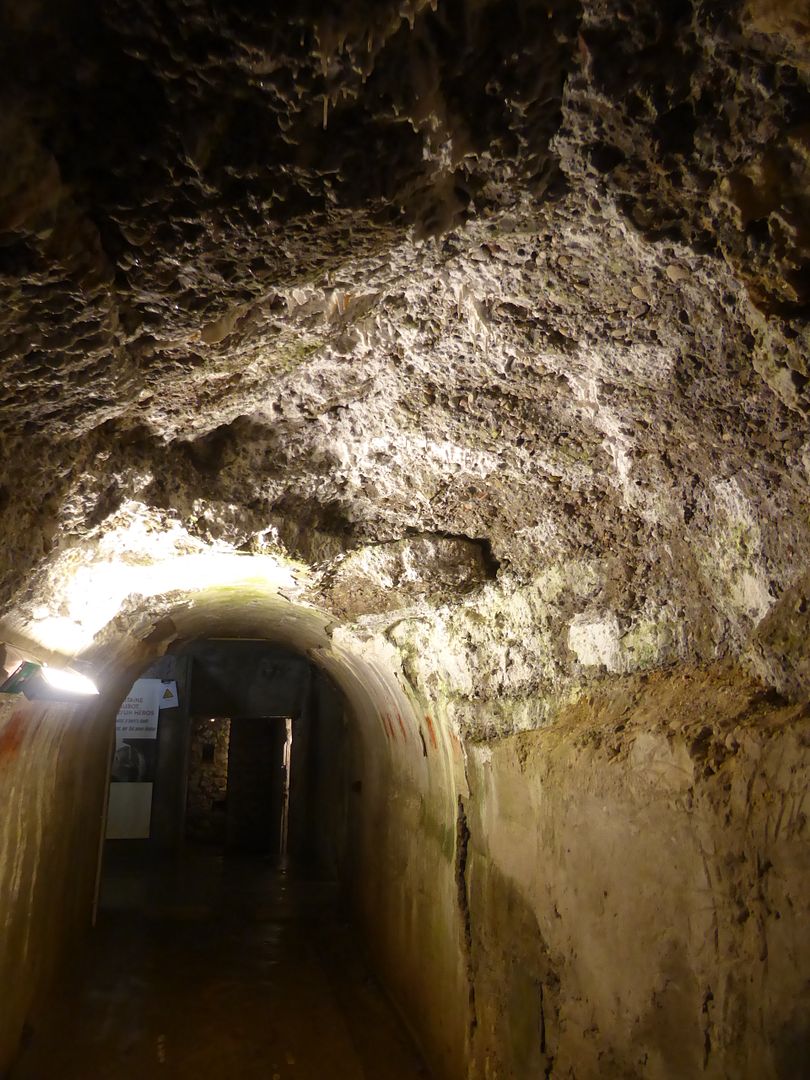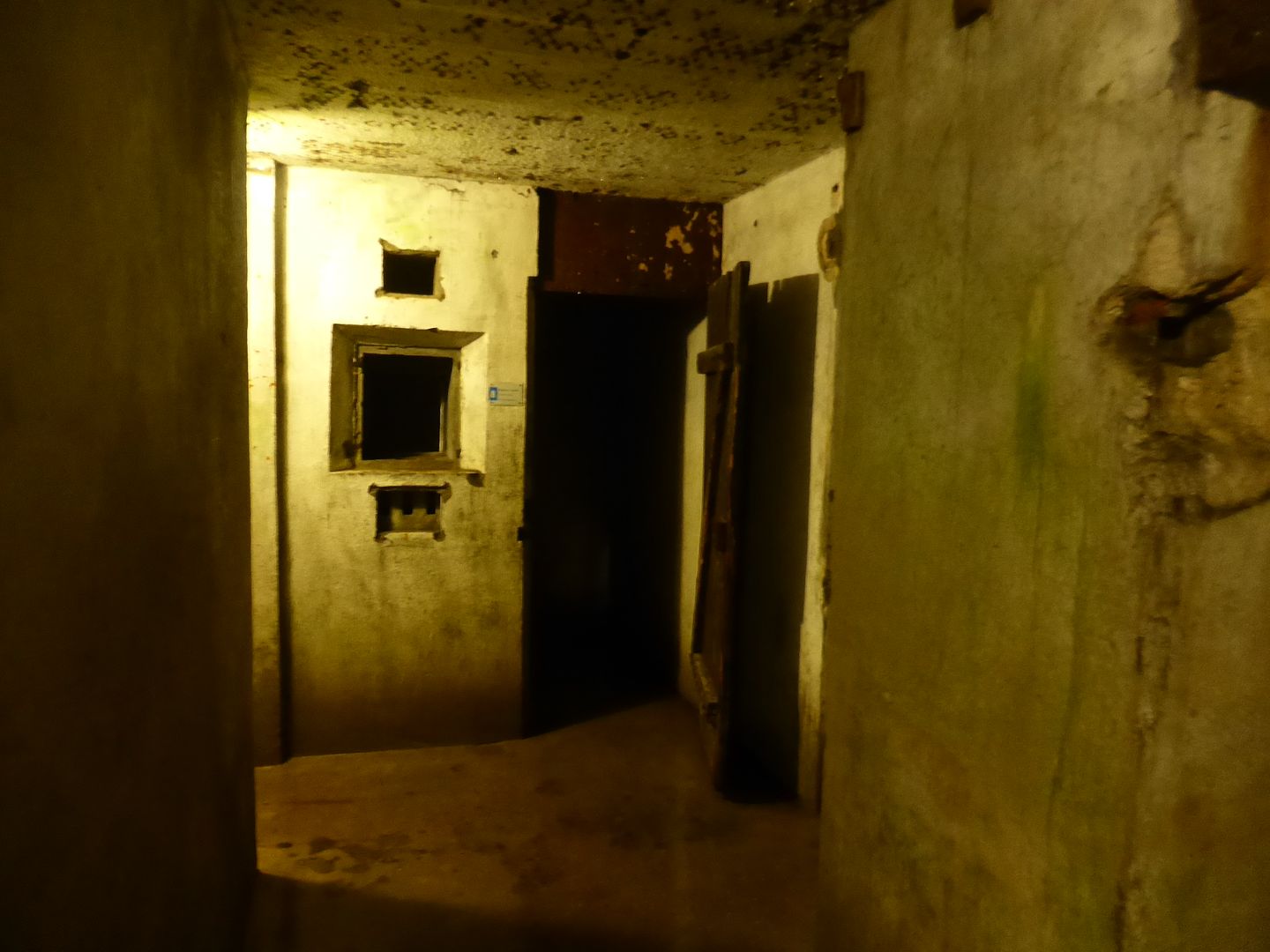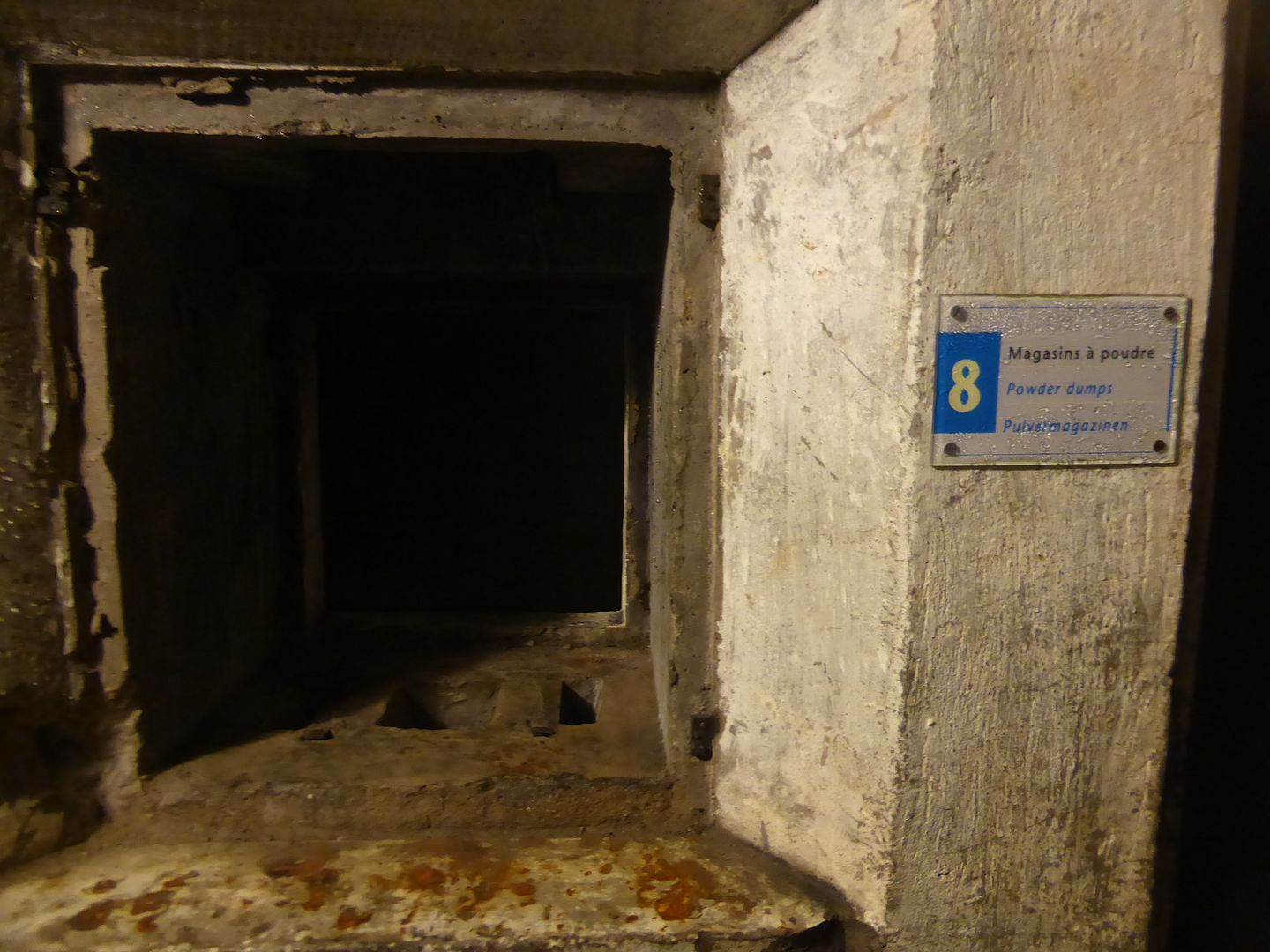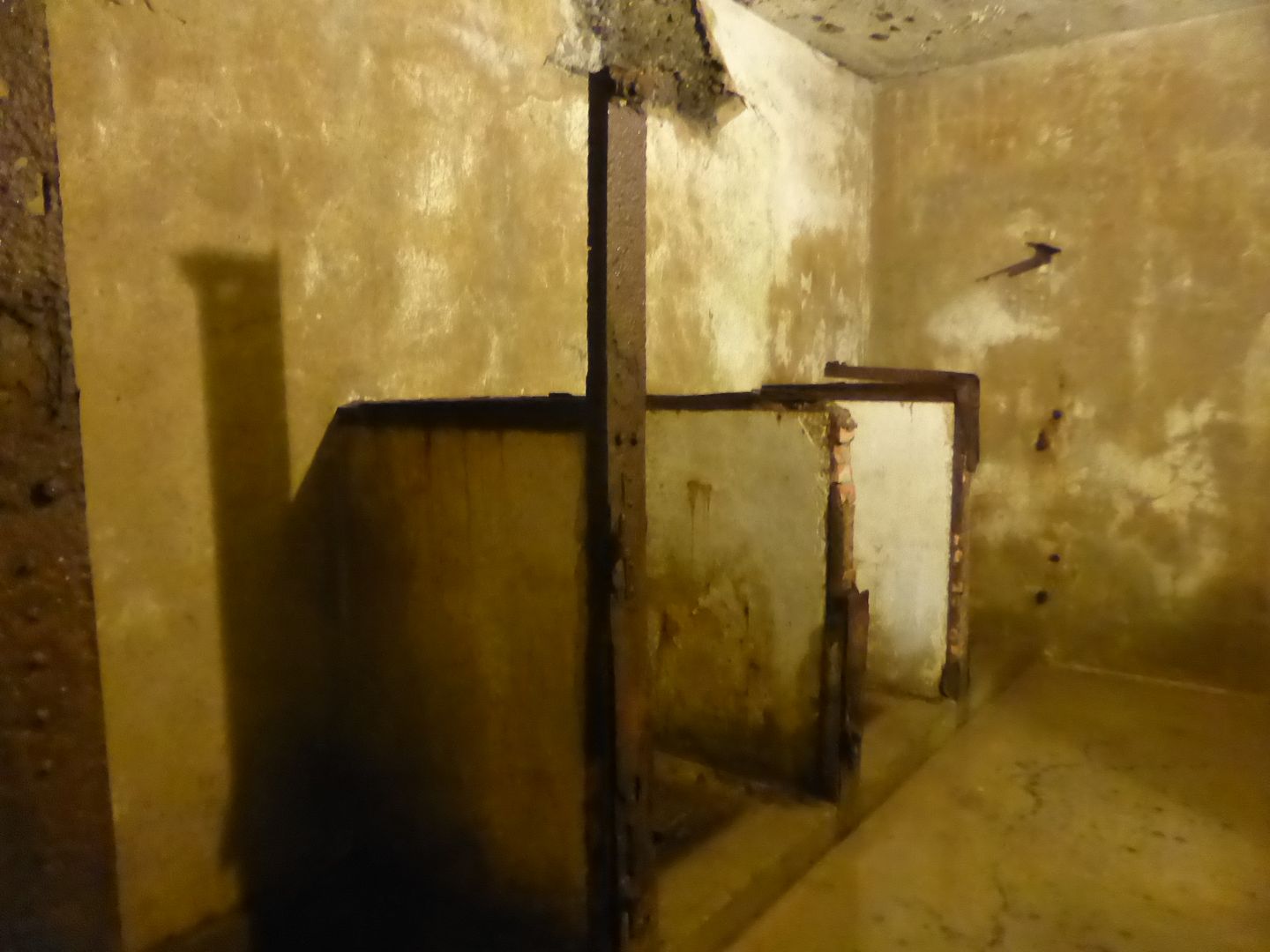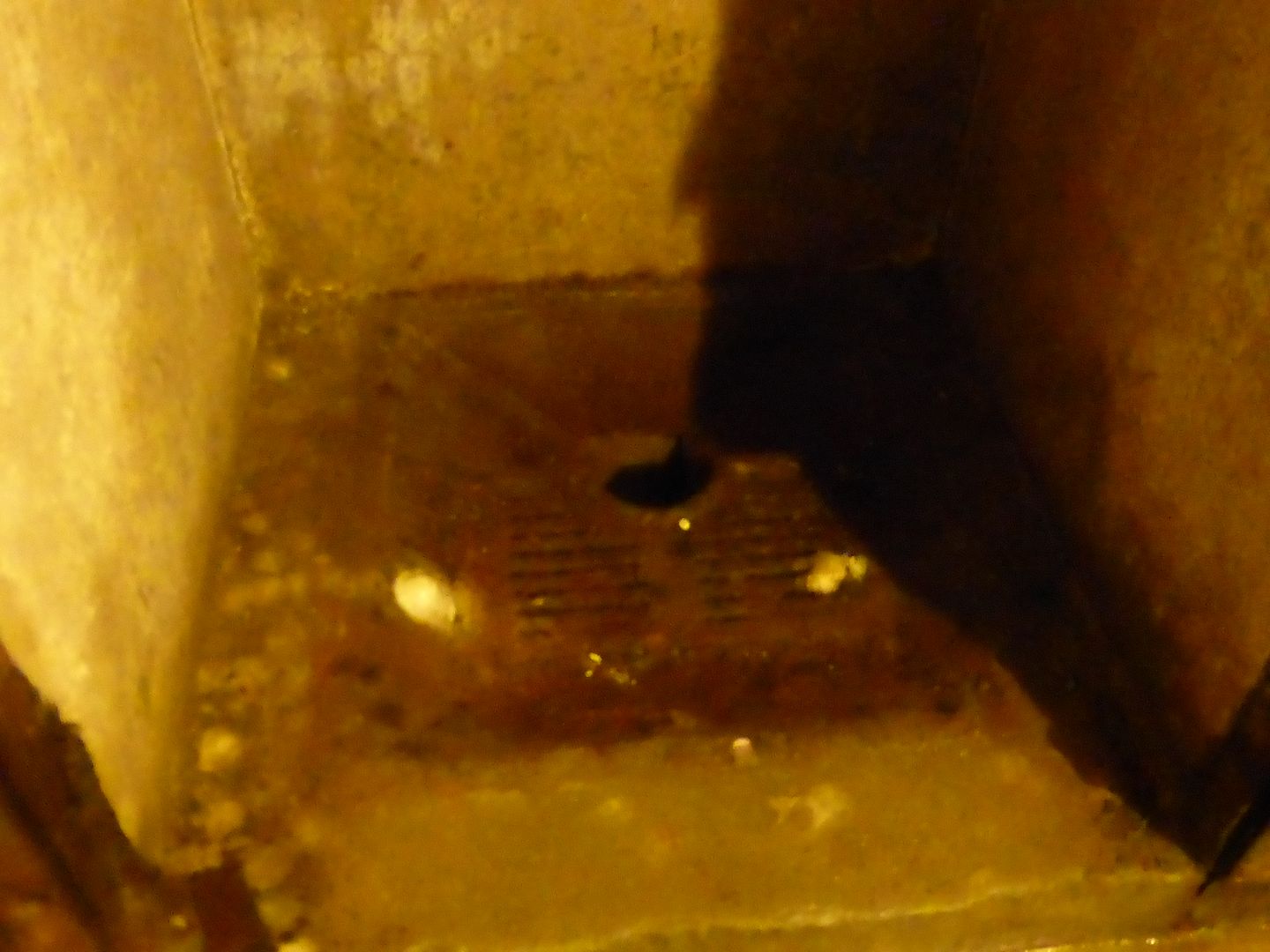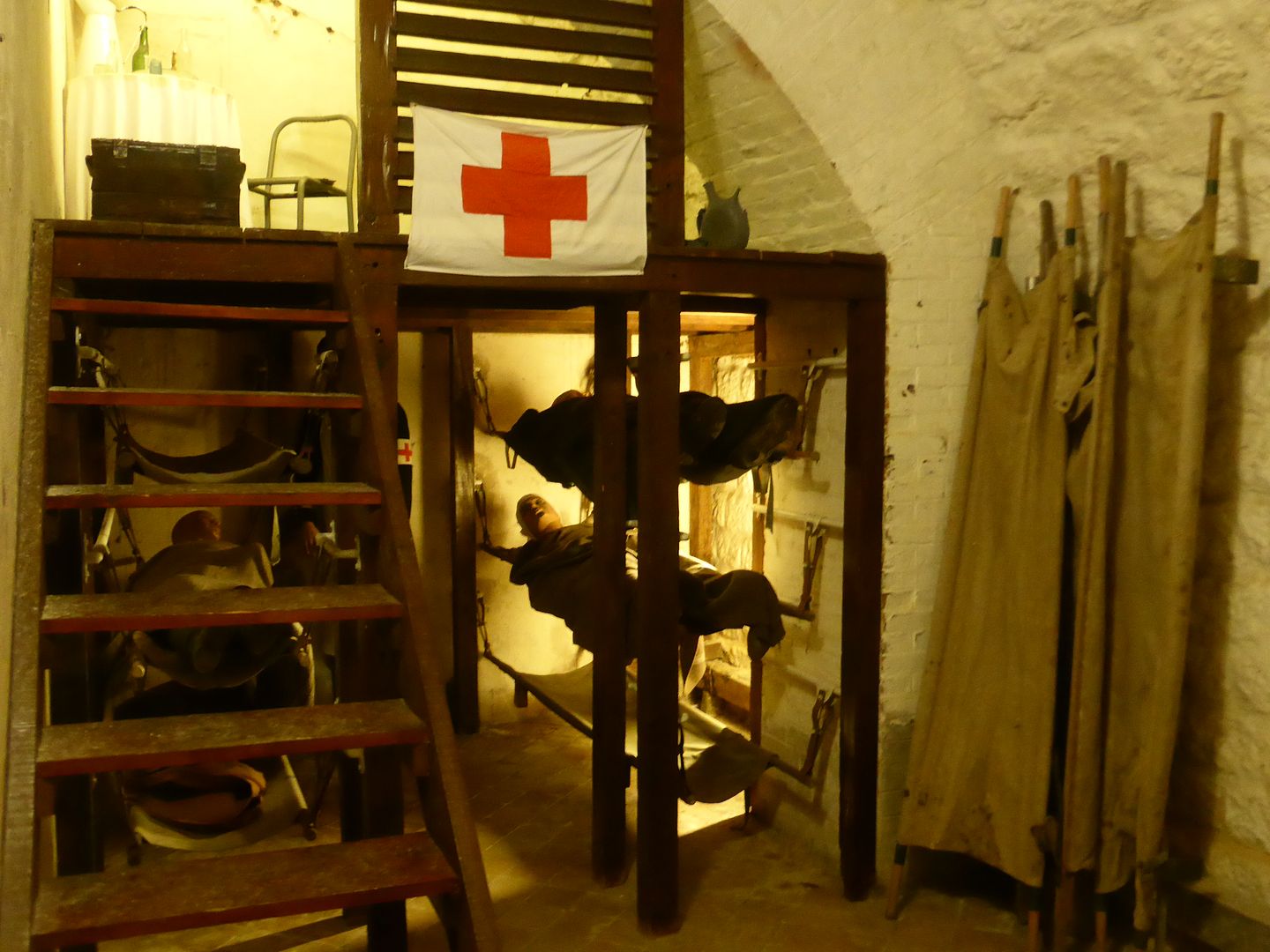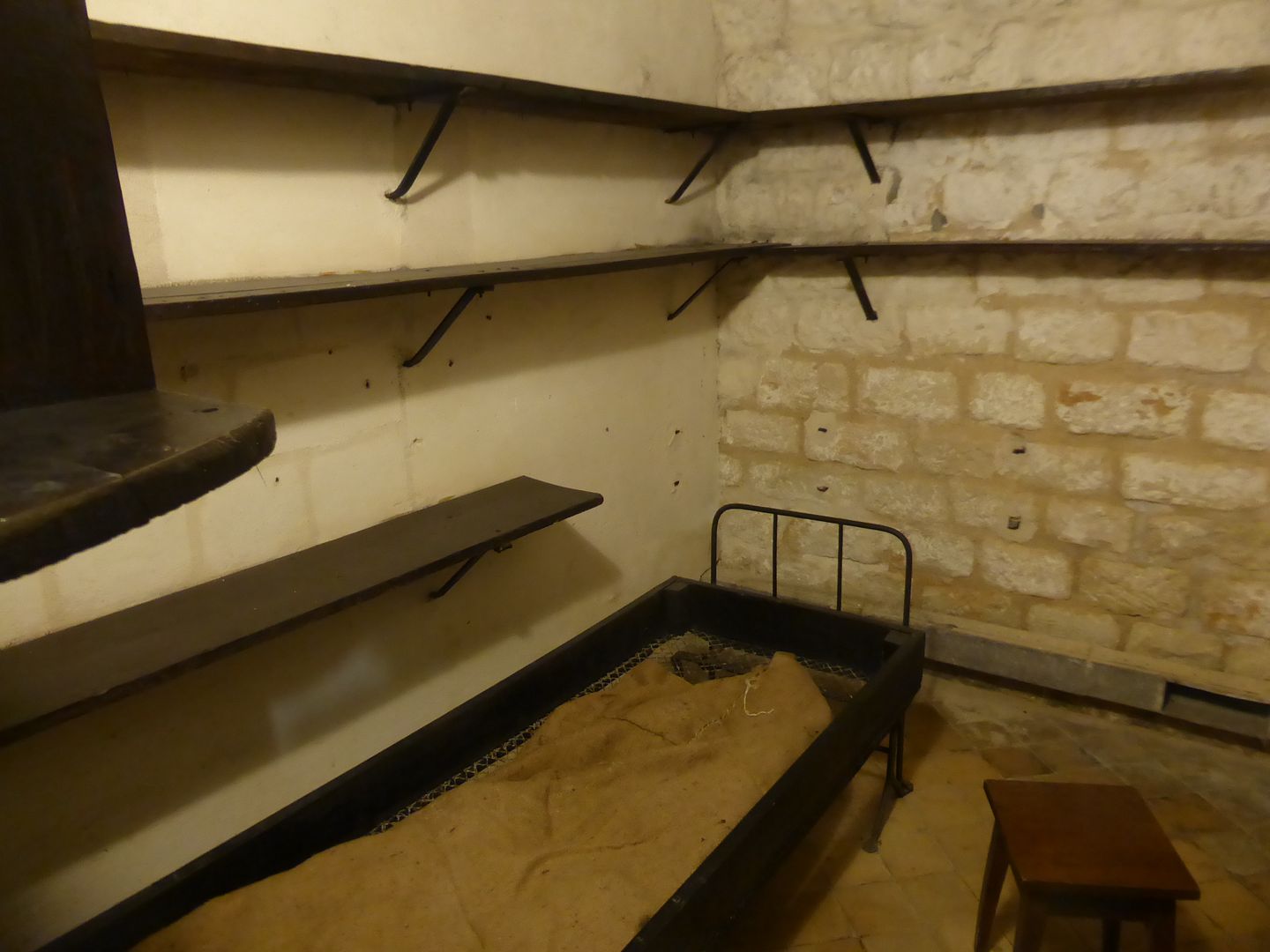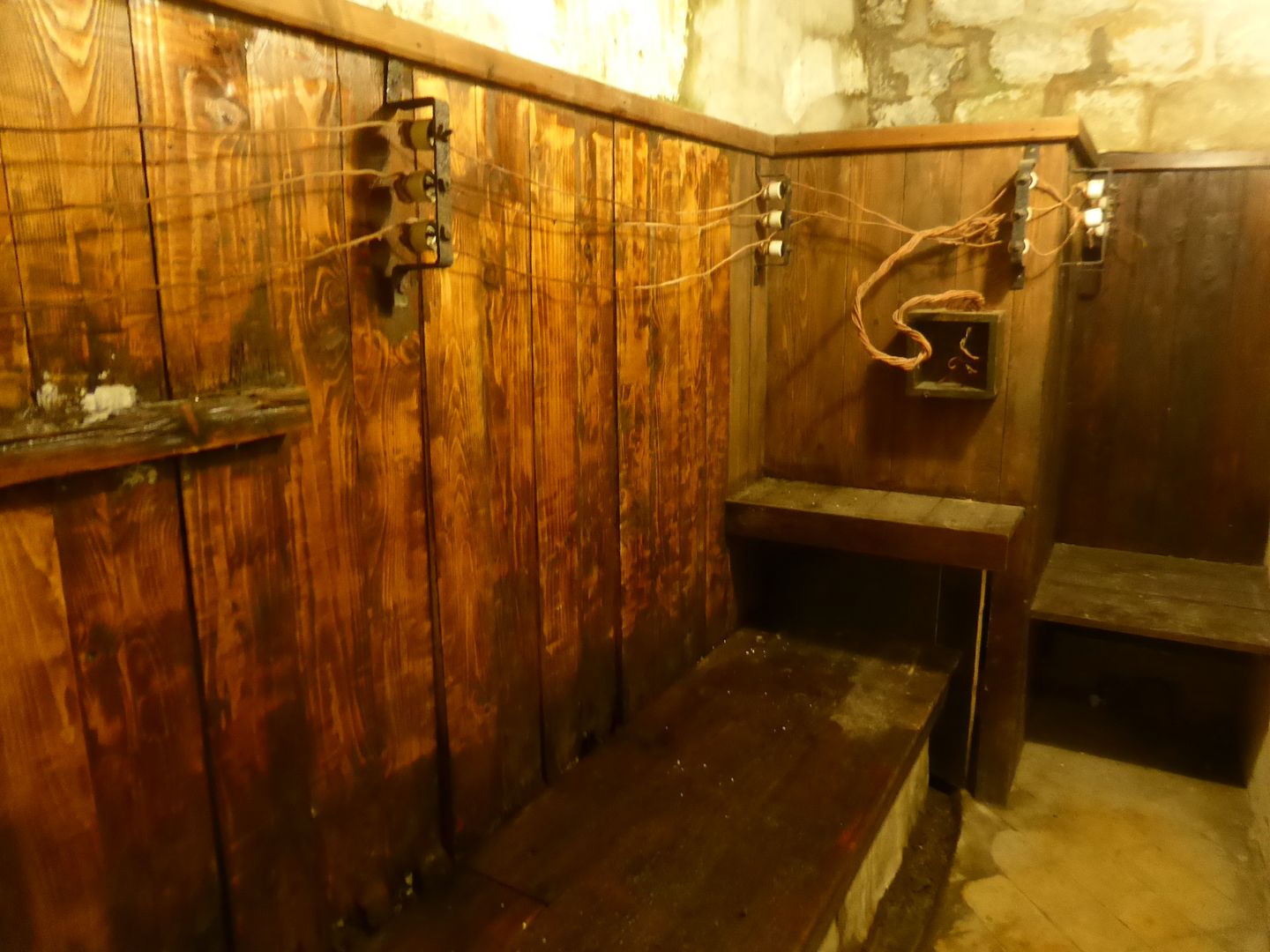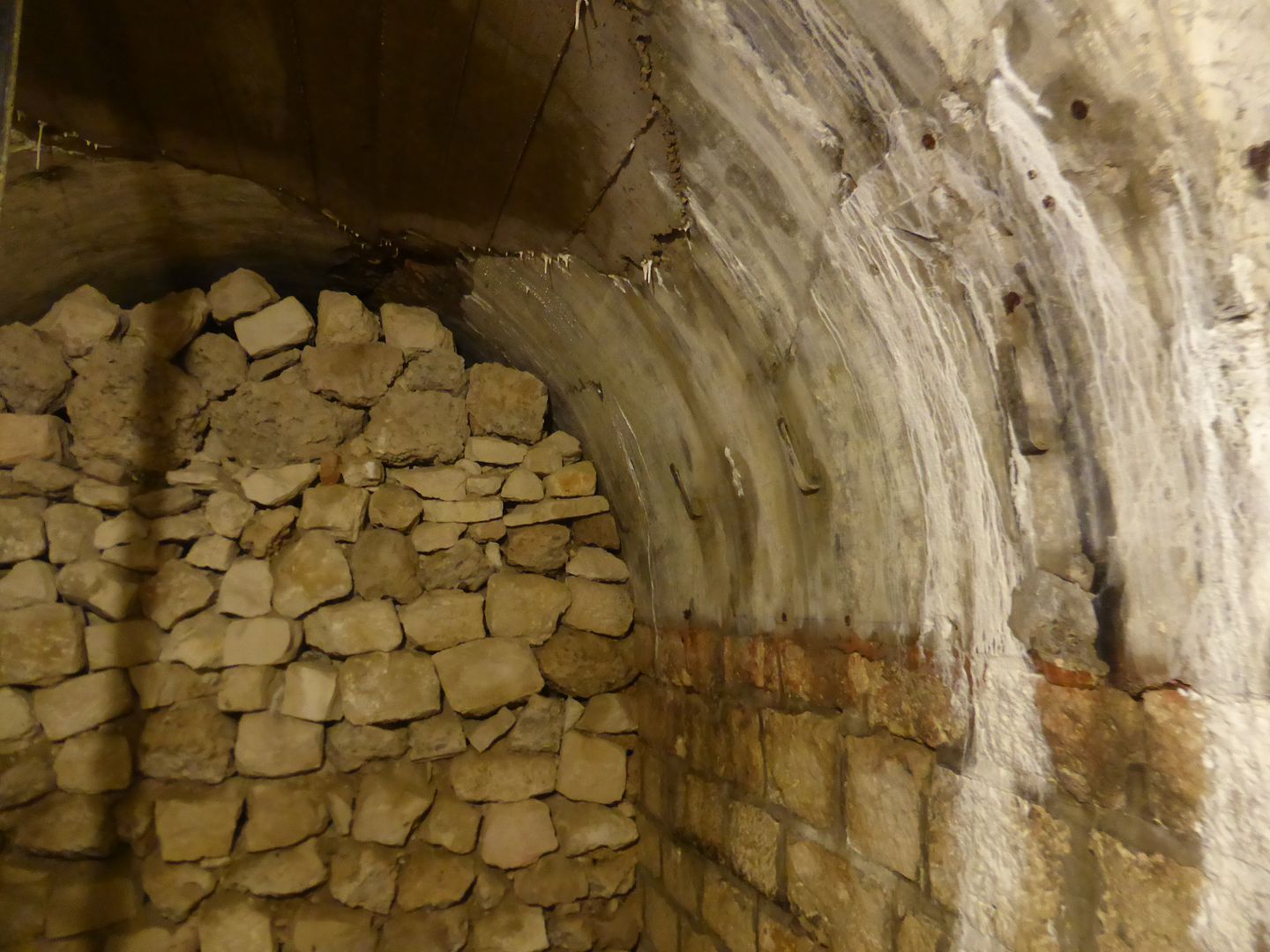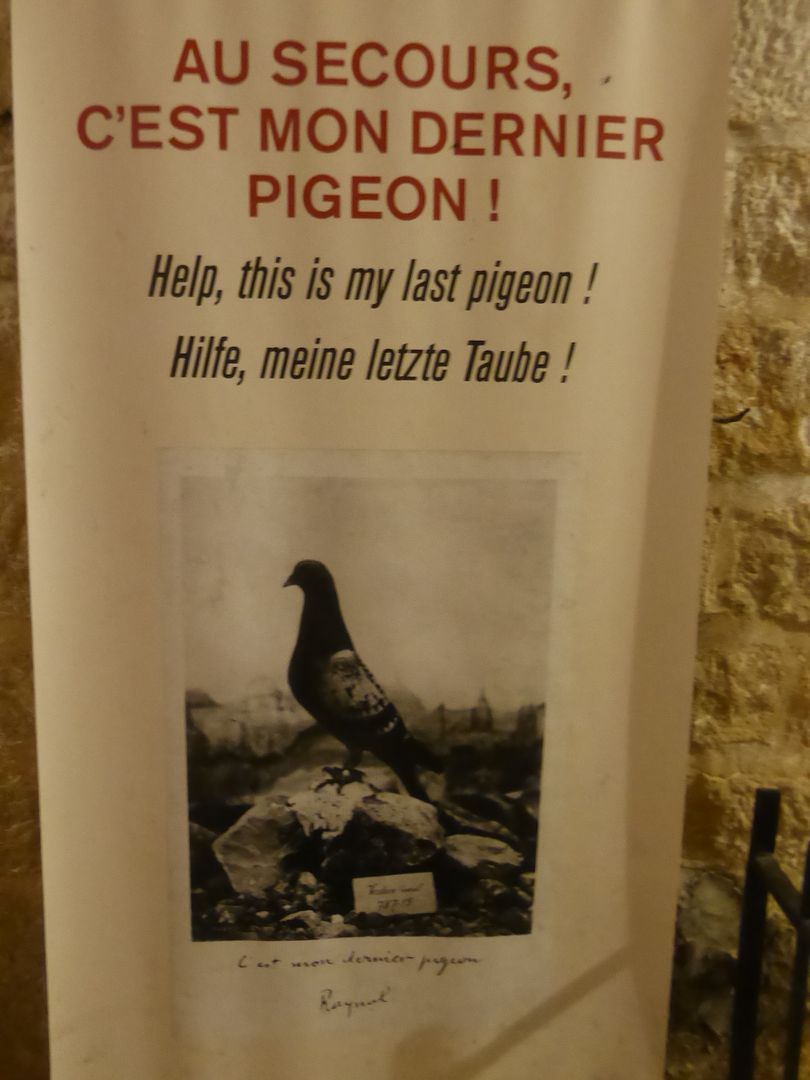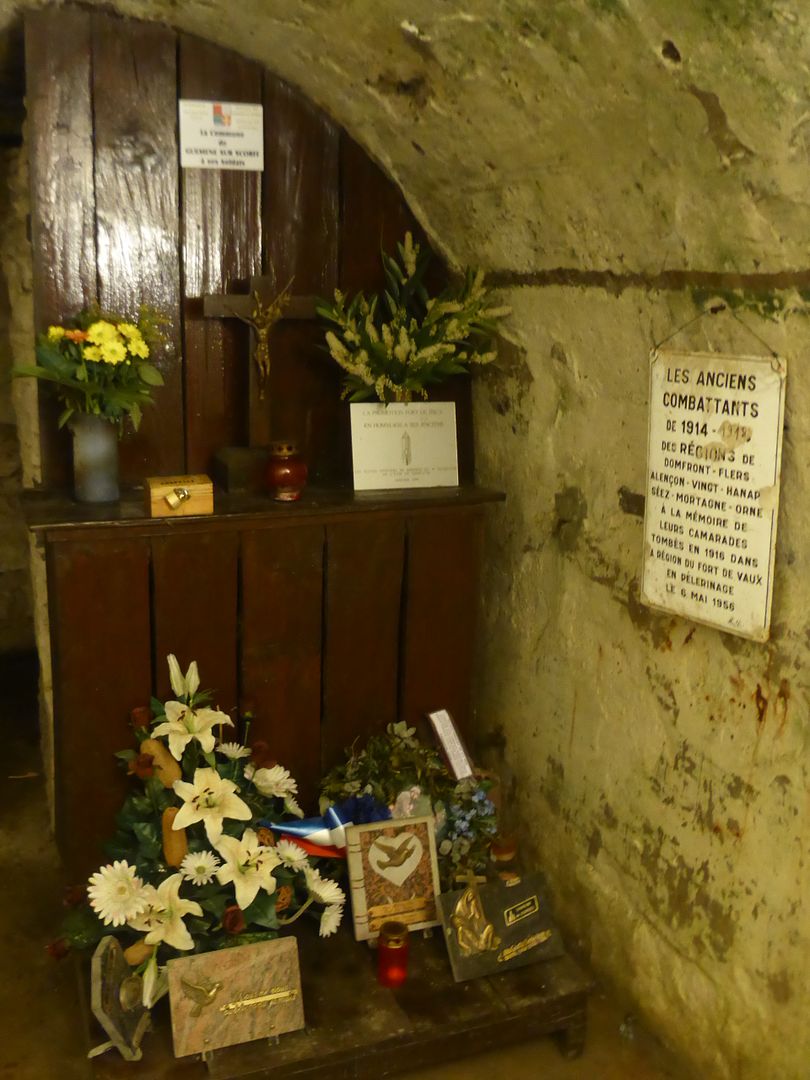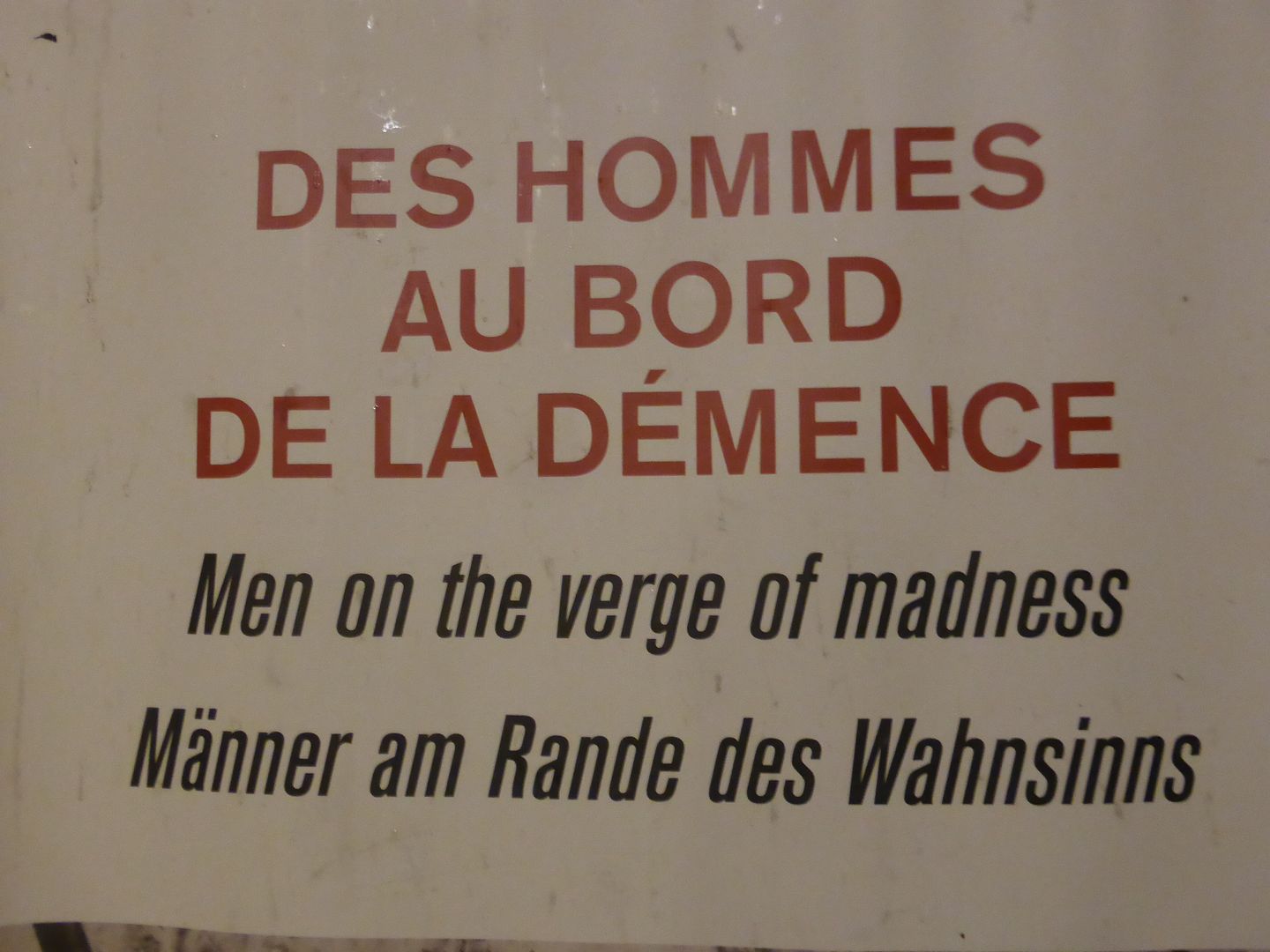|
|
Post by Deleted on May 20, 2016 21:46:43 GMT
Ever since I was a child, I was taken to Verdun, which was a regional attraction for my family. As an adult, I have continued to return there compulsively. The huge amount of blood soaked into the ground is a magnet, like it or not. During the Great War, my grandfather was taken prisoner almost immediately since his village was a border town between France and German Moselle. From all reports, he had a very pleasant time working on a farm somewhere or other in Germany, so he was incredibly lucky compared to most of the other people in his age group in France at that time. He was 21 years old in 1914 so it must have been like winning the lottery in terms of 4 years of security. Meanwhile, my grandmother was driven from her village in the Vosges and ended up in Brussels as a military barber, so she was out of harm's way as well. I have always tried to imagine the scene of her cutting soldiers' hair, but I just draw a blank. In their region, all hell broke loose for the next 4 years albeit about 50 kilometres to the west. I had never really thought of it that way, but the fact that my grandfather's village instantly fell into German hands was one of the luckiest things that could have happened. In the region of Verdun, just about all of the villages were wiped from the face of the earth. Many were rebuilt but six of them exist virtually by government decree and are just a jumble of stones with zero inhabitants. |
|
|
|
Post by Deleted on May 20, 2016 21:57:32 GMT
|
|
|
|
Post by htmb on May 20, 2016 23:42:39 GMT
You know, we studied about WWI in school, and one of my grandfathers fought in France somewhere, but until hearing your reporting of stories, seeing your photographs, and visiting a few of the areas in person, I'm ashamed to say it was always such an abstract idea to me.
|
|
|
|
Post by Deleted on May 21, 2016 3:56:23 GMT
|
|
|
|
Post by Deleted on May 21, 2016 4:03:50 GMT
|
|
|
|
Post by bixaorellana on May 21, 2016 5:14:06 GMT
Grimly appropriate that you were stopped in your quest by the mud.
Beautiful presentation, but a sobering thread. Htmb's comment caused me to wander away from the thread to go look at the information I have on my grandfathers, both of whom were in France for WWI. I re-read a letter home wherein my grandfather talks about his younger brother being stationed nearby and also about the "little stranger" he and his wife were expecting. That was my father, who wound up in active duty in three later wars.
|
|
|
|
Post by Deleted on May 21, 2016 6:10:57 GMT
Here is a quite edifying video to which Bixa drew my attention.
More soon... |
|
|
|
Post by Deleted on May 21, 2016 10:45:32 GMT
The ground was covered with medicinal plantain. Was it here during the war? It is used to disinfect wounds and speed healing. It would certainly have been useful. 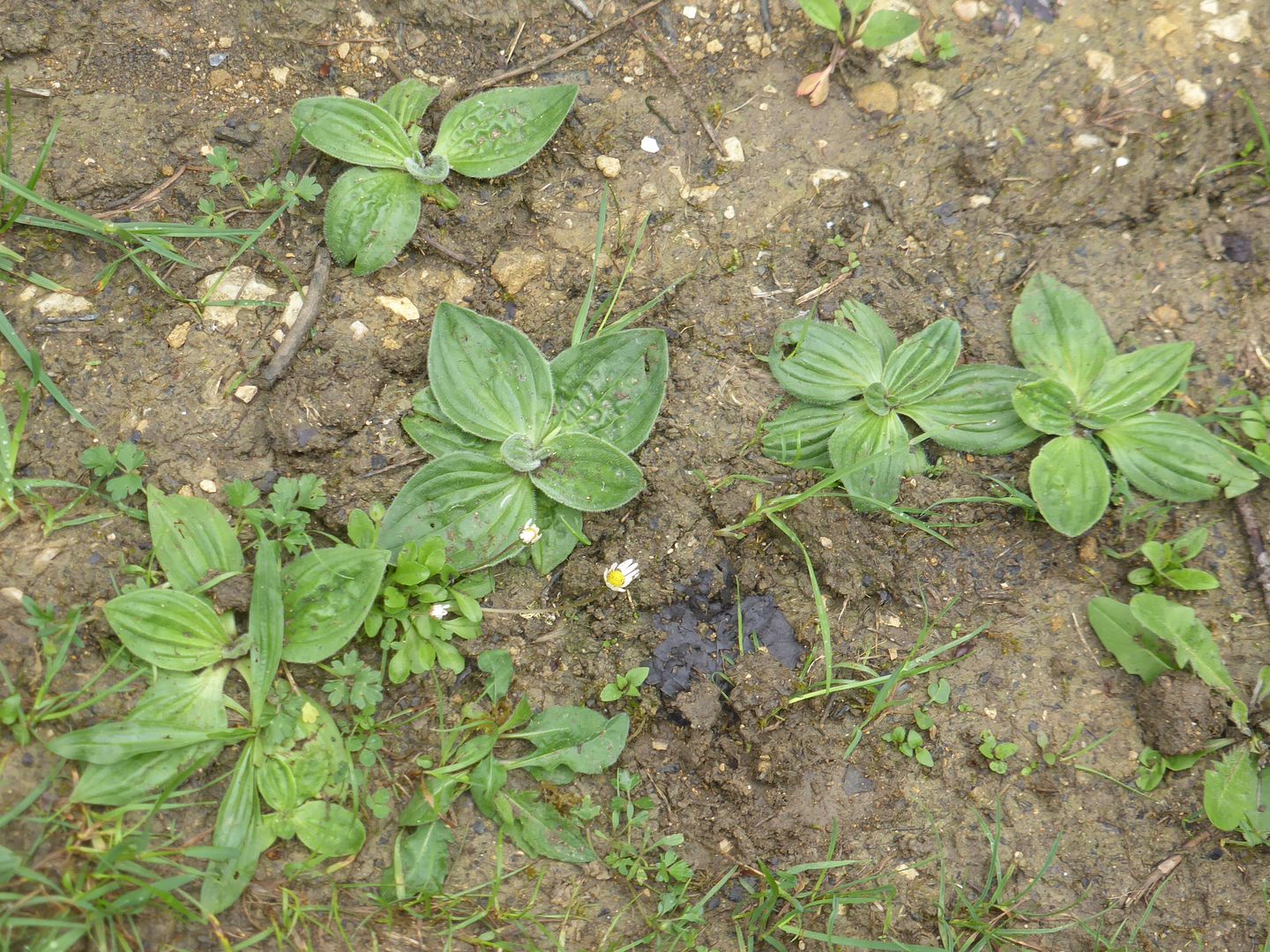 I went on to the Fort de Vaux, which saw some of the worst combat in the battle of Verdun. It is being spiffed up a bit for the VIPs next week. 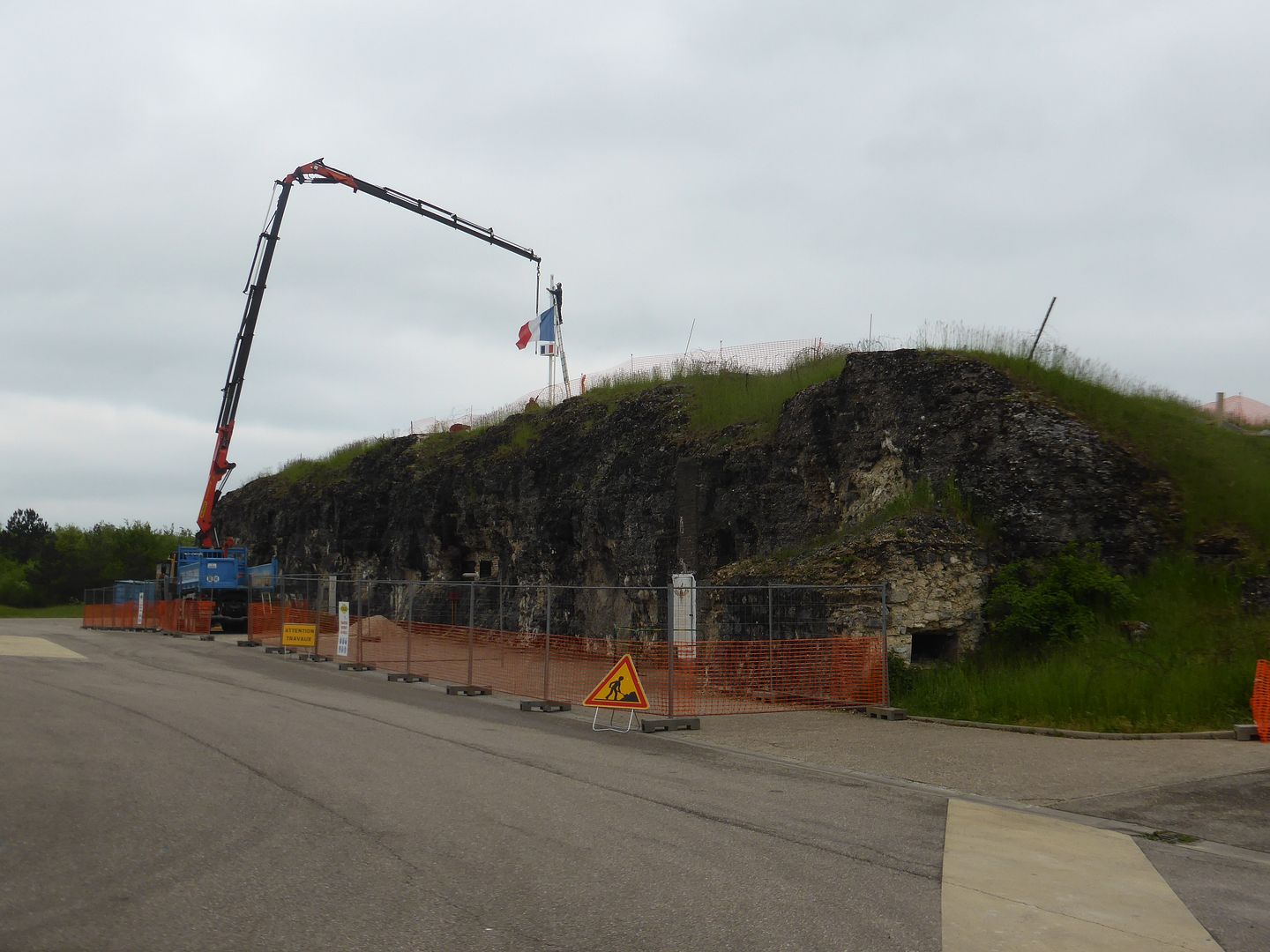 A new flagpole was being installed. 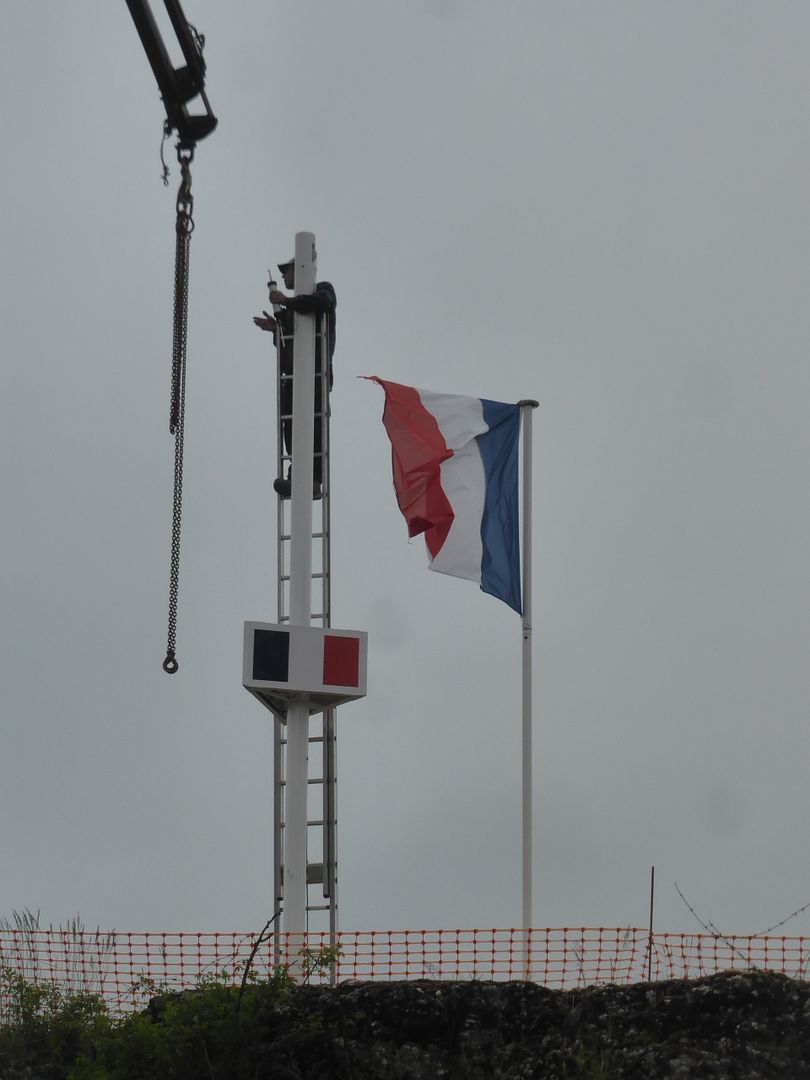 I decided to visit, not having been inside since I was six years old. 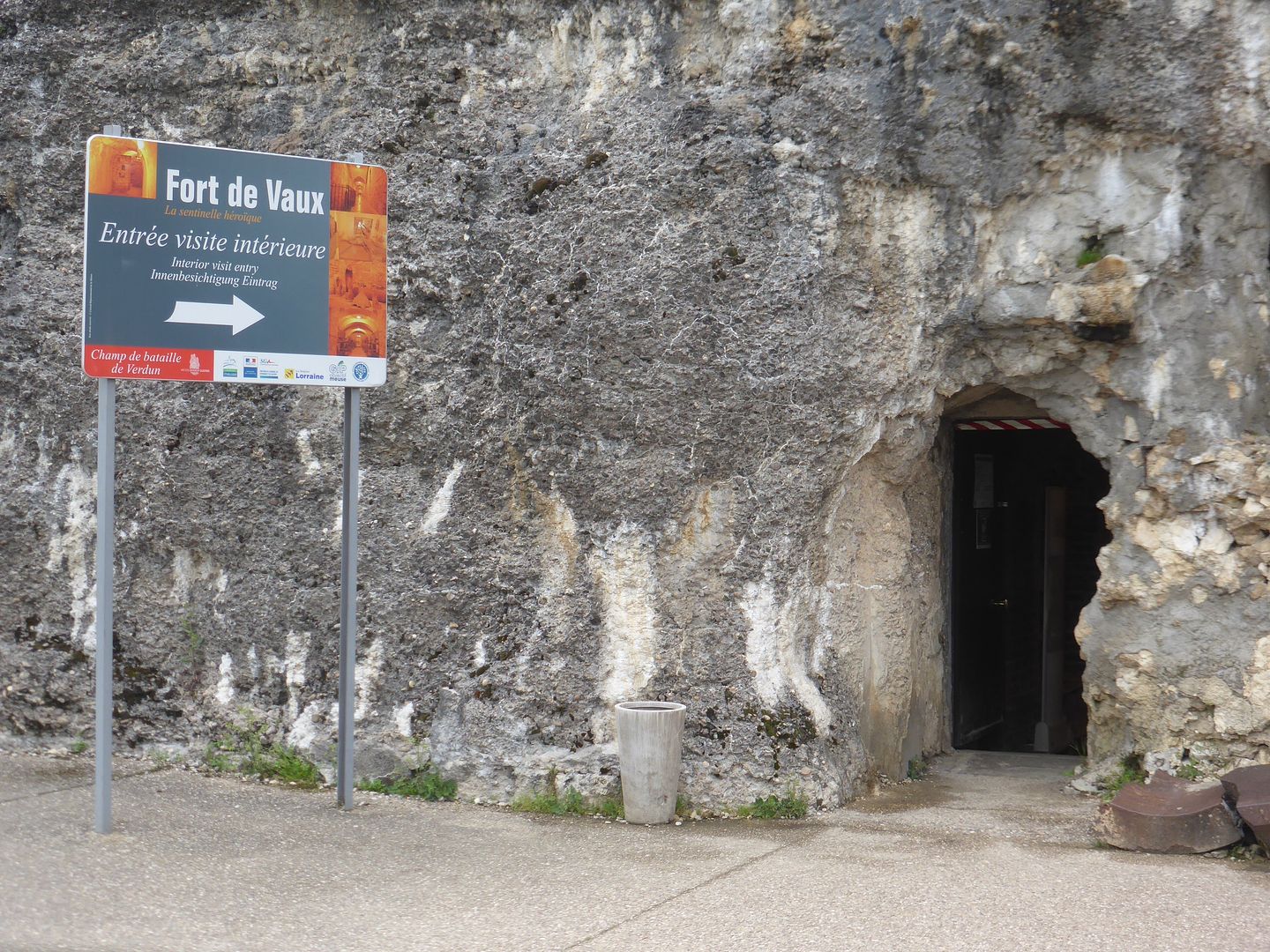 The first chamber just has a few artifacts from the war. 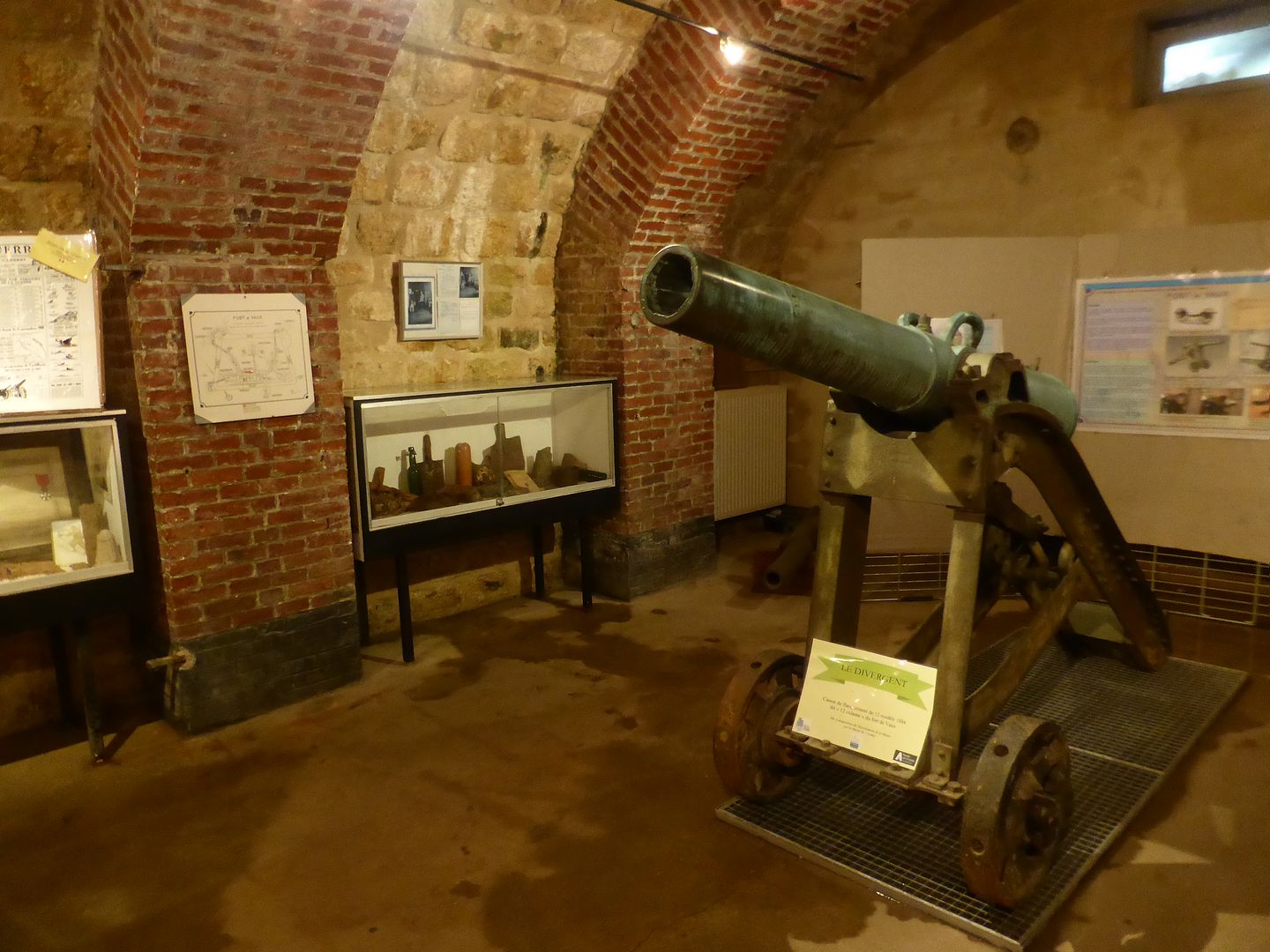 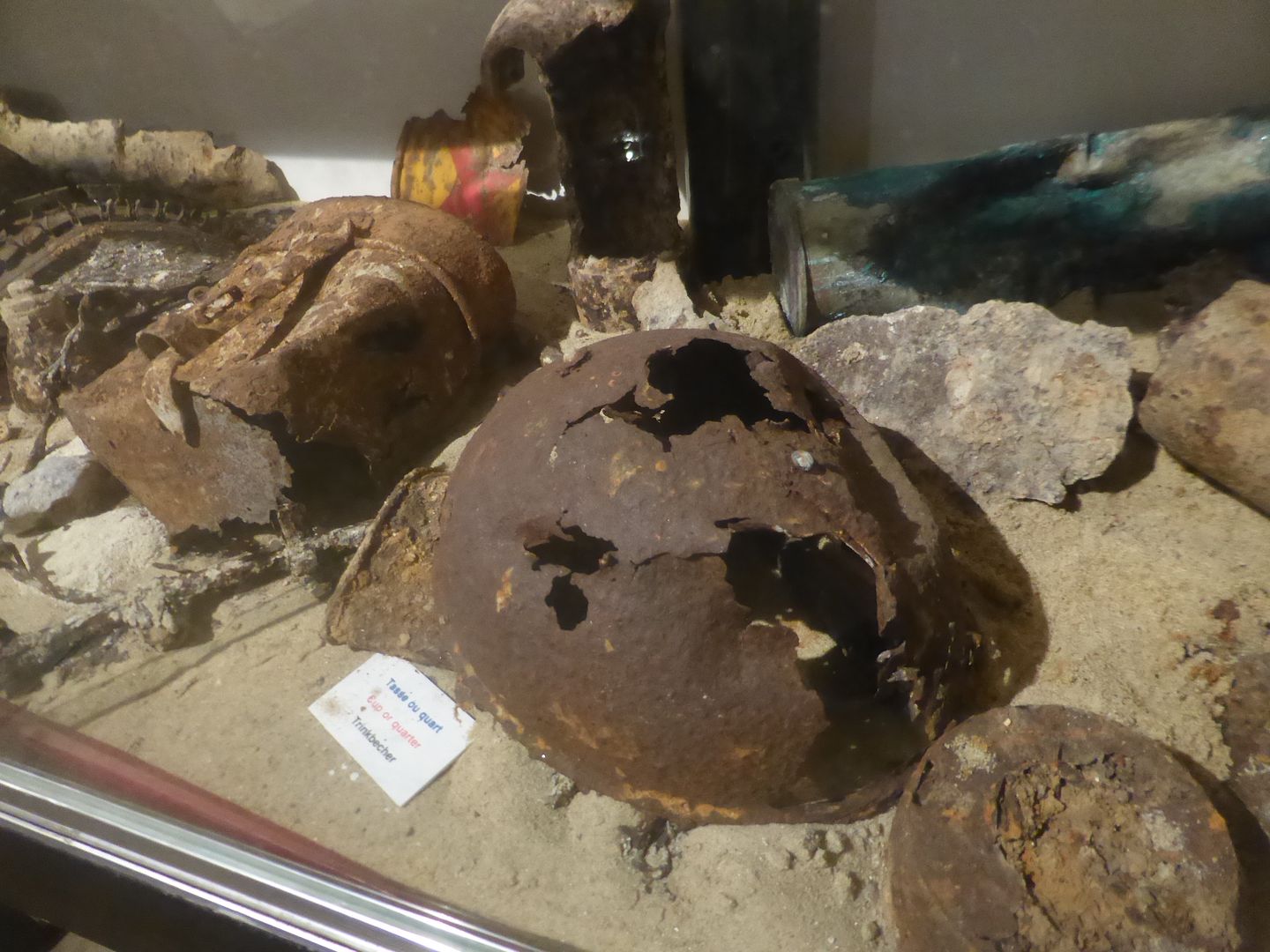 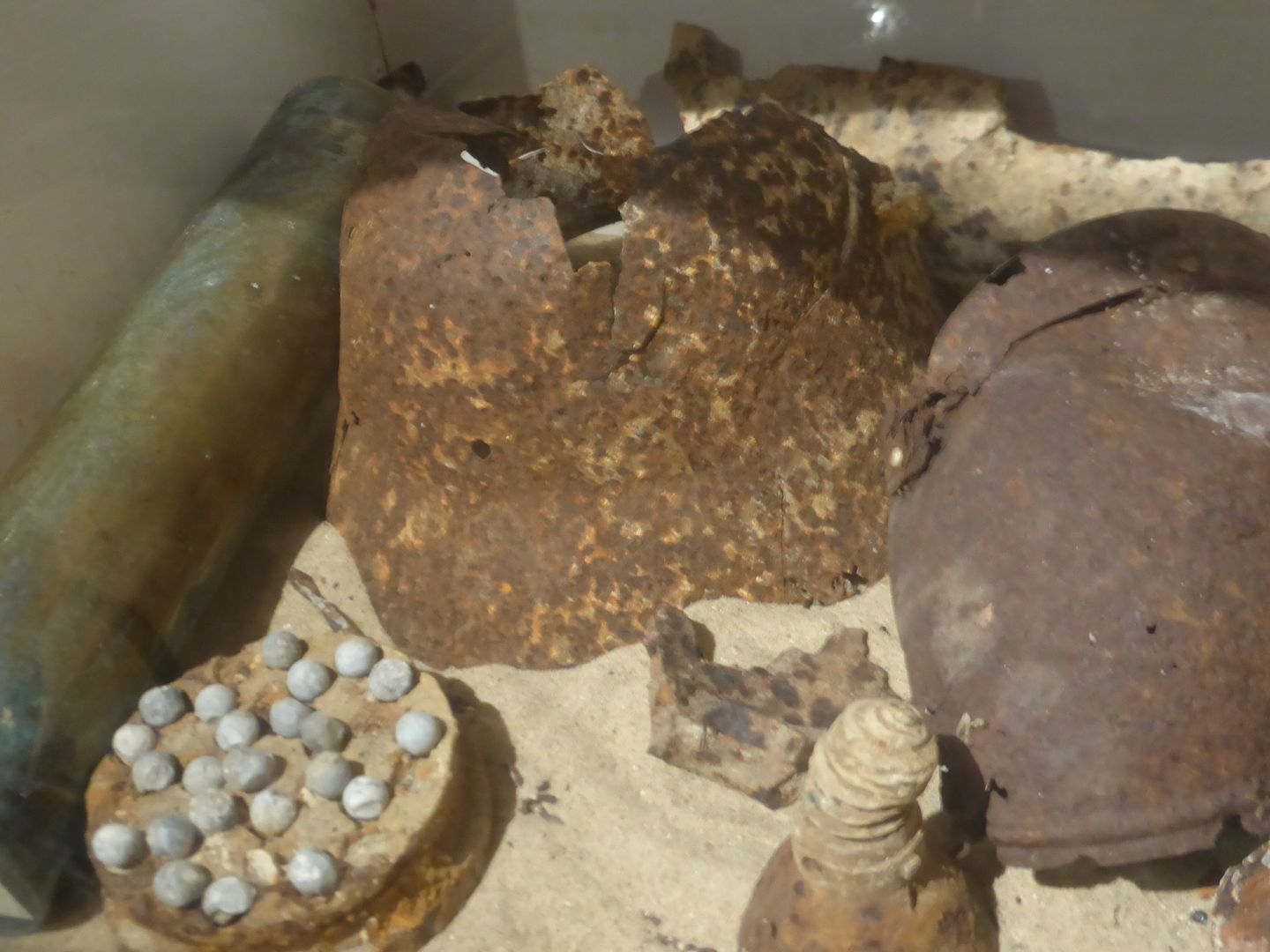 Then it was time to go down the dripping, cold corridors. 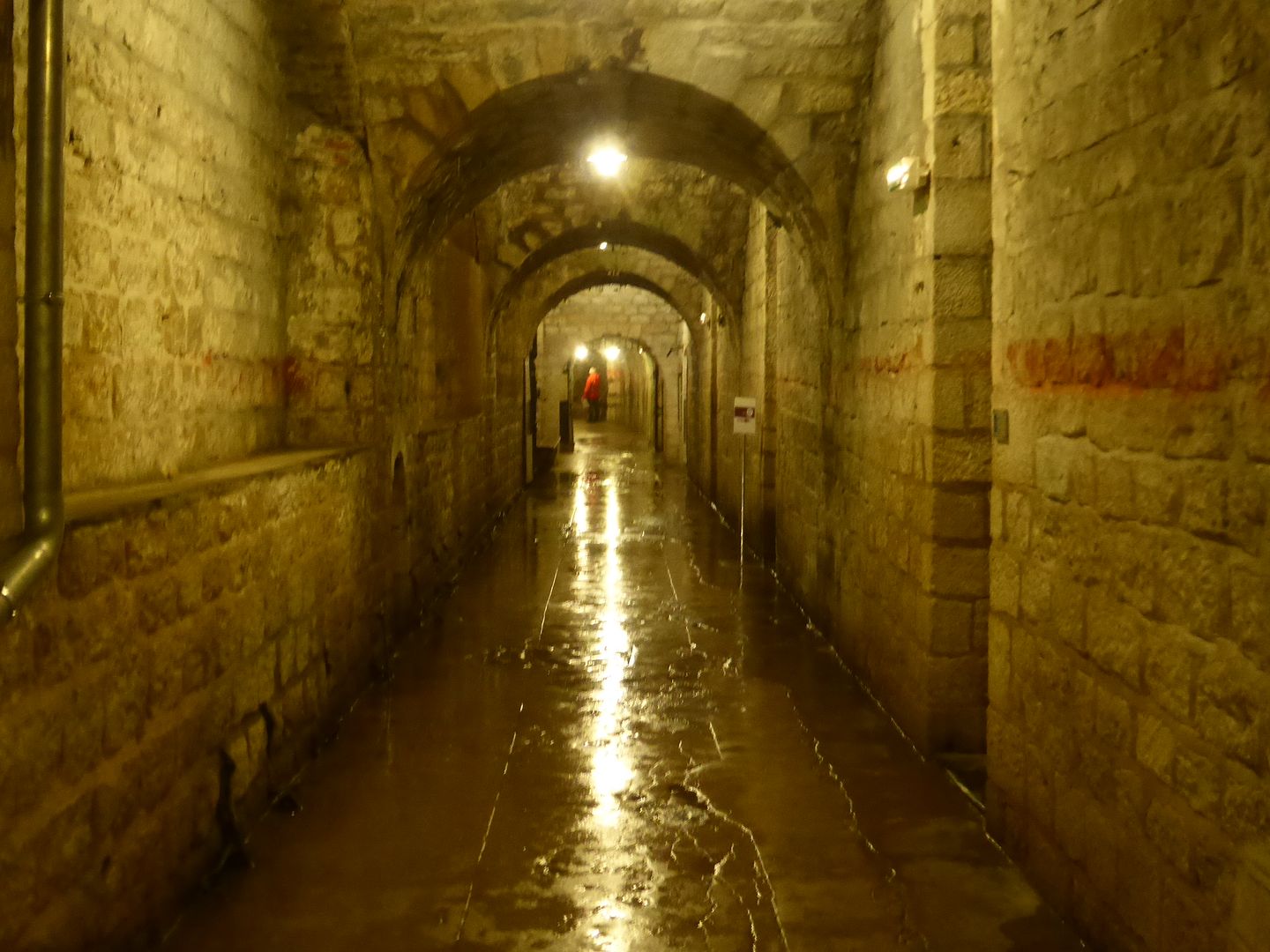 This was a barracks room. The platforms were wide, so the troops must have had to sleep at least two per platform. A hundred times better than sleeping in the trenches! 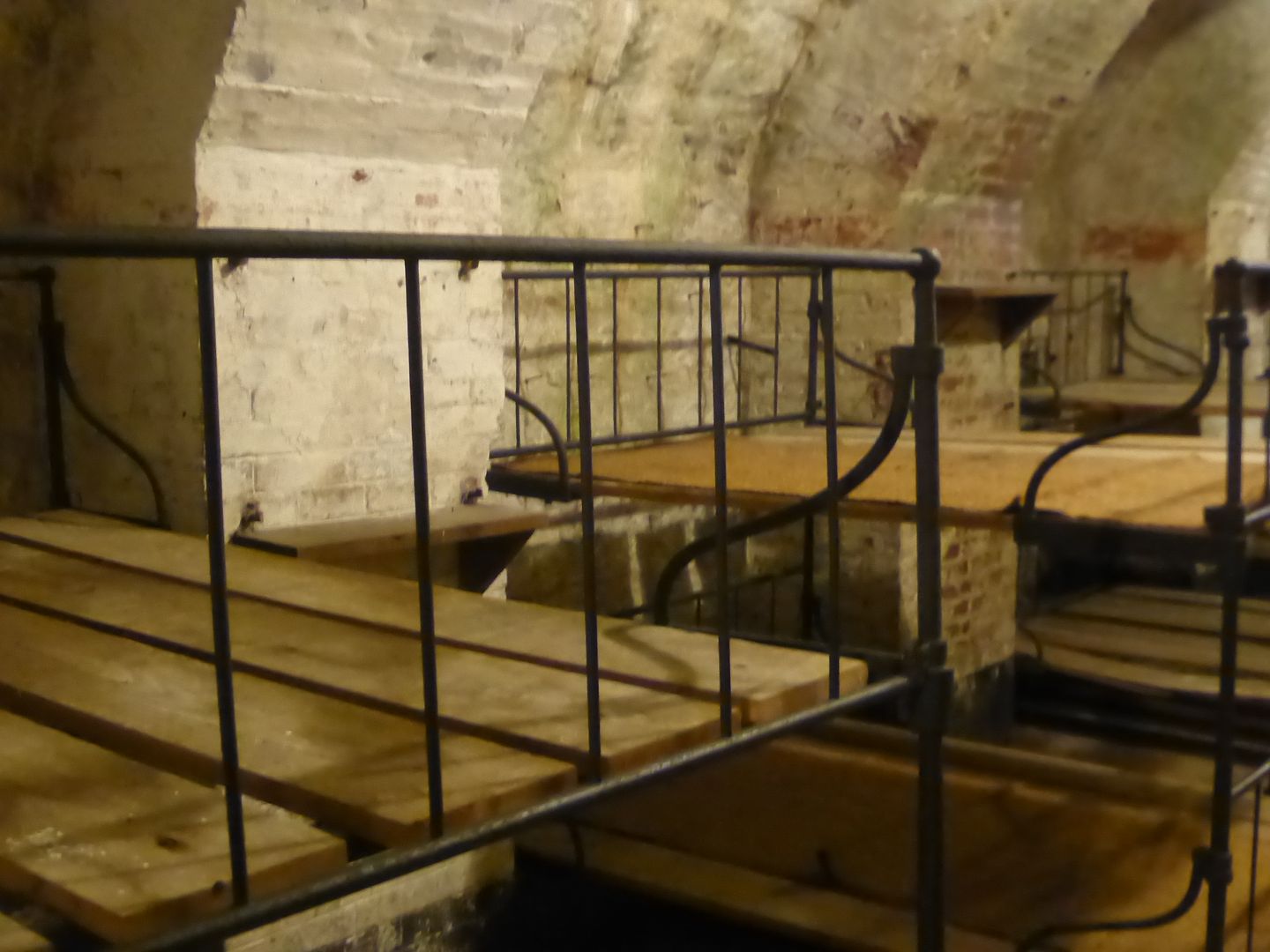 This tells about the requisitioning of all of the horses and mules since they were military equipment. The vast majority were never seen again. 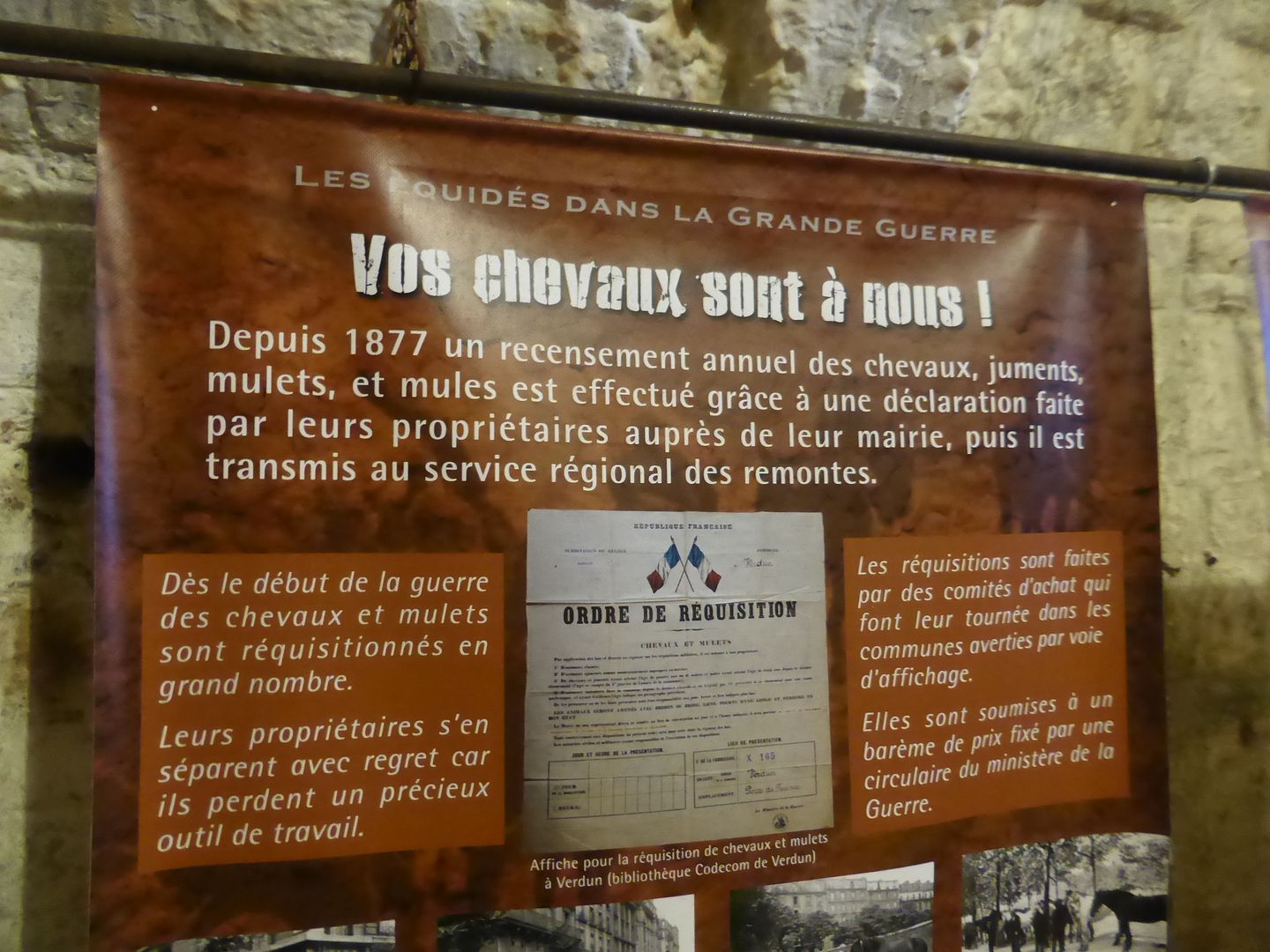 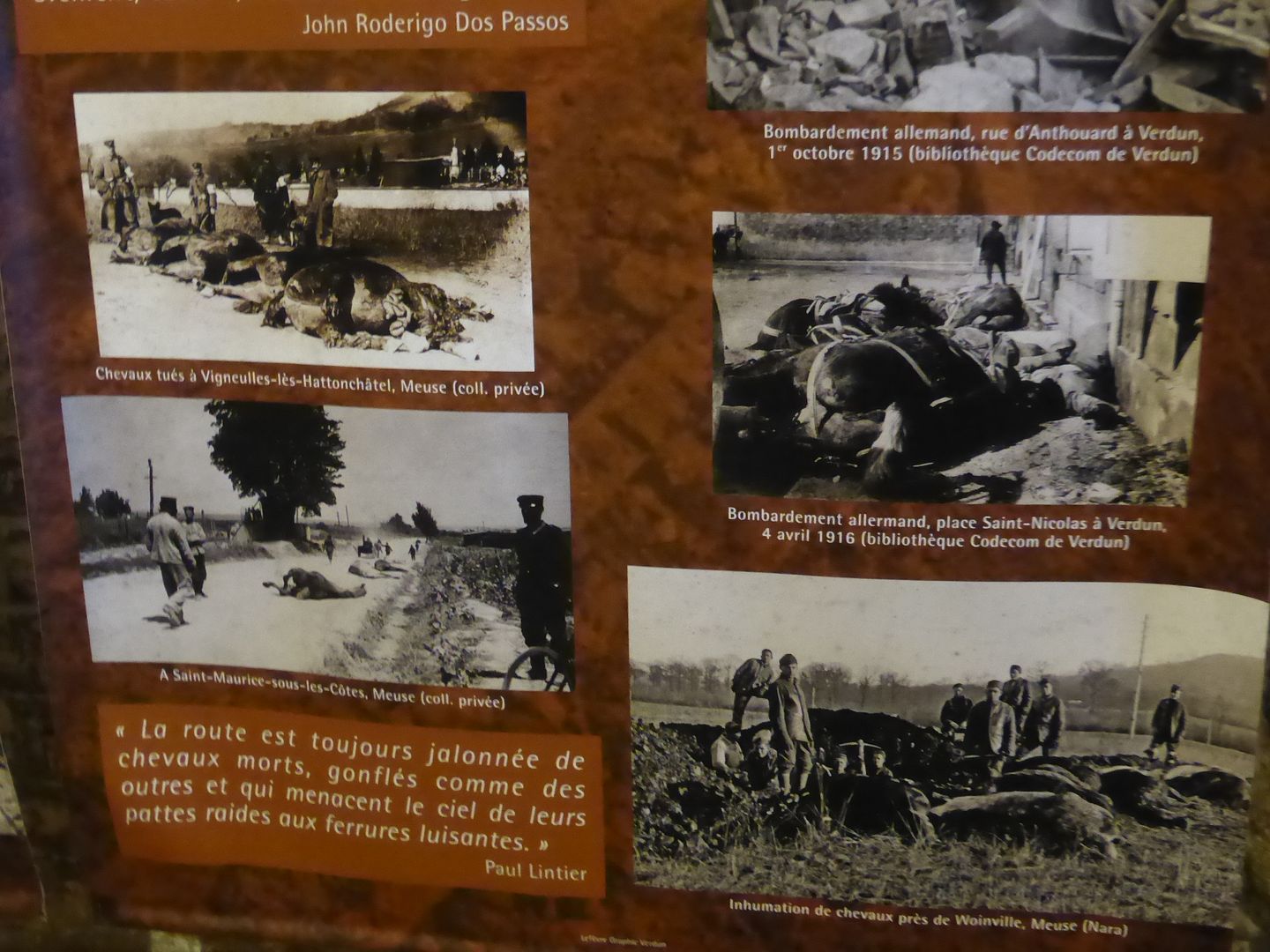 Brittania to the rescue! 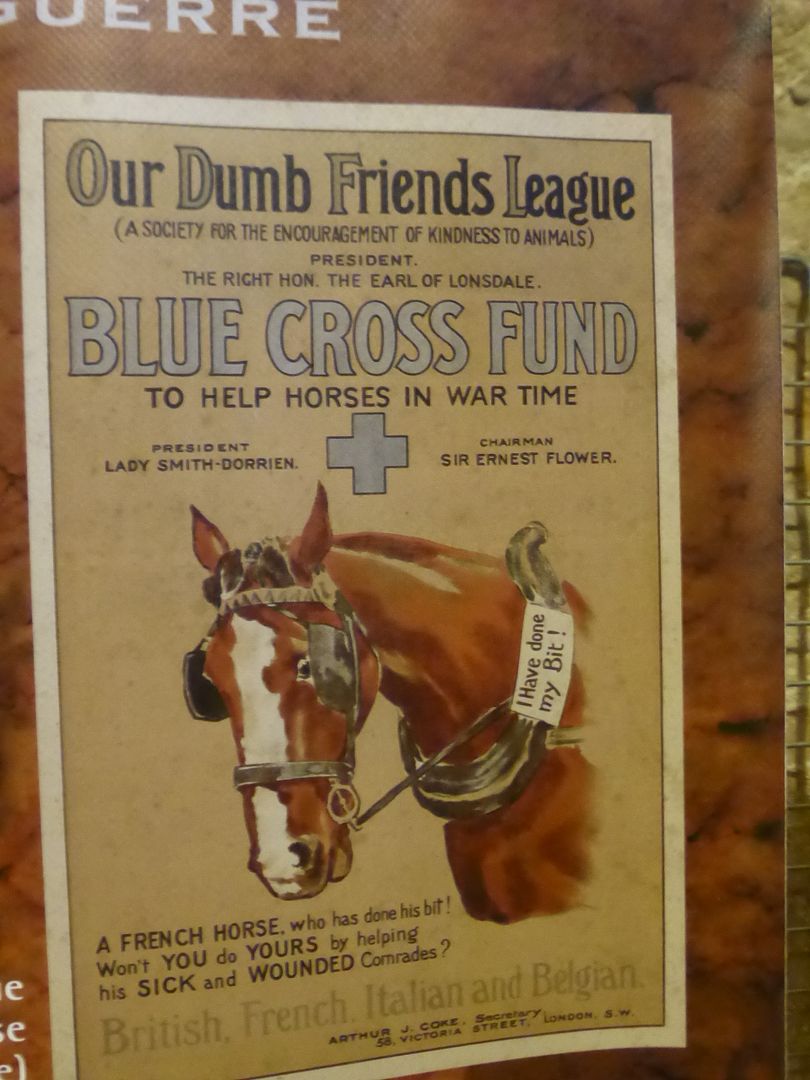 |
|
|
|
Post by Deleted on May 21, 2016 11:05:12 GMT
At times, the fort was partially held by German troops, who tried to burn out the French with flame throwers. Protective barriers were quickly built, but the French were trapped on the lower levels without water. They had to drink their own urine before they finally surrendered. One or two levels up and they could have easily just licked the walls. One detail that we tend to forget is just just about everything was in pitch darkness. One oil lantern every hundred metres, rats running through the corridors, bayonet fights lit only by the flashes of the shooting rifles. |
|
|
|
Post by mossie on May 21, 2016 13:05:22 GMT
Men on the verge of madness. That sums it all up.
Having said that your pictures from underground took me straight back to school.
In my secondary school in Canterbury, we had a concrete tunnel under the playground where we had to take shelter during air raids. Damp and claustrophobic, how soldiers survived and kept their sanity is past my comprehension.
|
|
|
|
Post by bixaorellana on May 21, 2016 15:01:24 GMT
This is very upsetting to view, I imagine even more so to actually visit. How so many men came out of that experience and went on to lead normal, sane lives is hard to feature. In Sebastian Faulk's novel Birdsong, a veteran of the Great War is portrayed as mostly silent, with the comment that so many veterans were that way. Reading descriptions of trench warfare makes that silence completely understandable.
This is from the Wikipedia entry on the Battle of Verdun: ... Fort Vaux at the north-east extremity of the French line, ... had been bombarded by c. 8,000 shells a day since the beginning of the offensive. After a final assault on 1 June, by c. 10,000 German troops, the top of the fort was occupied on 2 June. Fighting went on underground until the garrison ran out of water and surrendered on 7 June. In five days the German attack had advanced 65 metres (71 yd) for a loss of 2,700 killed against 20 French casualties.
"Fighting went on underground" !! for five days! Pure horror.
|
|
|
|
Post by Deleted on May 21, 2016 15:50:34 GMT
Yes, and as I wrote: in the dark.
|
|
|
|
Post by Deleted on May 22, 2016 4:18:30 GMT
The last thing to see in the fort were some weapons that were not even present during the war -- they had been removed and sent elsewhere. 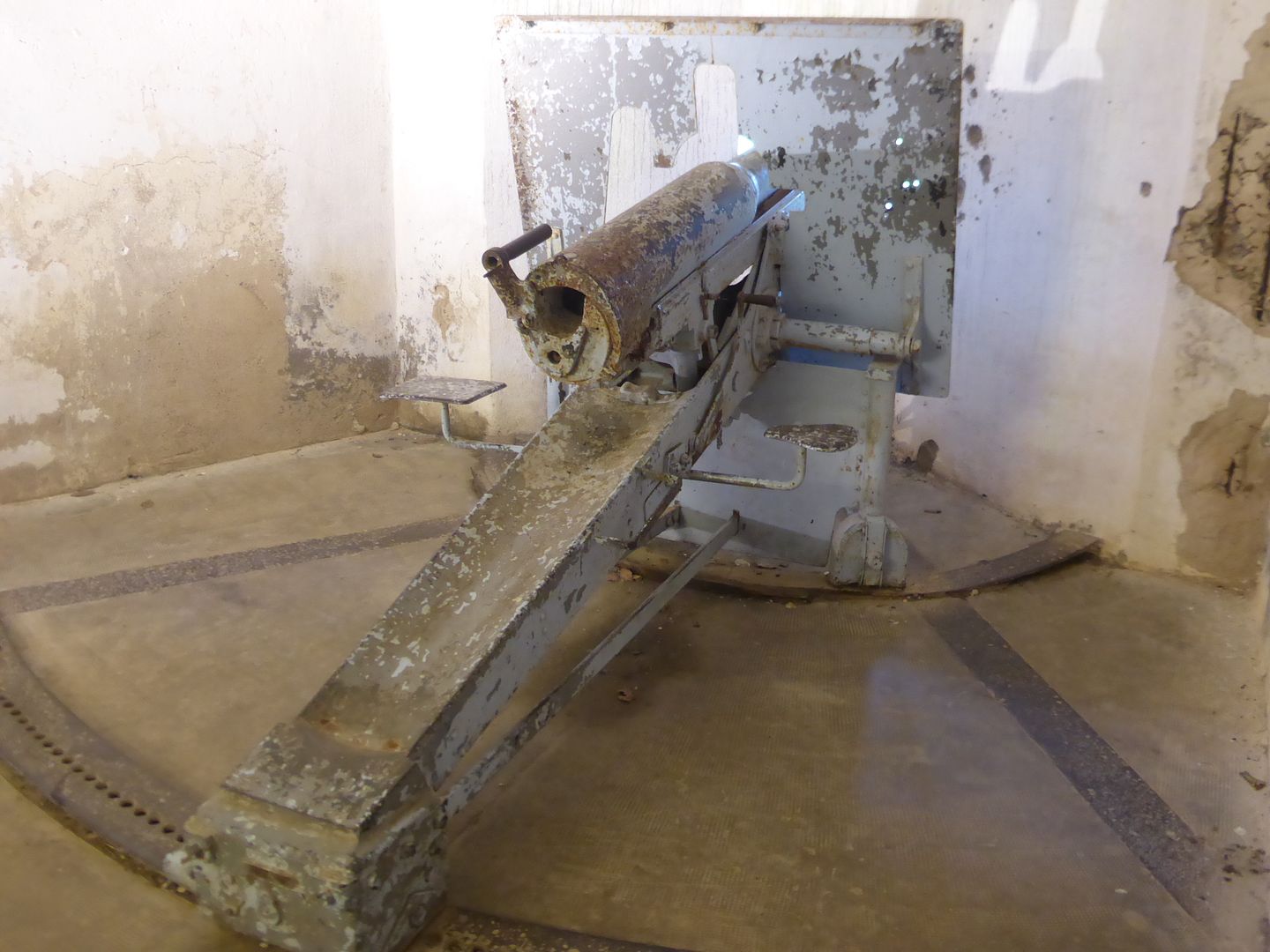 Outdoors the workers had quite a few things to finish up before May 29. 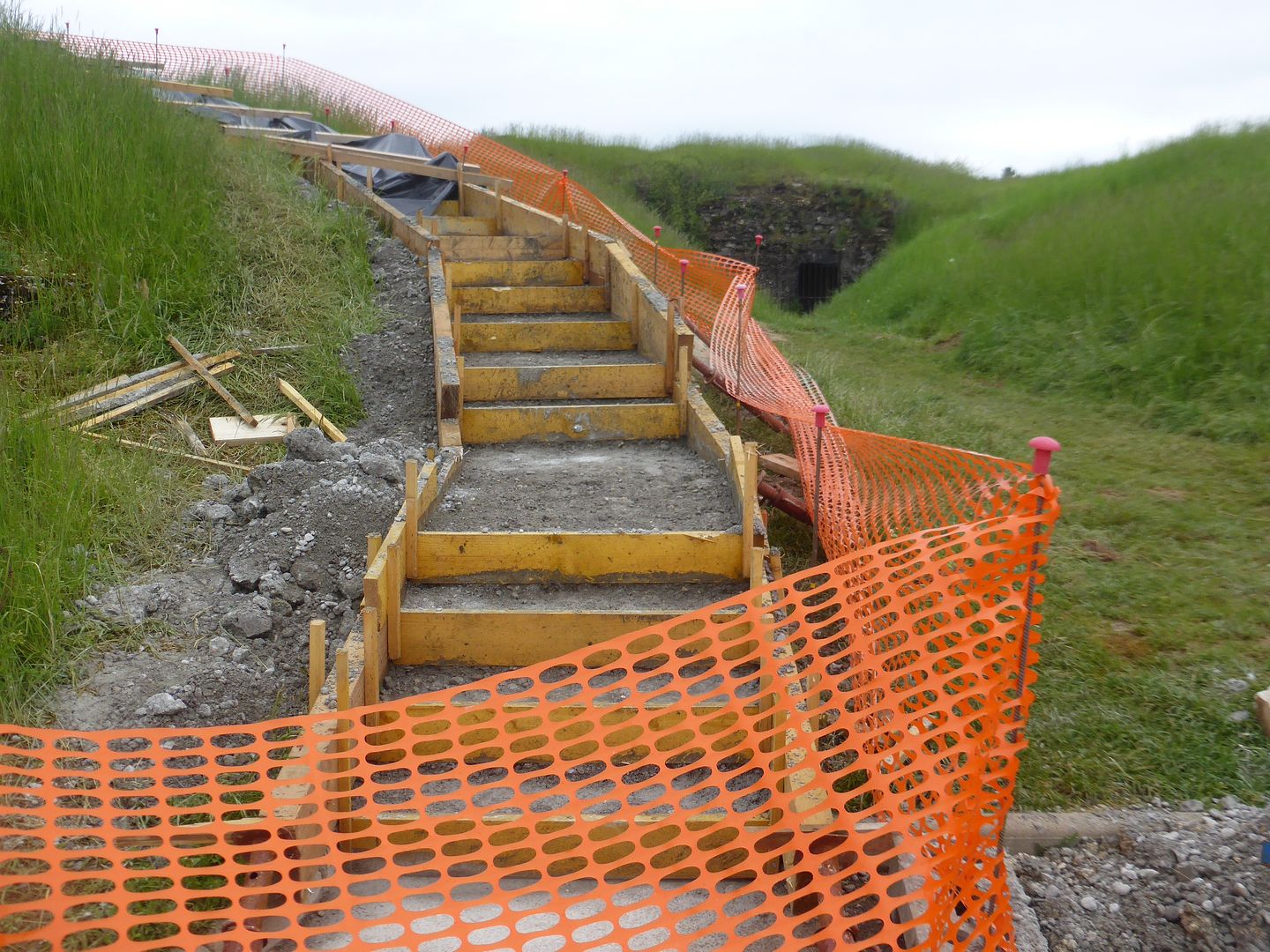 The woods in the area look like a paradise now since they will be left in peace forever. 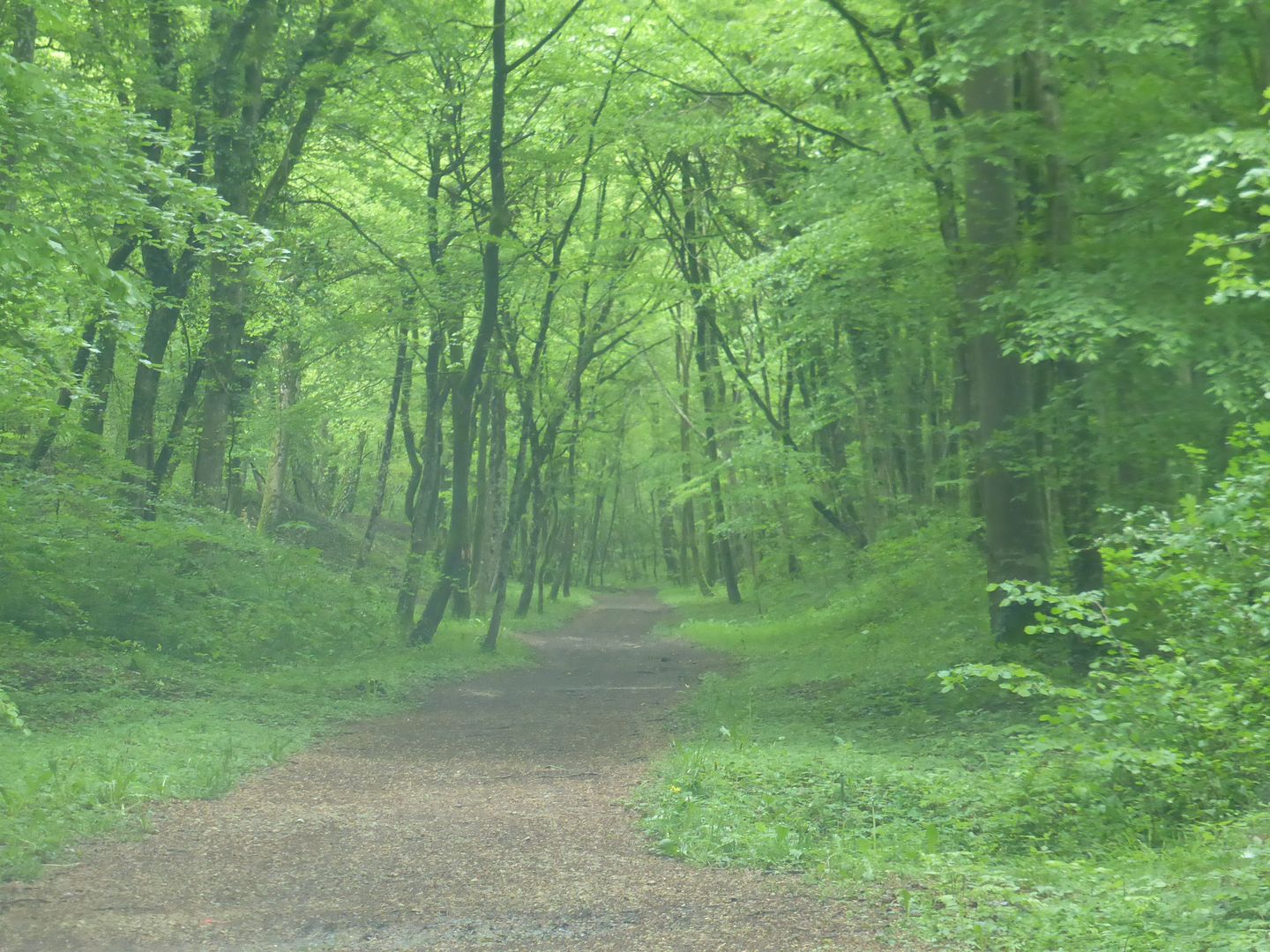 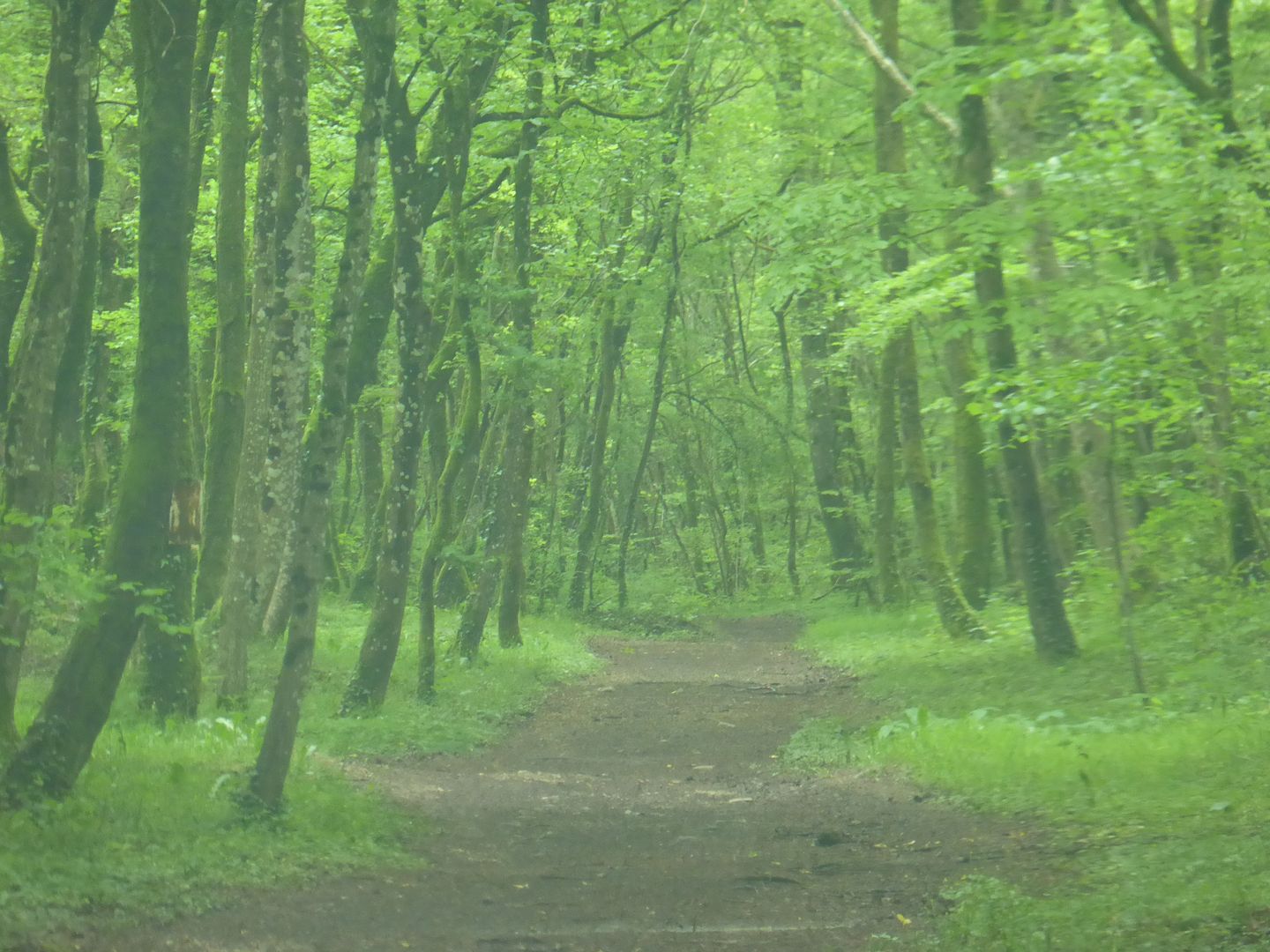 On my way back to the autoroute, I passed vestiges of one of the destroyed villages. 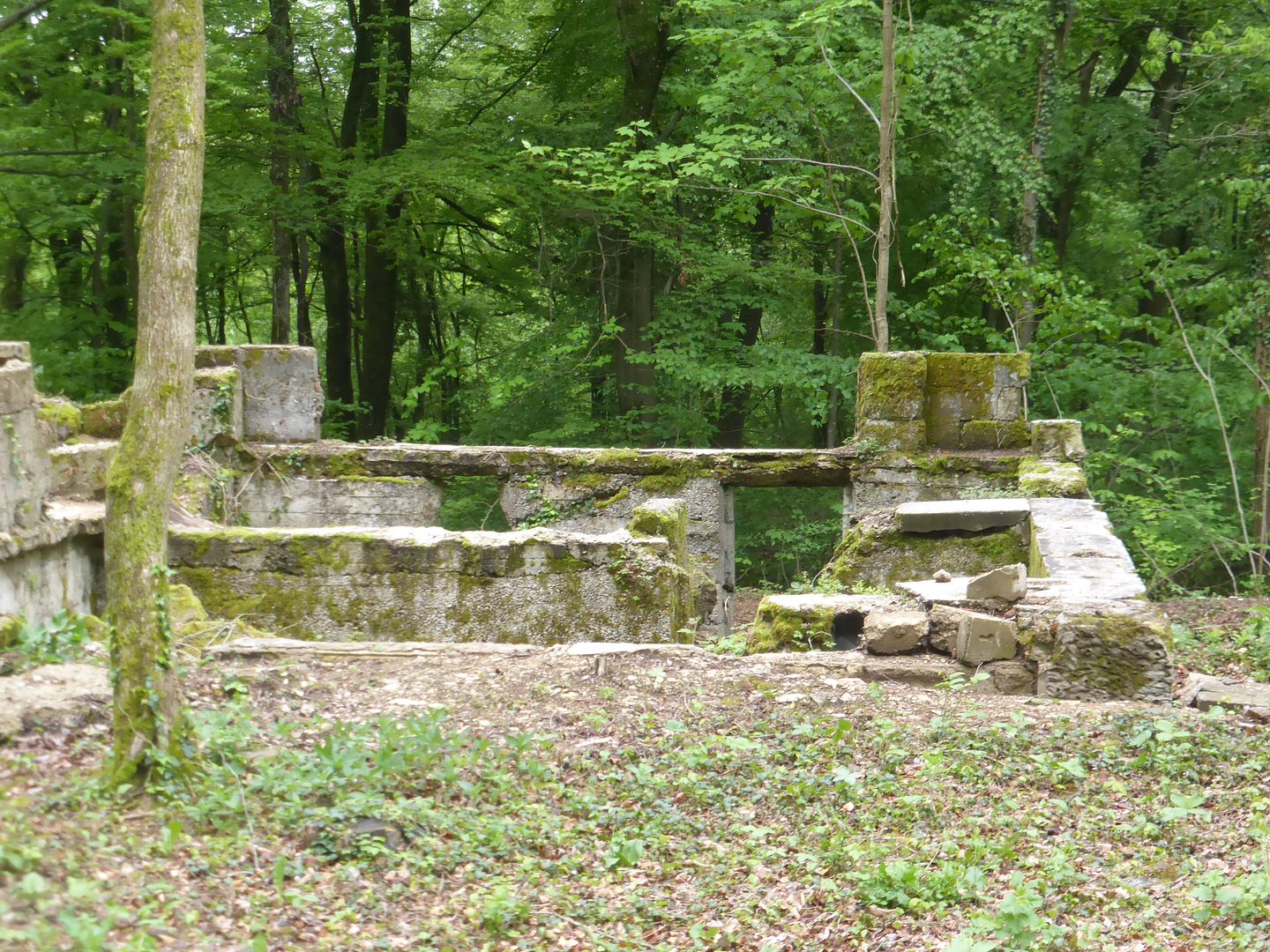 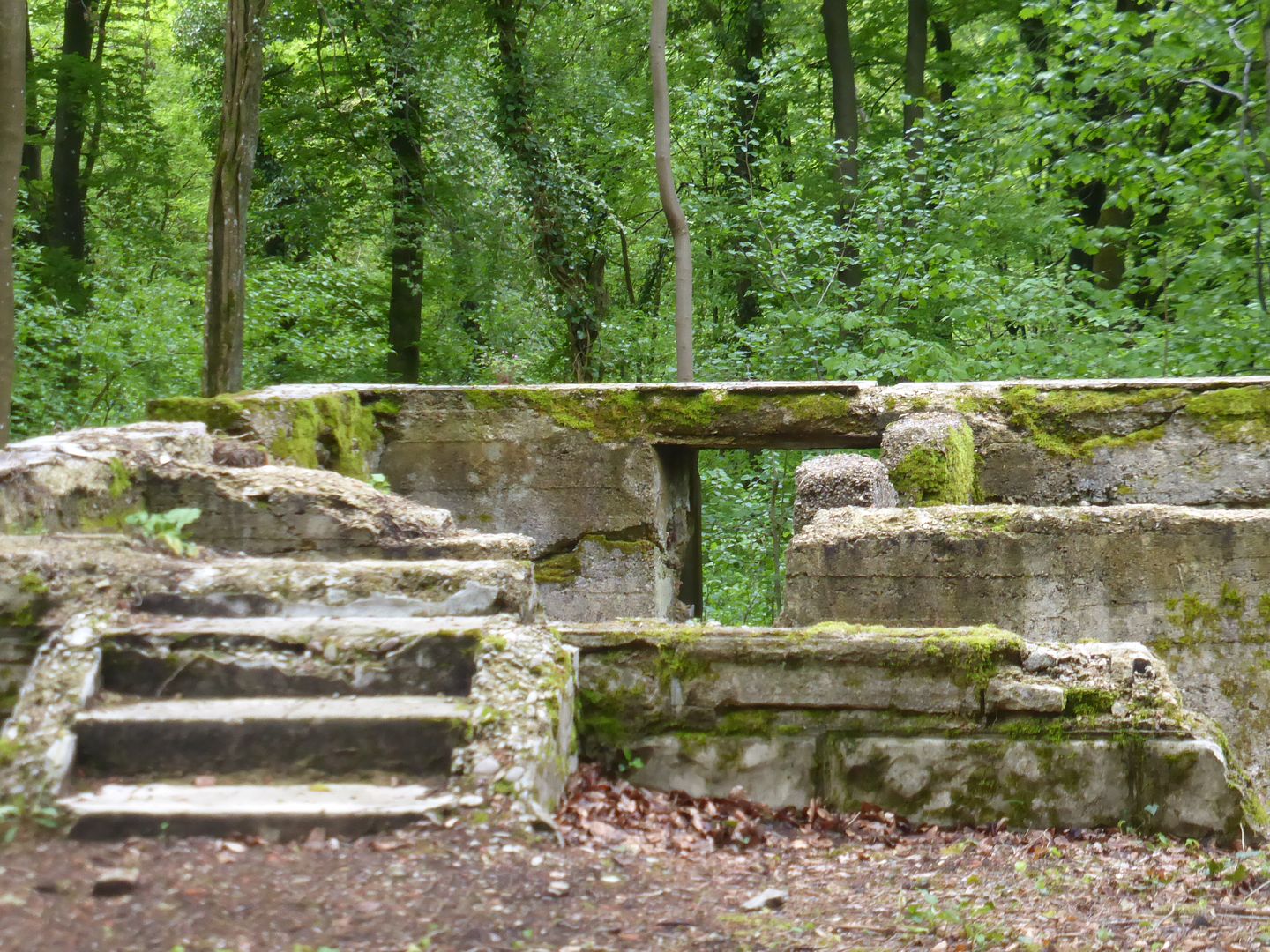 And back on the autoroute, there were plenty of places to show the reason for 21st century wars. 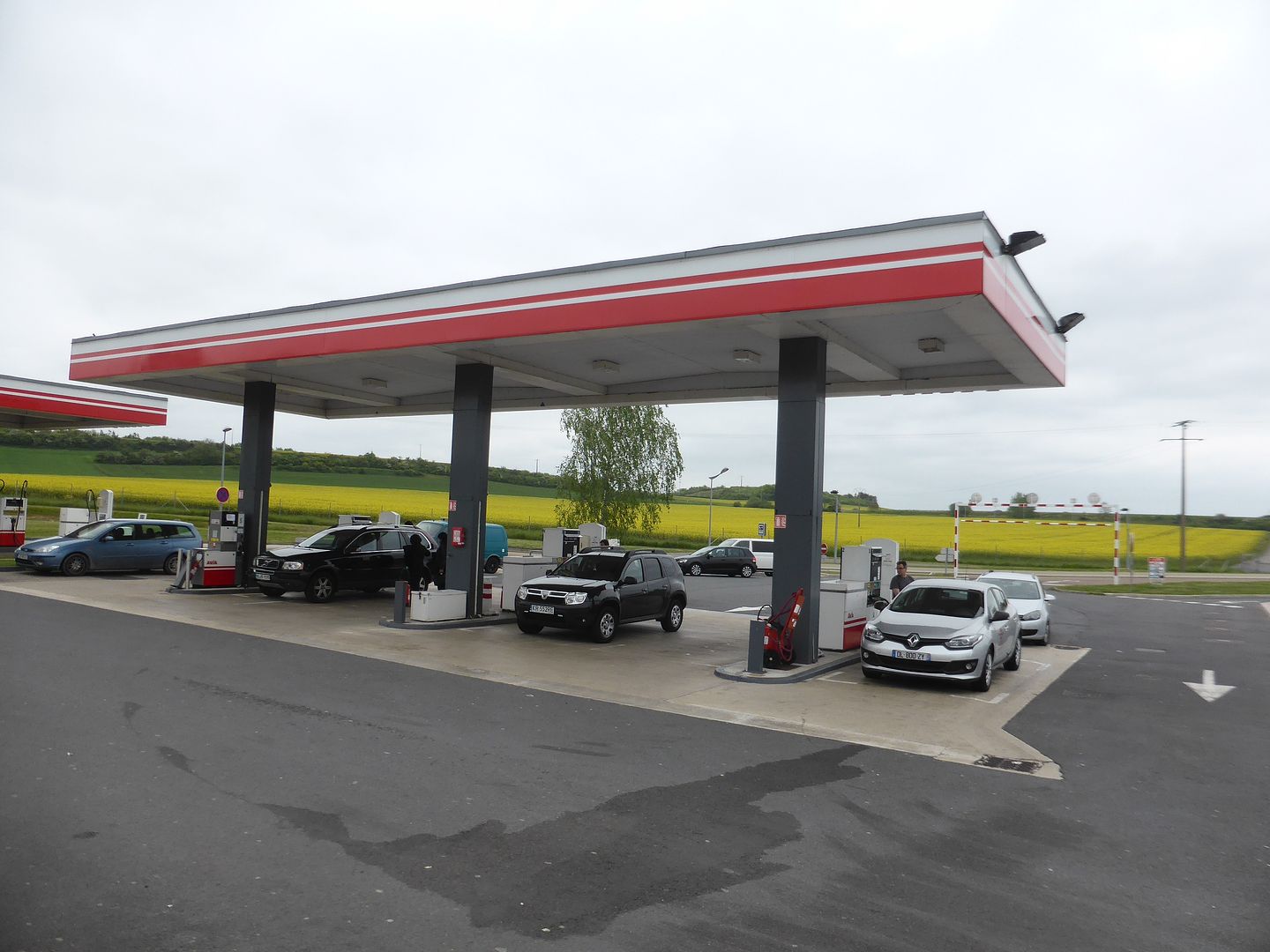 Back to Paris... |
|
|
|
Post by bixaorellana on May 22, 2016 5:05:55 GMT
This was such an illuminating and moving report -- thank you!
Those ghostly yet peaceful woods seem more a more appropriate memorial than any grand chapel or monument could ever be.
|
|
|
|
Post by Deleted on May 23, 2016 5:53:27 GMT
I admit that I have a visceral passion for the area due my French family, which is sprinkled all through the region. Luckily for them, they were just displaced during the various wars rather than being caught in the crossfire but returning to partially destroyed villages and finding that one's home had been looted still left a mark on them. One thing that has been impressed on my all of my life is how little the borders have always mattered in this region because the people are all the same whether they are French, German, Walloon or from Luxembourg. They have the same lifestyle and the same aspirations. One of my great grandmothers was born in German Alsace, and things like that have always been normal. In my grandparents' village, several of the villagers had German wives (usually met during their military service in Germany), and on summer weekends you could see a half dozen German licence plates on visiting cars during family get togethers. Basically, none of these people have ever been at war with each other, because the wars were decided in Paris and Berlin, and Lorraine was chosen as one of their favourite battlefields. For centuries, the people didn't even know who was in charge of their area. Things became much more precise starting with the war of 1870 when the German Empire annexed most of Alsace and Moselle. The Battle of Gravelotte was held a grand total of 11 kilometres from my grandparents' village, and their village became a border town. The village of Vernéville 5 km away became Verneheim. The borders were still completely porous in those days because I remember my grandmother complaining that when she was a young bride, the 'hooligans' from Verneheim would come and 'make trouble' and the annual village fair. By the time I finally arrived on the scene, there was absolutely no difference between the two villages, except for the fact that my grandparents' village had not been bombed while half of Vernéville had been destroyed. There were still ruins there when I was little, and in fact I don't think that the last empty shell of a house disappeared until after the year 2000. One thing that is interesting is that the core area of the border regions has become so determined to be as unified as possible that they have gone far beyond the directives of the old Common Market or the current European Union. Just like the Common Market, the original common interest was the unification of the coal and steel industries that they shared. In 1980, the SaarLorLux area came into being and was sort of a precursor of the Schengen zone as it simplified cooperation at borders as well as unifying tourism commissions, educational exchange and economic deals. For decades tens of thousands of people have crossed the borders every day to work in a neighbouring country so medical and insurance coverage have also been very important. One thing that has always amused me is that none of the cities of the area is 'huge' but the area itself has a huge population. So SaarLorLux has done things like ensuring that the top world pop stars will come to perform in the area. The cities of Metz, Luxembourg, Trier and Saarbrucken share the megaconcerts and organise transportation for fans from the other cities to attend. Since the SaarLorLux agreements have worked so well, other areas have joined because there was no reason to exclude people with exactly the same needs and aspirations just because they lived 5 or 50 kilometres over another one of those borders that have caused so much trouble over the centuries. So over the years Rhineland Palatinate in German and Belgian Wallonia have joined the group. Since it is informal, there is no big membership process and each region just joins the commissions and associations that appeal the most. Bilateral and multilateral treaties are signed when necessary. I would like to think that this sort of thing is the future of Europe rather than the countries pulling back behind their borders and fearing exchange (or 'contamination'). The fact that all of these areas are the ones that have suffered the most in the European wars of the 19th and 20th centuries is not an accident. |
|
|
|
Post by patricklondon on May 23, 2016 10:10:42 GMT
Absoutely; and one sees the same sort of thing in the Brabant/Cologne region, where people zip around between Belgium, the Netherlands and Germany in much the same sort of way, though I don't know if they have the same sort of cross-border institutional collaboration at local governmental level. That sort of thing, however, is (and was always going to be) a major part of the peace process in Ireland, and is similarly preferable (for many in the UK) to the idea of building a rigid and opaque superstate. If only the Schuman Plan hadn't been presented in terms of advancing down the "federation" route, things might have turned out very differently. My blog | My photos | My video clips"too literate to be spam" |
|
|
|
Post by tod2 on May 23, 2016 12:32:21 GMT
A wonderful report Kerouac. I have never heard of Verdun or the battle. Looking at the photos I couldn't help wondering what little treasures lie beneath the surface of the soil....and if anyone has ever had permission to use a metal detector to extricate such finds.
|
|
|
|
Post by patricklondon on May 23, 2016 13:58:44 GMT
|
|
|
|
Post by Deleted on May 28, 2016 6:32:32 GMT
|
|
|
|
Post by Deleted on May 30, 2016 12:51:01 GMT
|
|
|
|
Post by tod2 on May 31, 2016 16:50:49 GMT
I desperately want Angela Merkel to have some surgery to her puffy eyes, then while recovering seek out a French fashion house to design some well fitting garments to her figure.
She could look a million dollars. She could look a bit more spritely and not so tired.
It always annoys me that people with the money and in the public eye do nothing to improve themselves.
One such peeve was the old Queen mother ( Elizabeths mother) She had zillions but never had her teeth seen to. Black with cigarette tar she graciously gave her ghastly smile. Why? I do admire Americans for at least having beautiful white straight teeth. It is pleasant to look at.
|
|
|
|
Post by Deleted on May 31, 2016 17:03:06 GMT
I understand your point, but at the same time Angela Merkel's frumpiness is what makes her authentic. I would become very suspicious if she suddenly turned into a fashion plate.
|
|
|
|
Post by bjd on May 31, 2016 18:45:34 GMT
I agree with Kerouac. I prefer to see Angela Merkel looking like a real woman who has a demanding job and looks her age rather than some botoxed bimbo. I would also like it if the Chinese men in power stopped dyeing their hair (so should Hollande).
|
|
|
|
Post by tod2 on Jun 3, 2016 13:49:13 GMT
You both have a good point but a little self improvement wouldn't hurt. Definitely not to the bimbo stage for sure!
So the Chinese men dye their hair do they?! A taxi driver in Singapore told us he takes special little pills which turn his hair black...looks like he could have been having us on
|
|
|
|
Post by Deleted on Jun 3, 2016 17:02:10 GMT
I read that when Carrefour opened its first stores in China, it almost immediately discovered that the men's hair dye department had to be increased in size fivefold.
|
|
|
|
Post by bjd on Jun 3, 2016 19:22:49 GMT
If you remember when that powerful Chinese guy (Bo something?) whose wife was accused of murdering some Englishman a year or two ago appeared in court after being in prison, his hair was white. Obviously, prisoners don't get access to hair dye.
|
|
